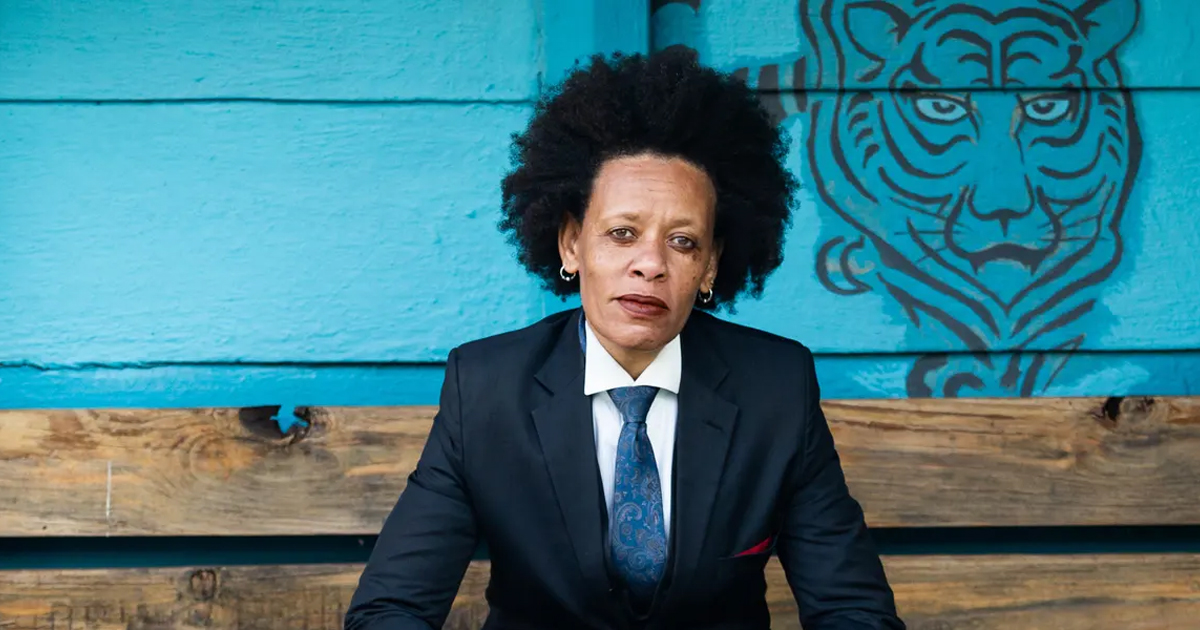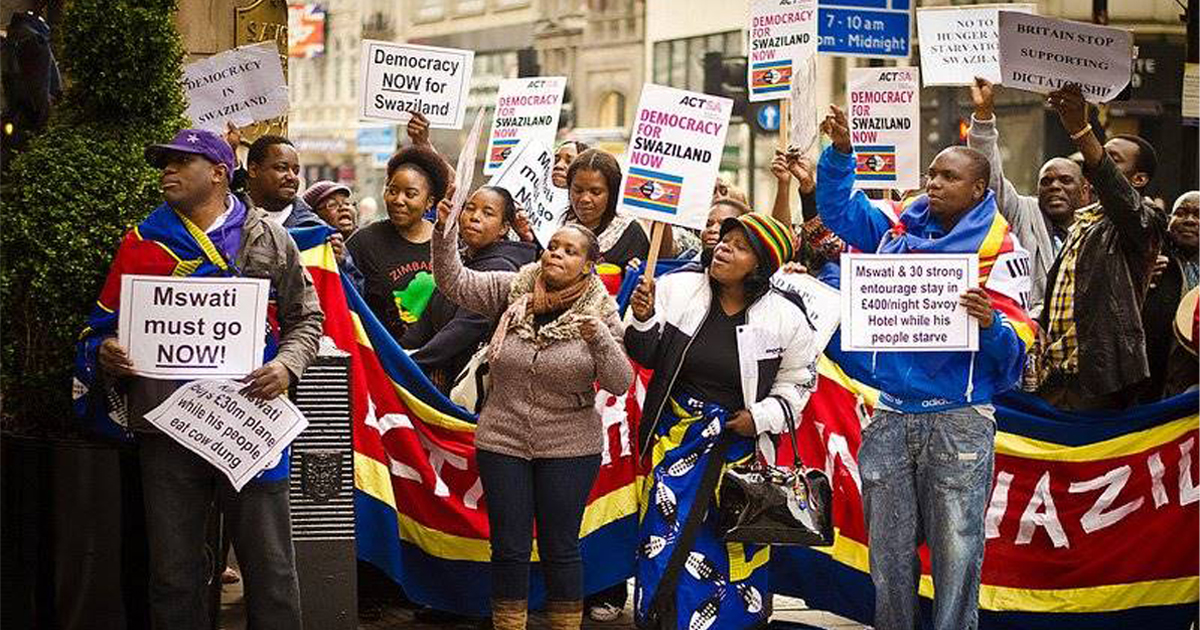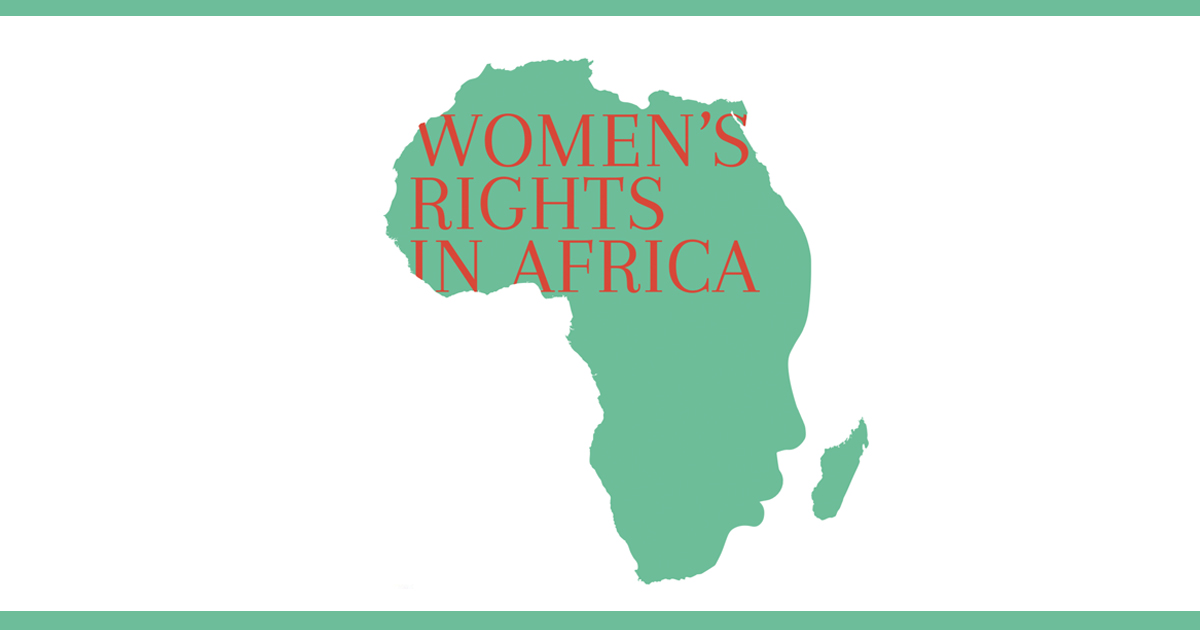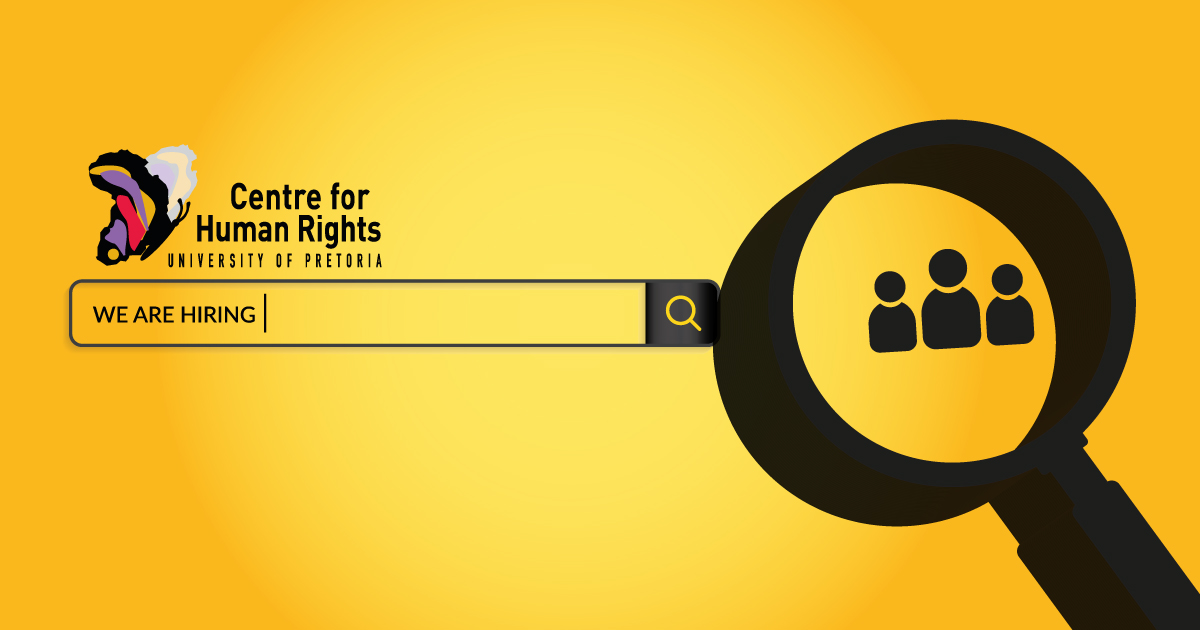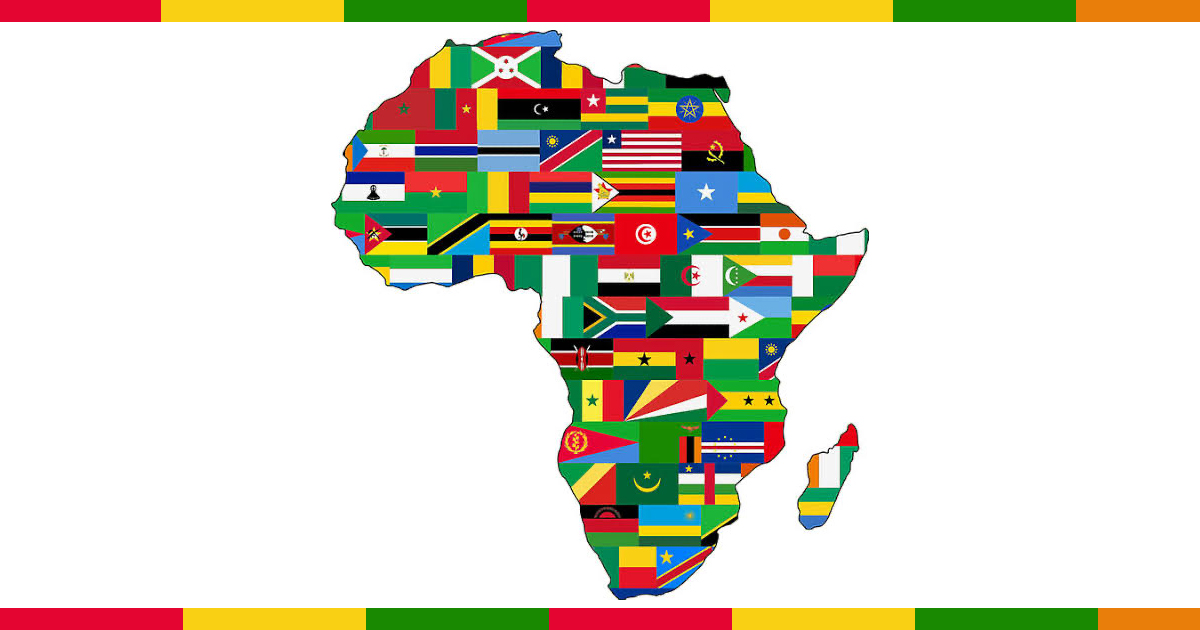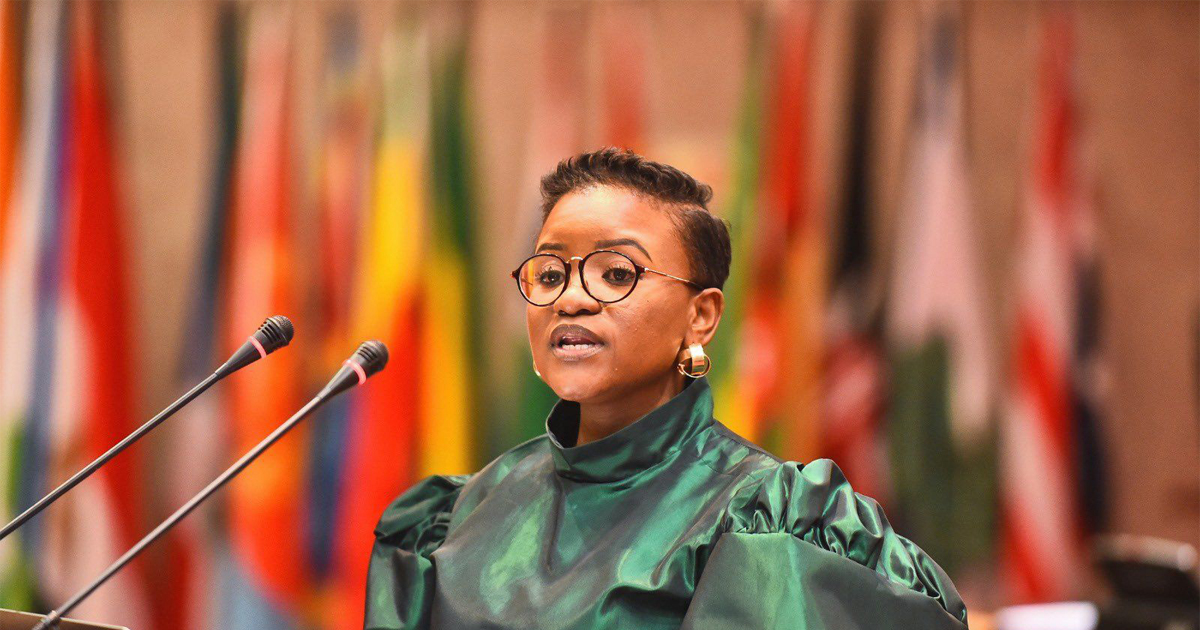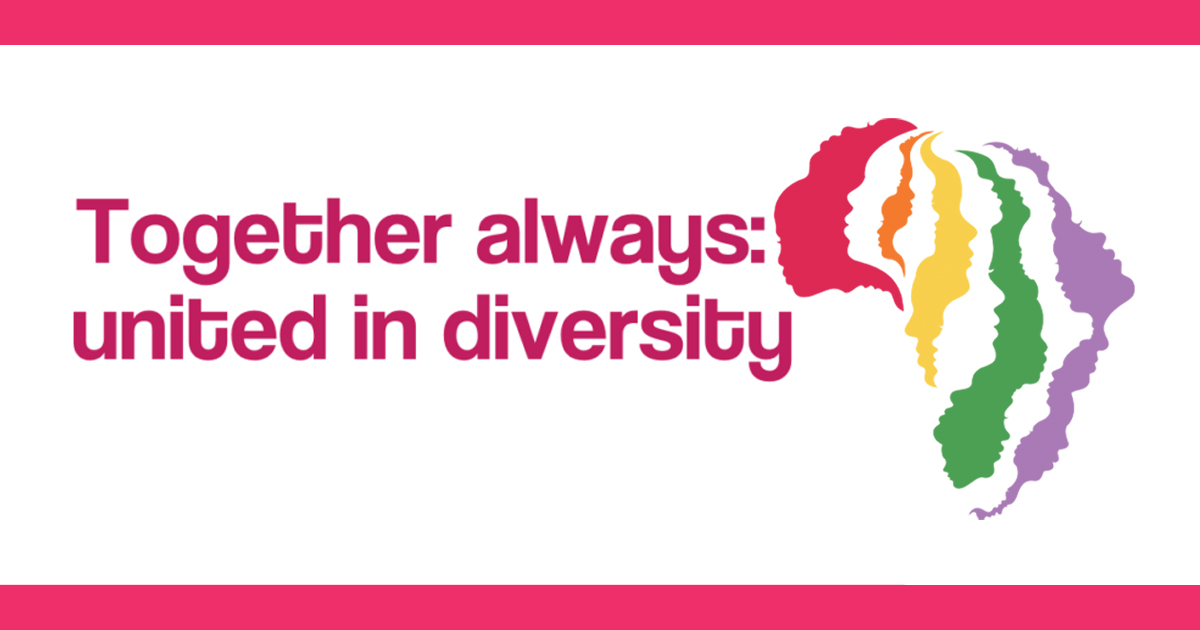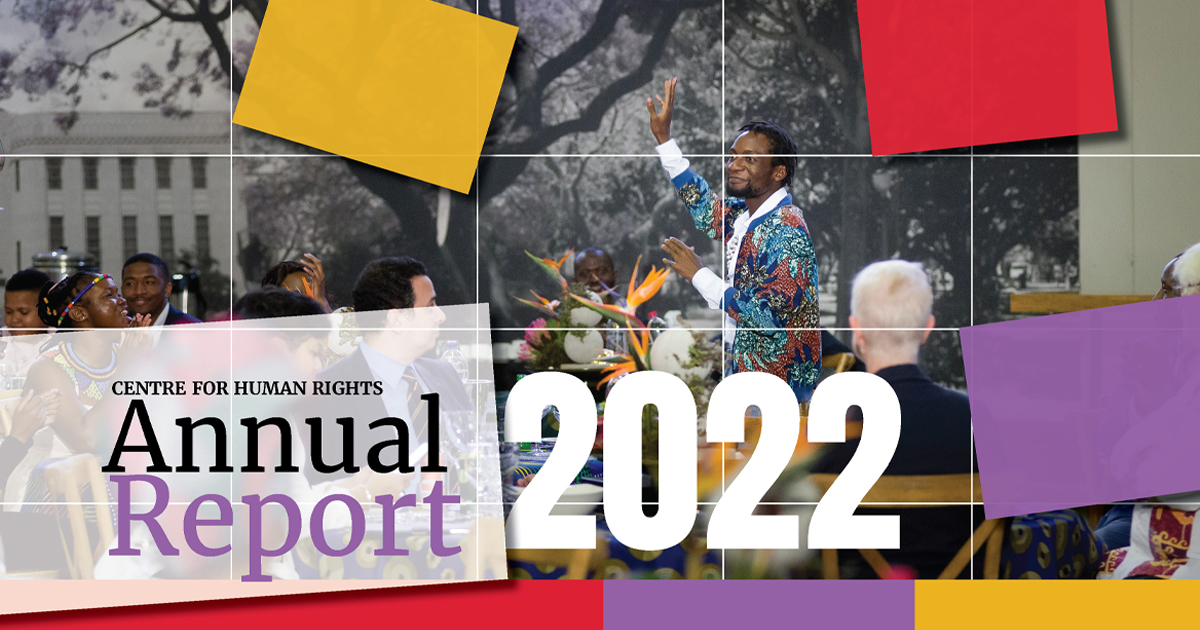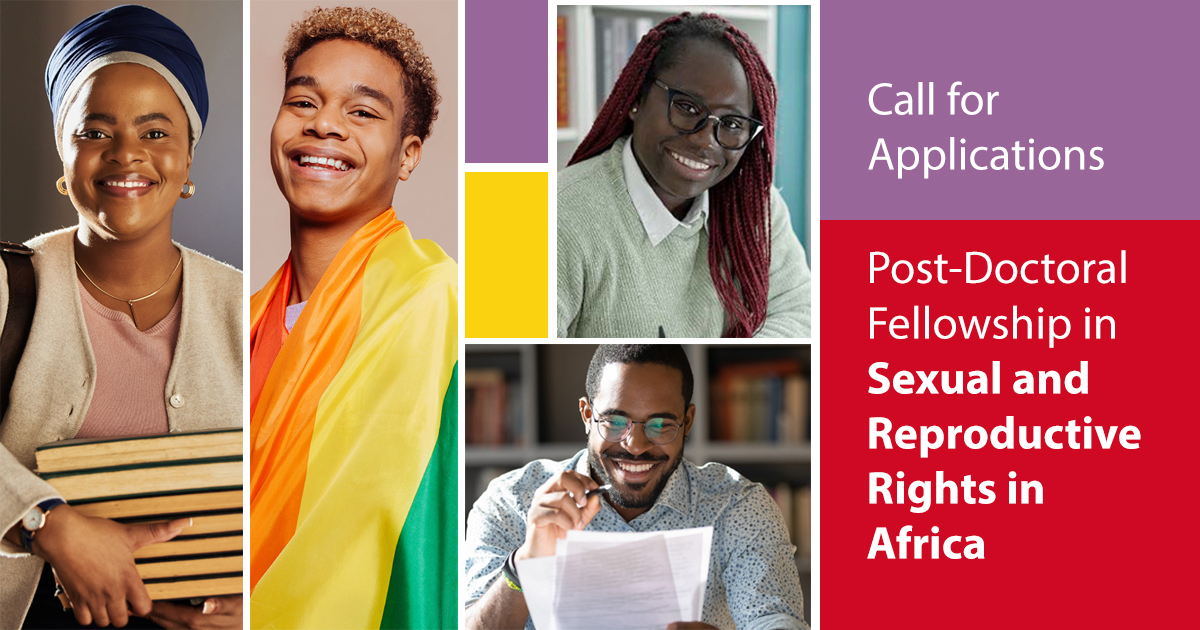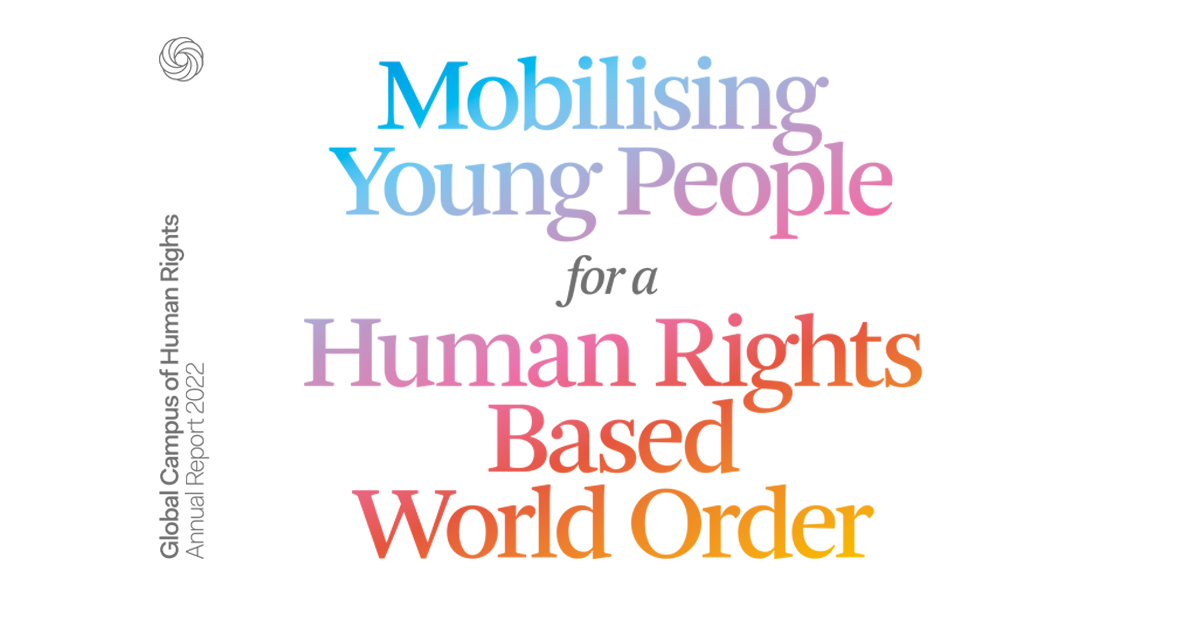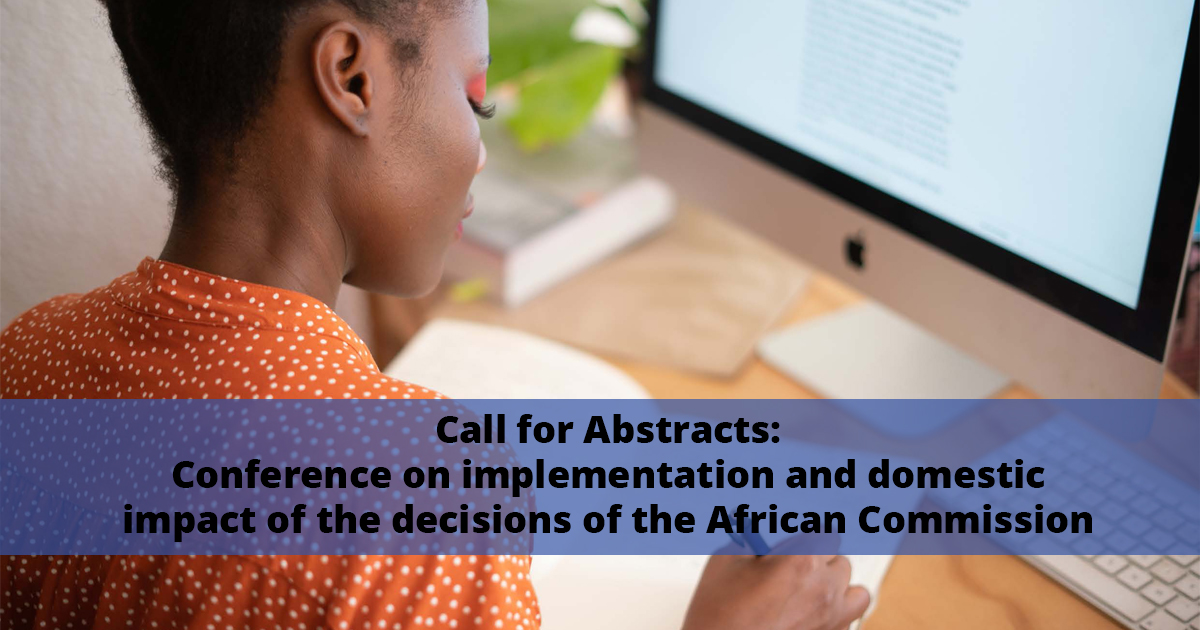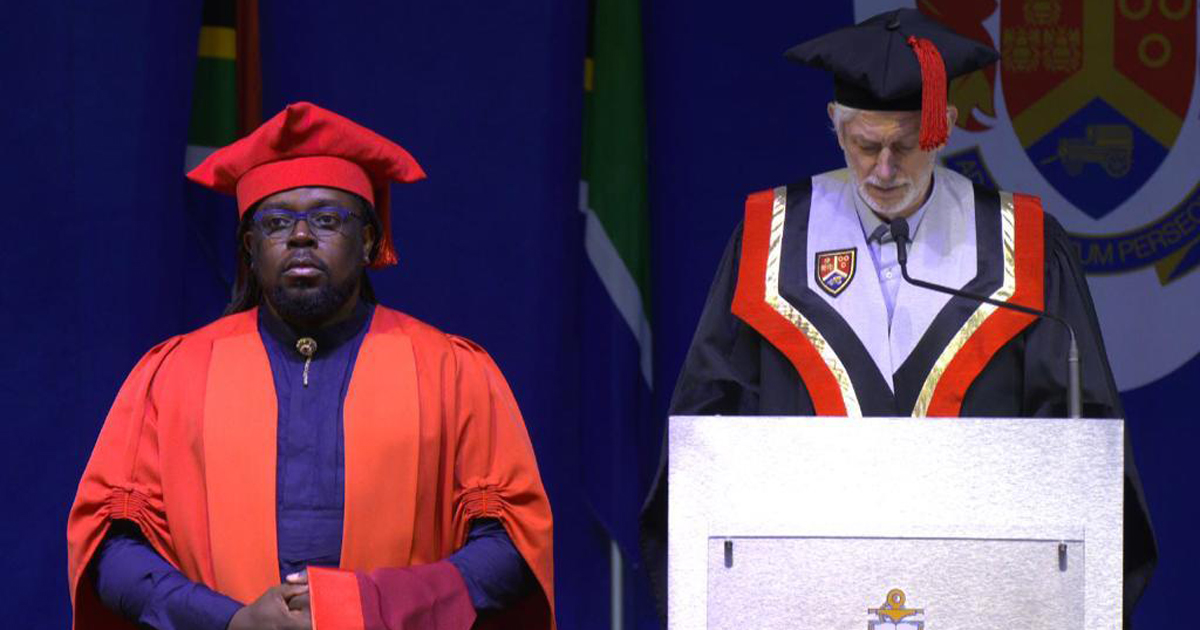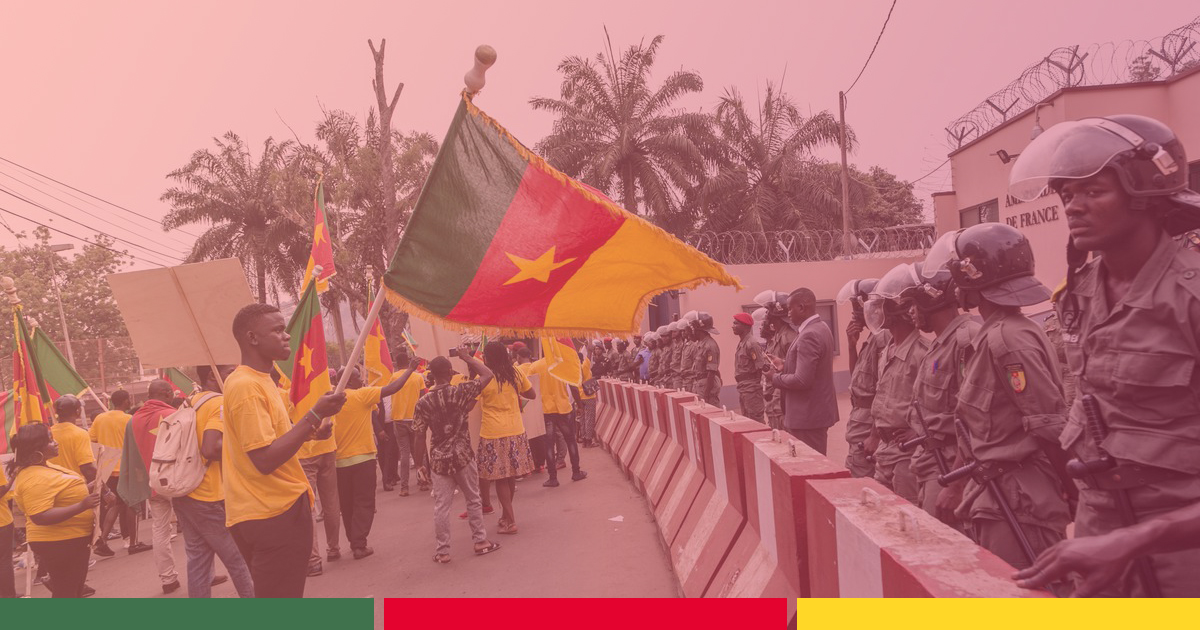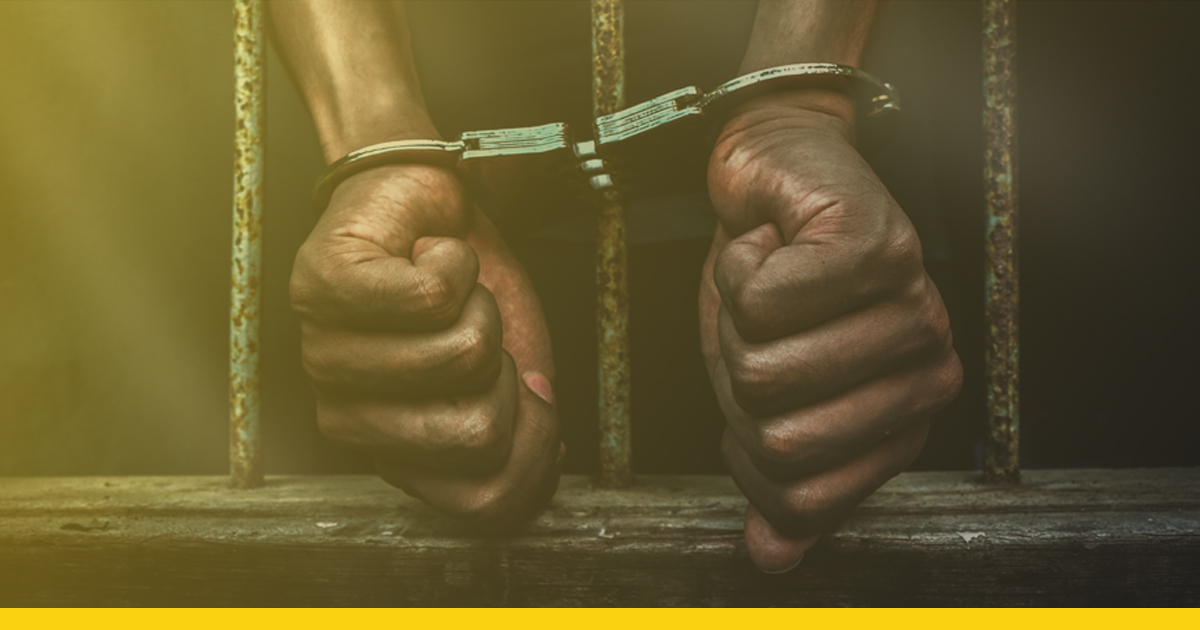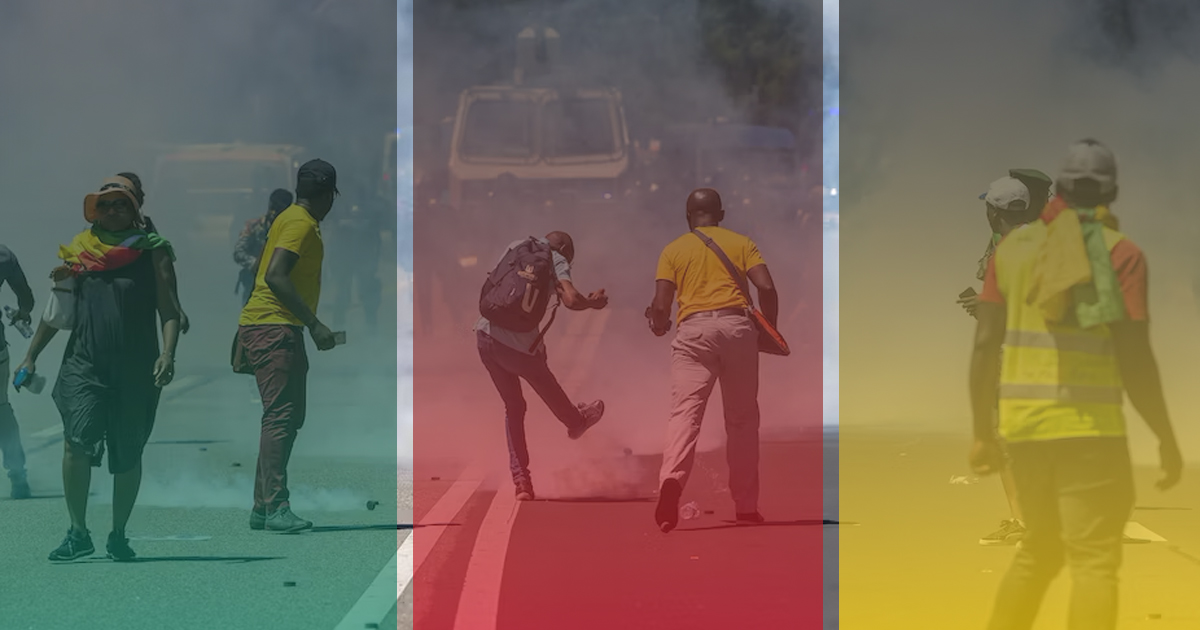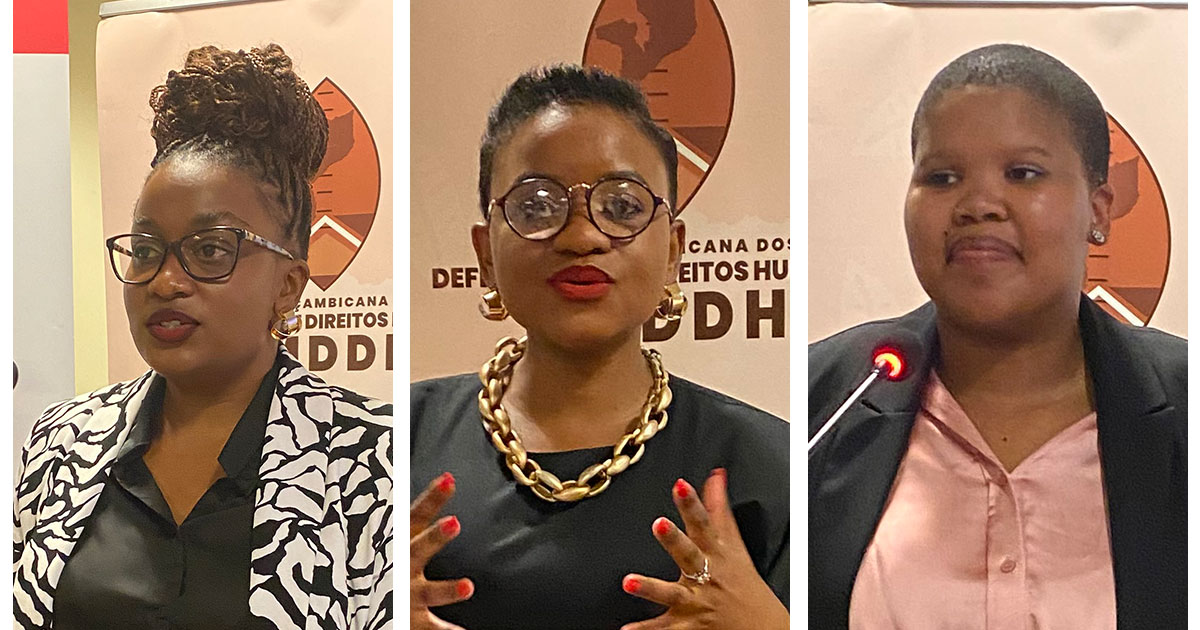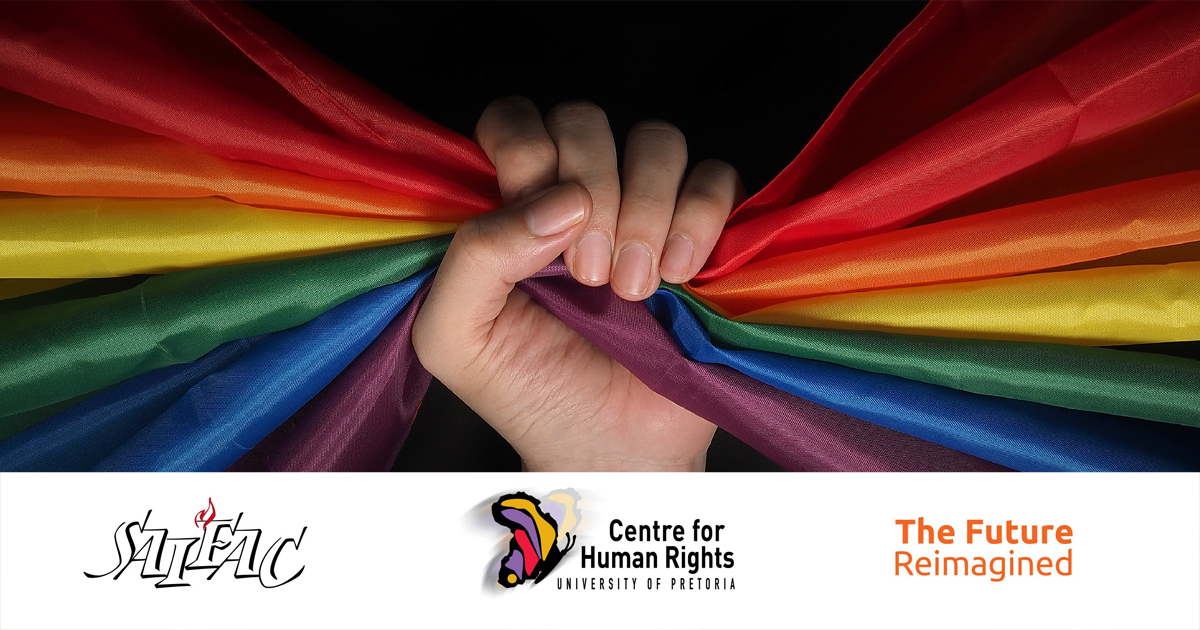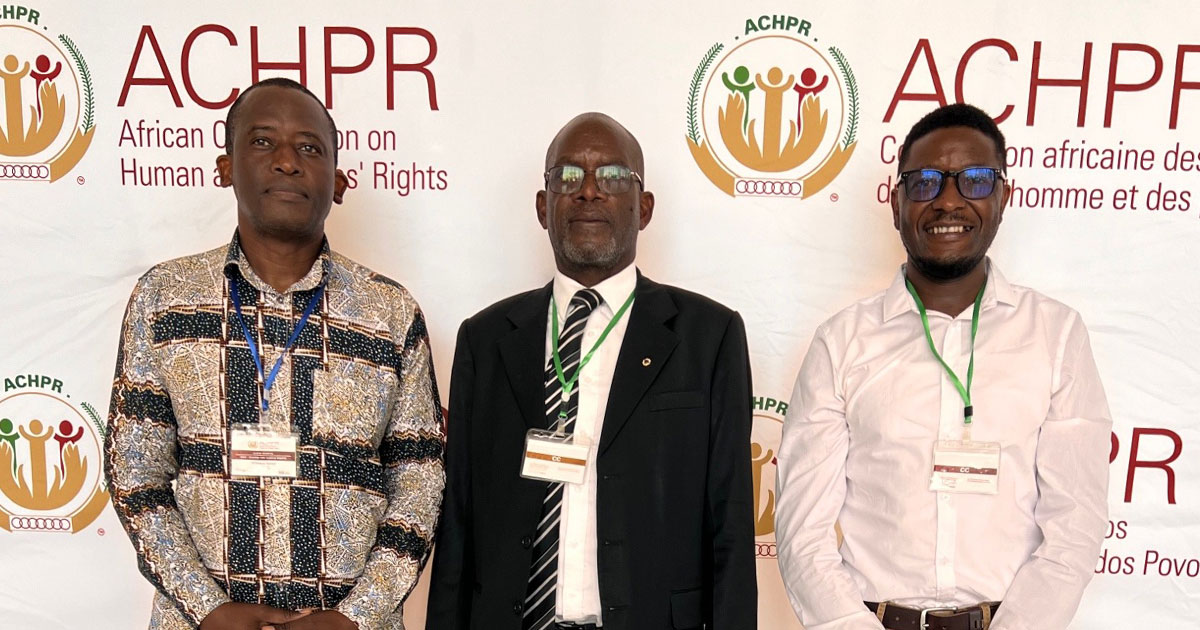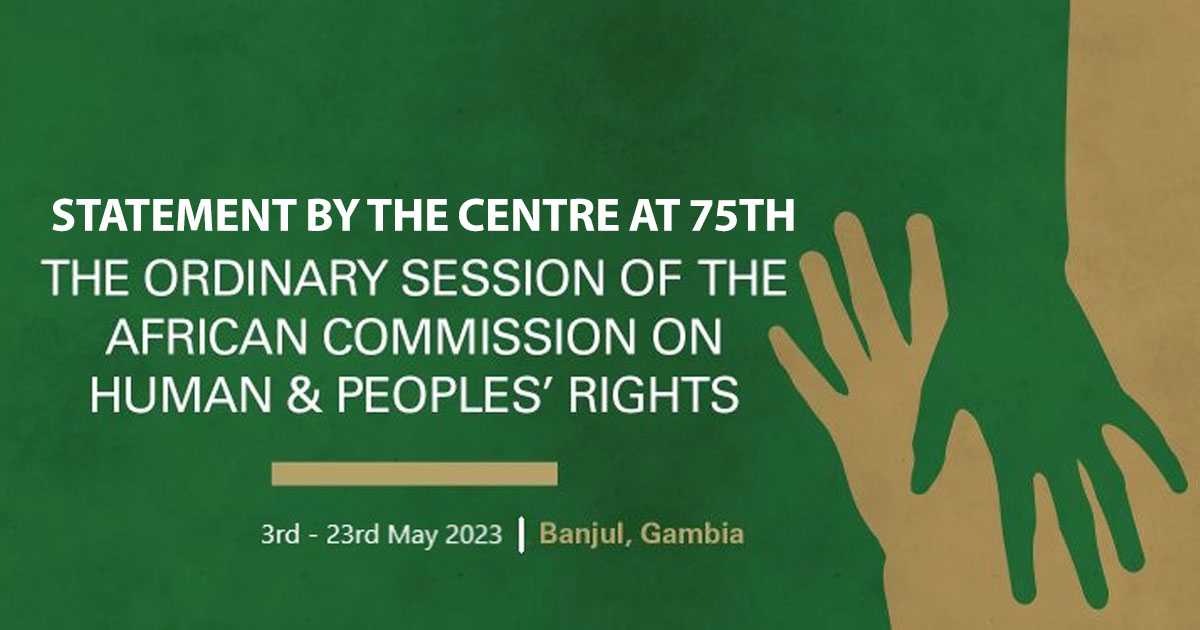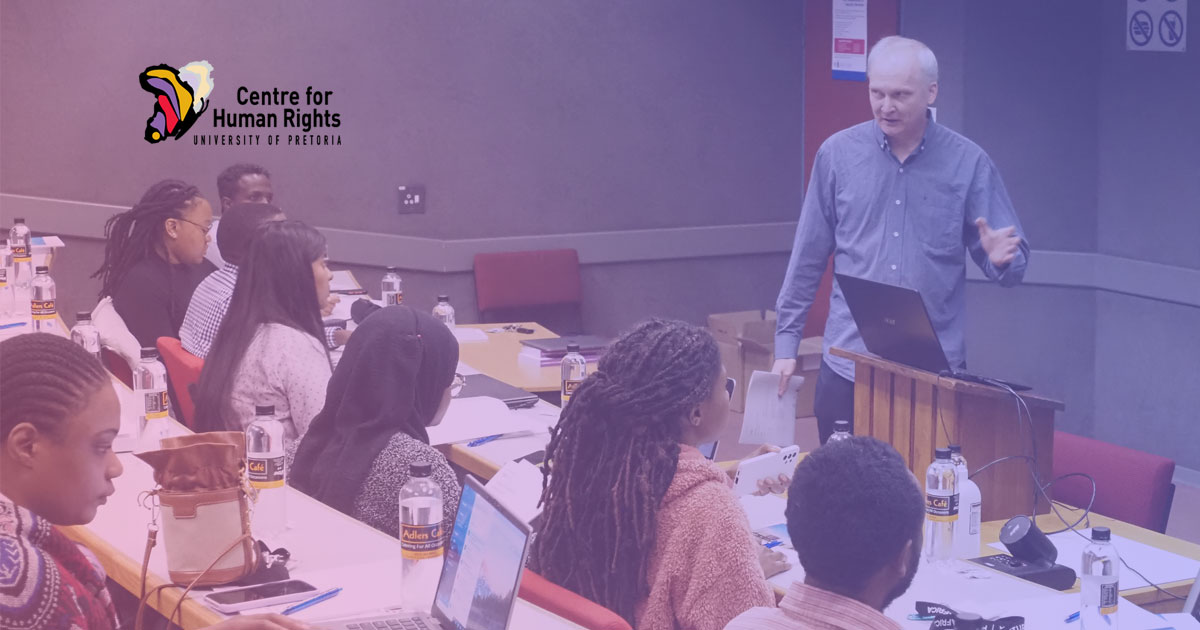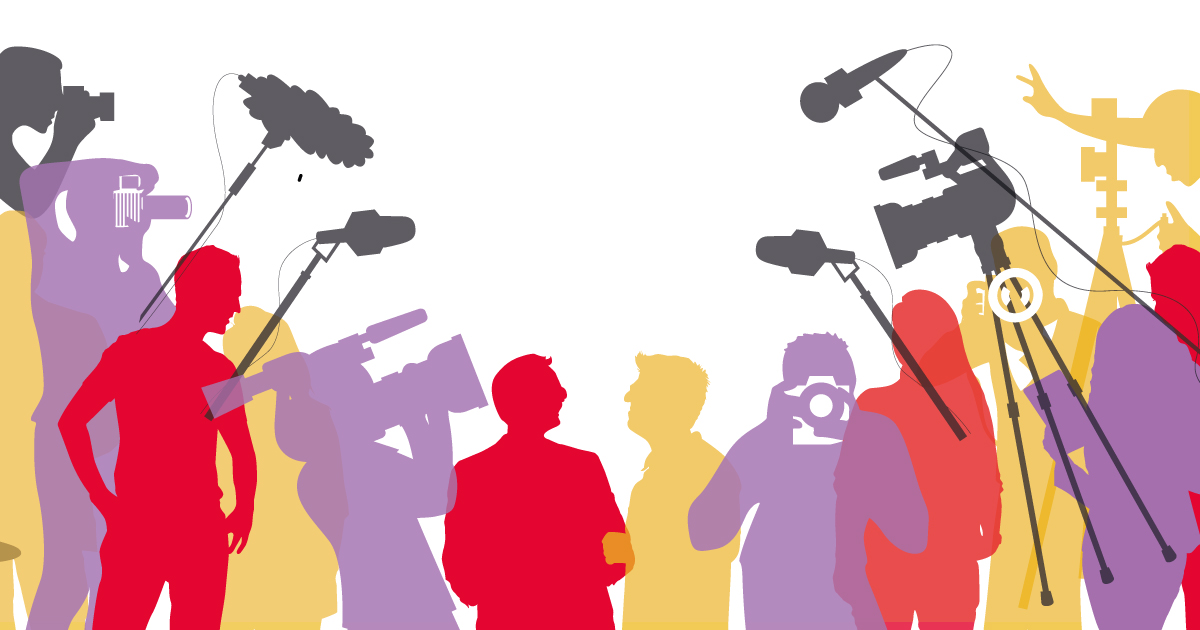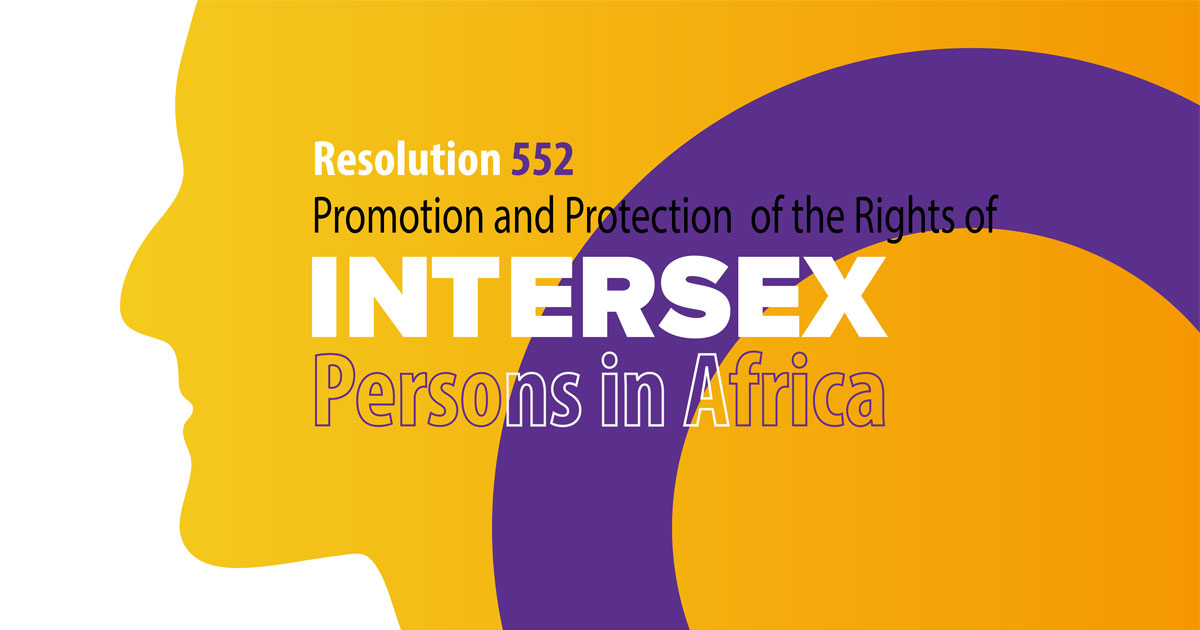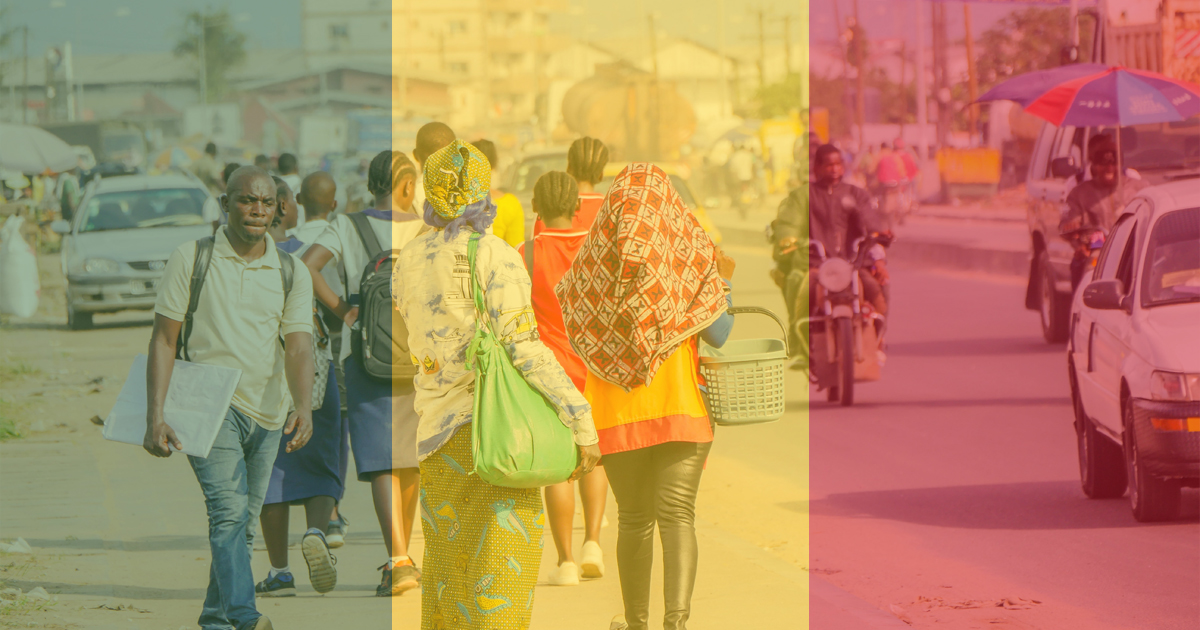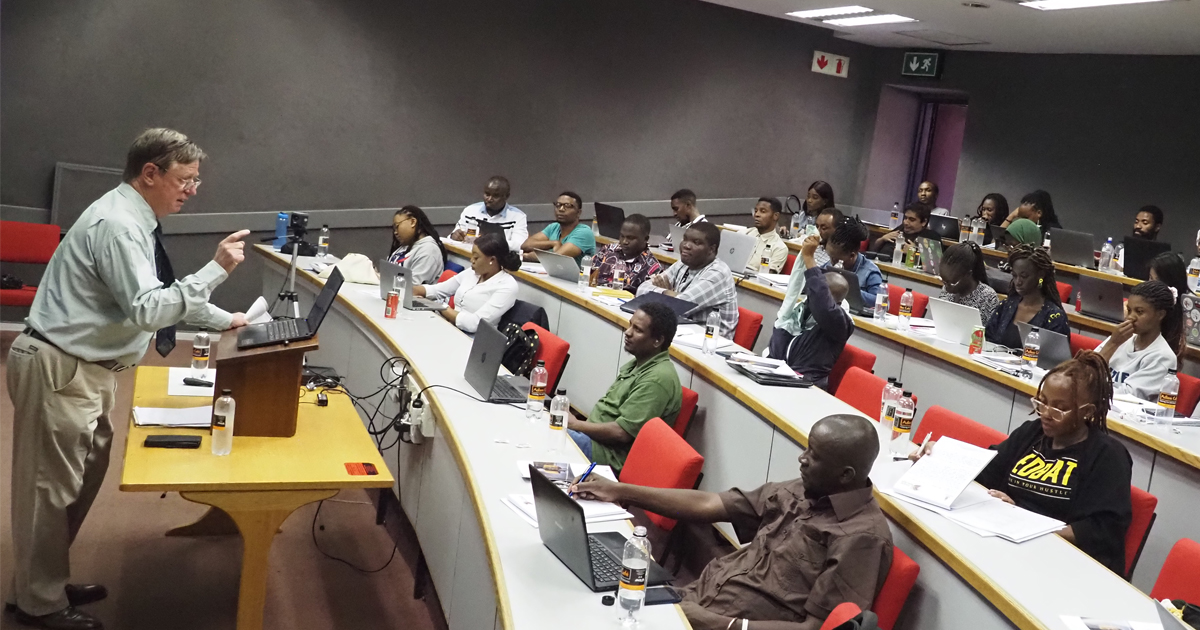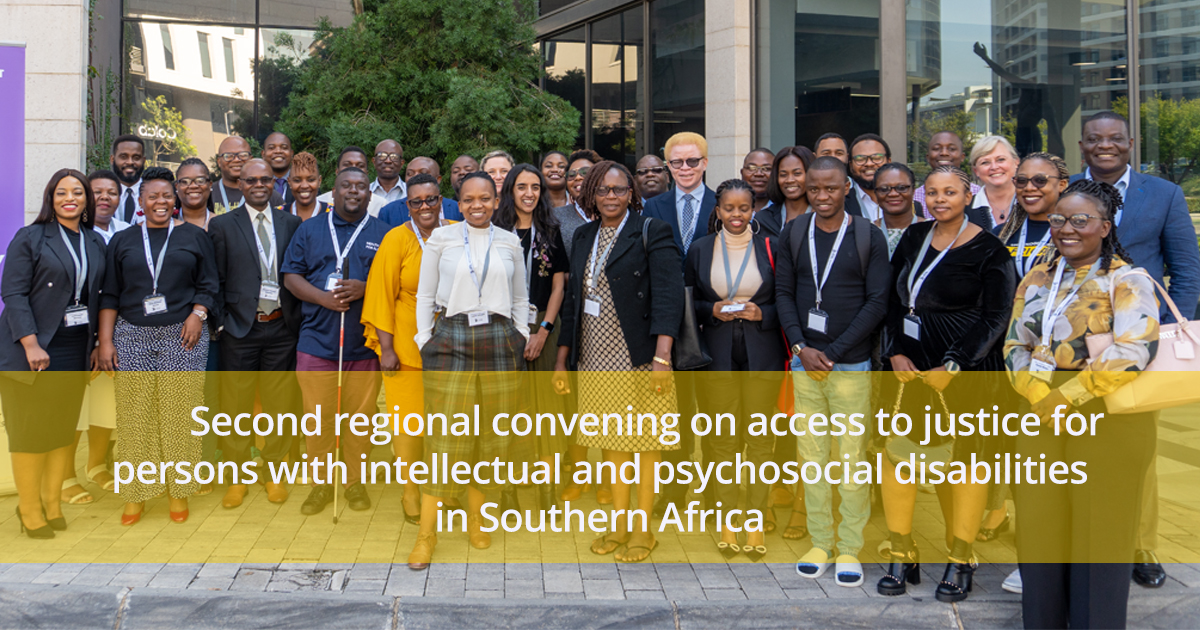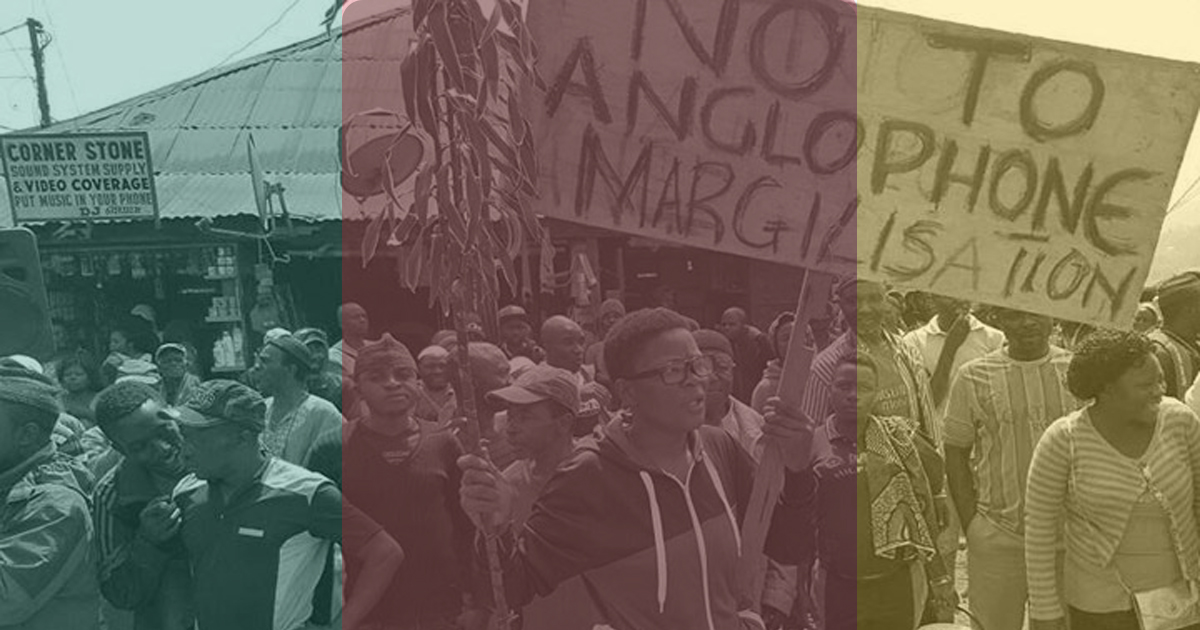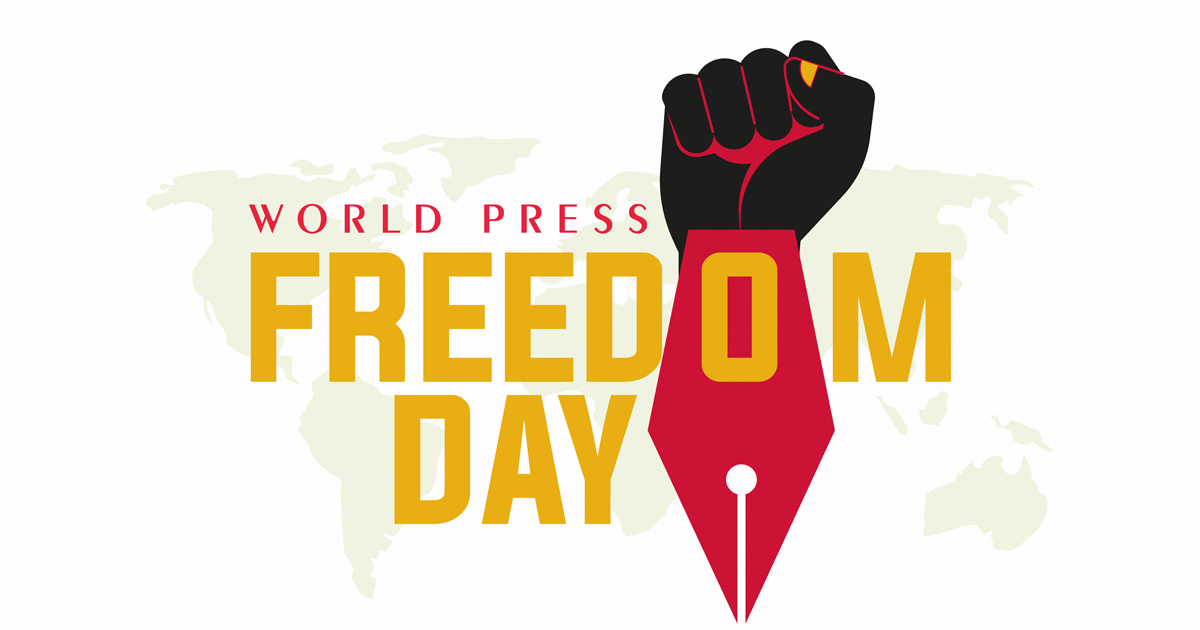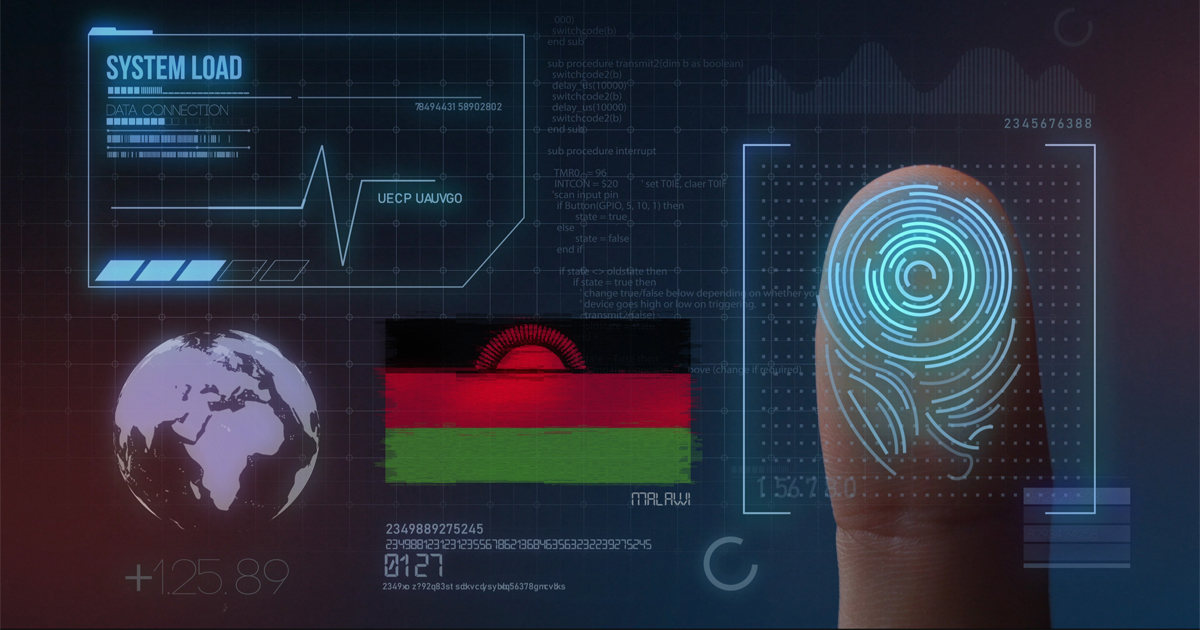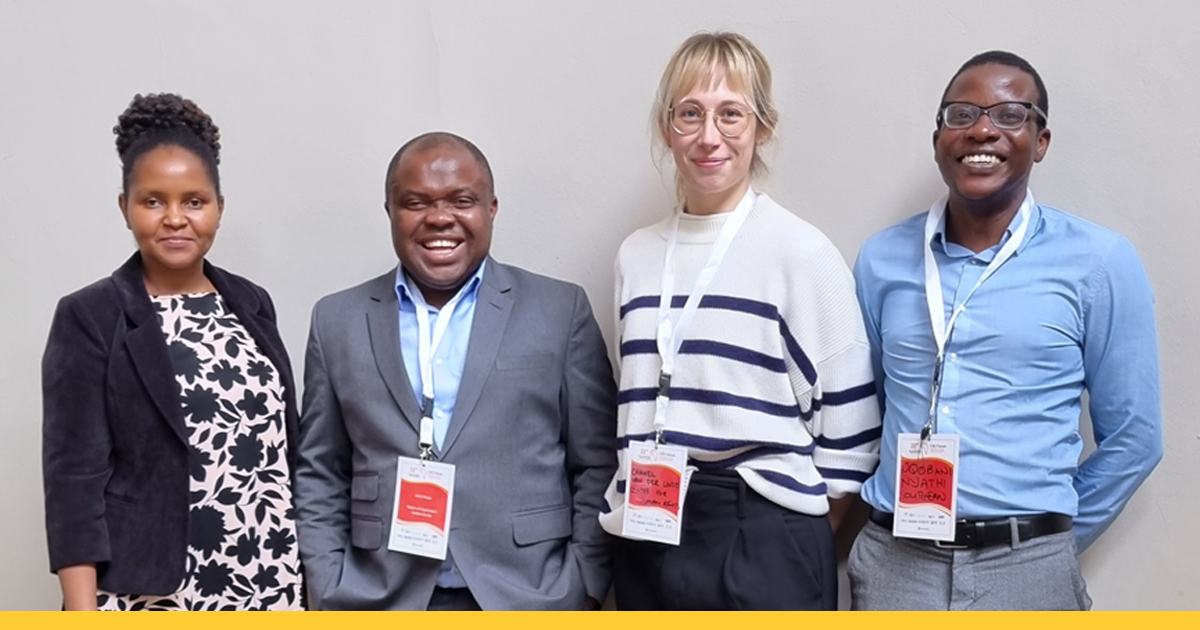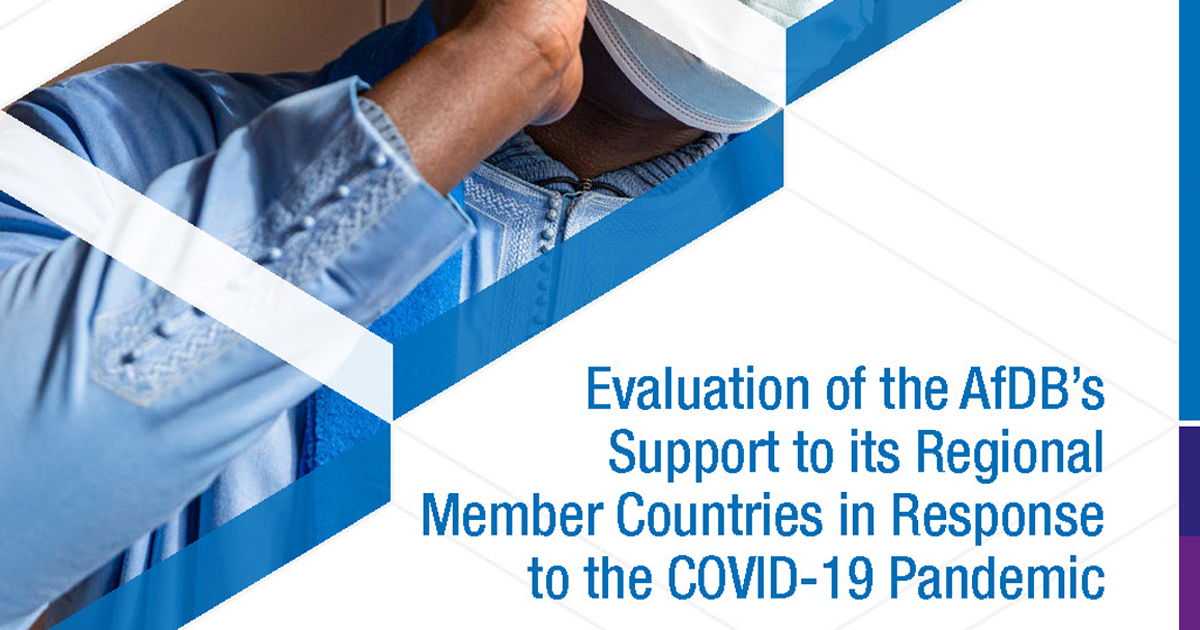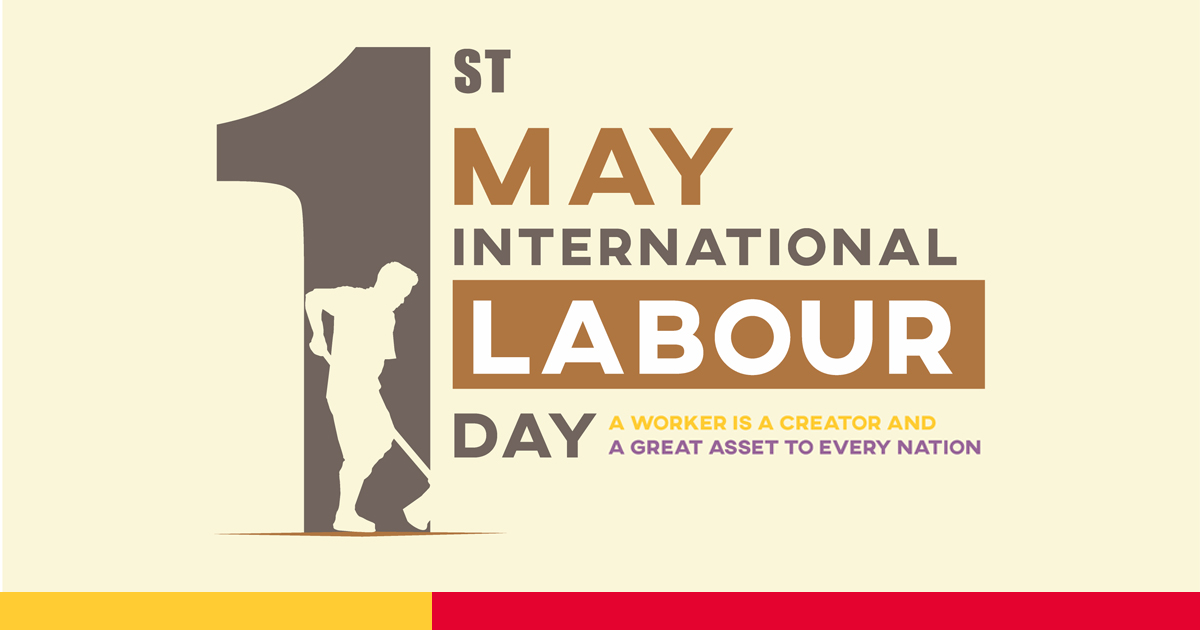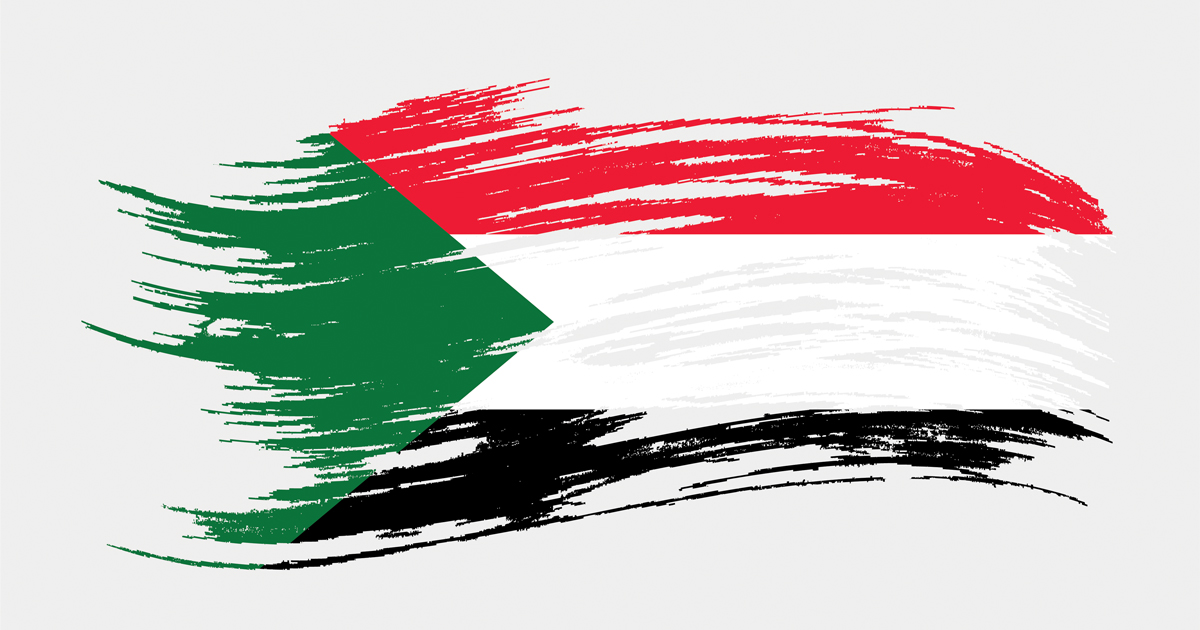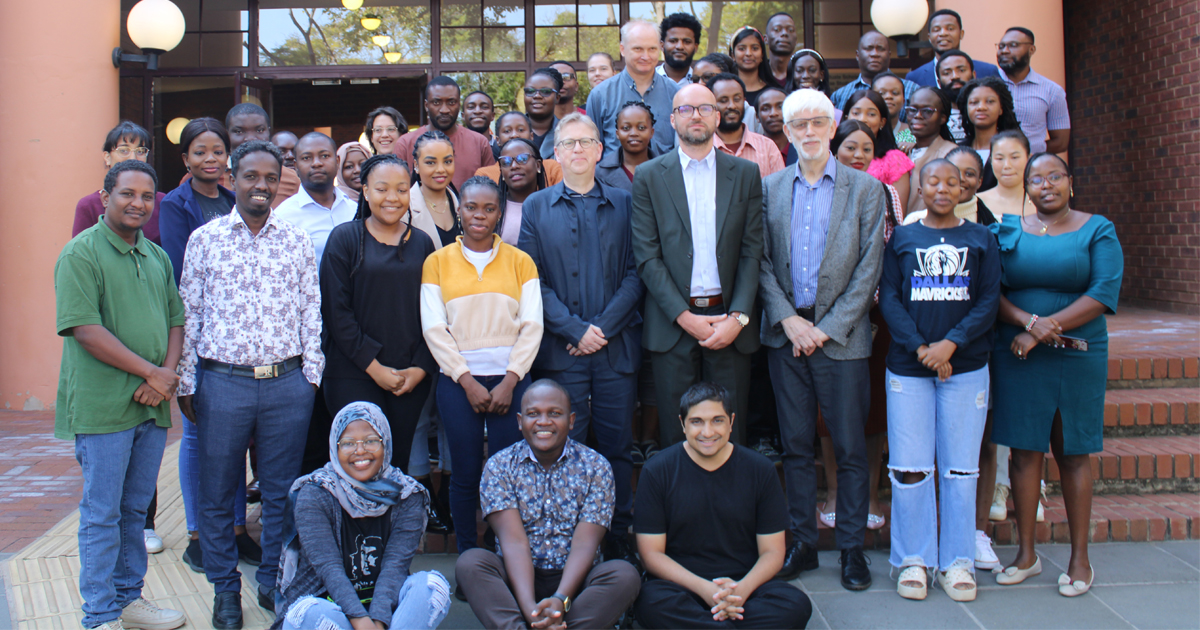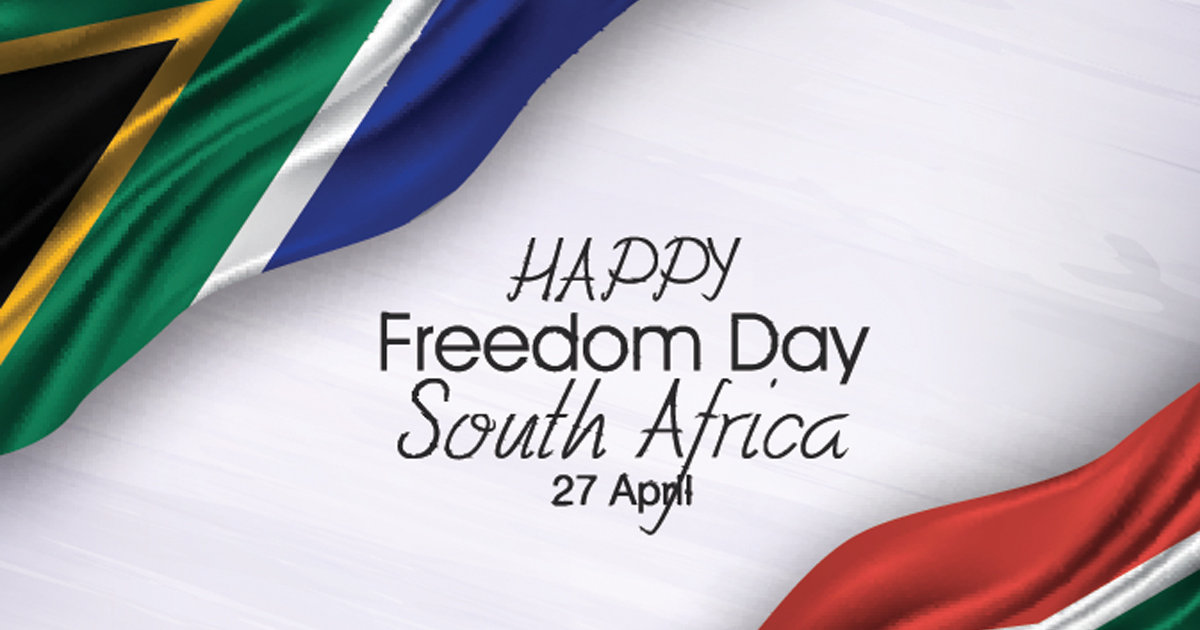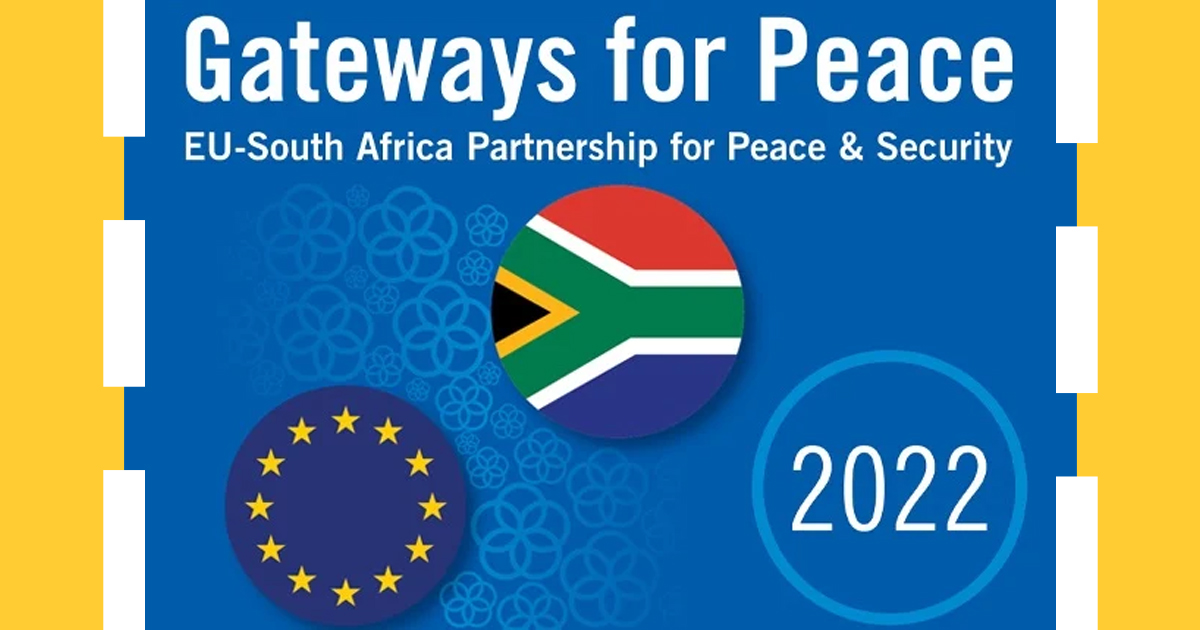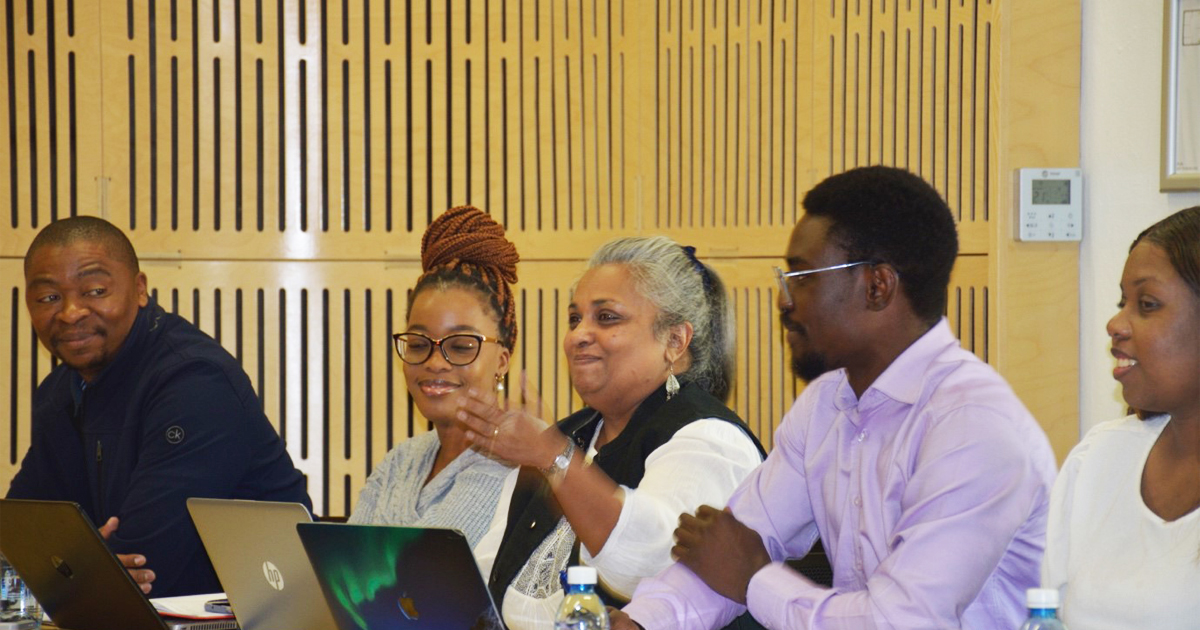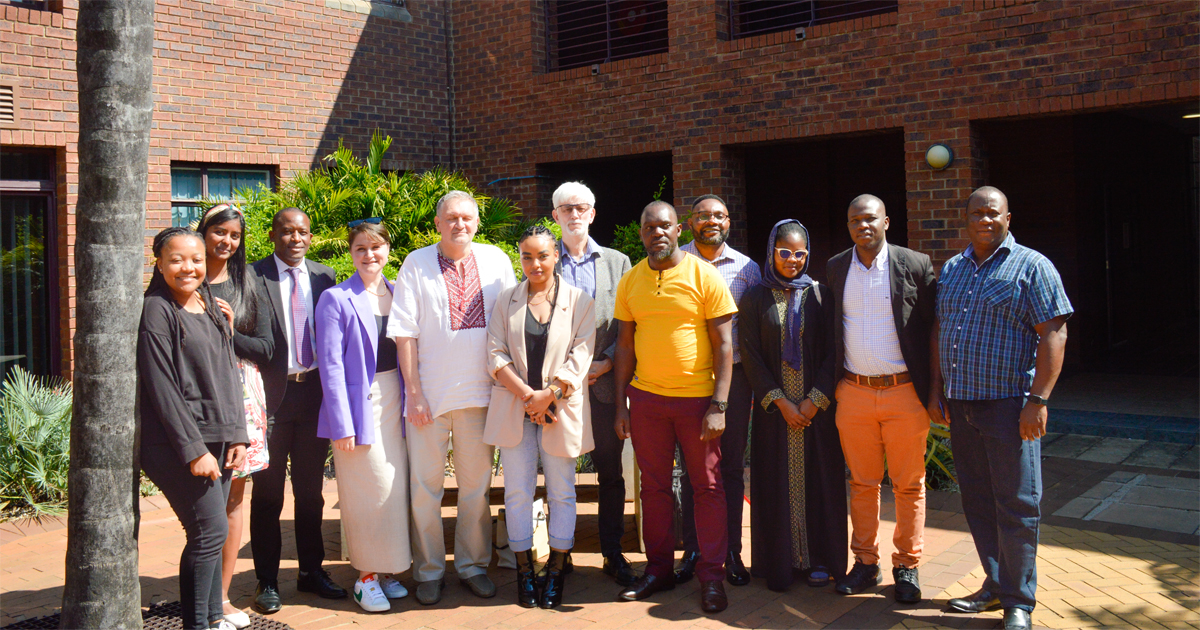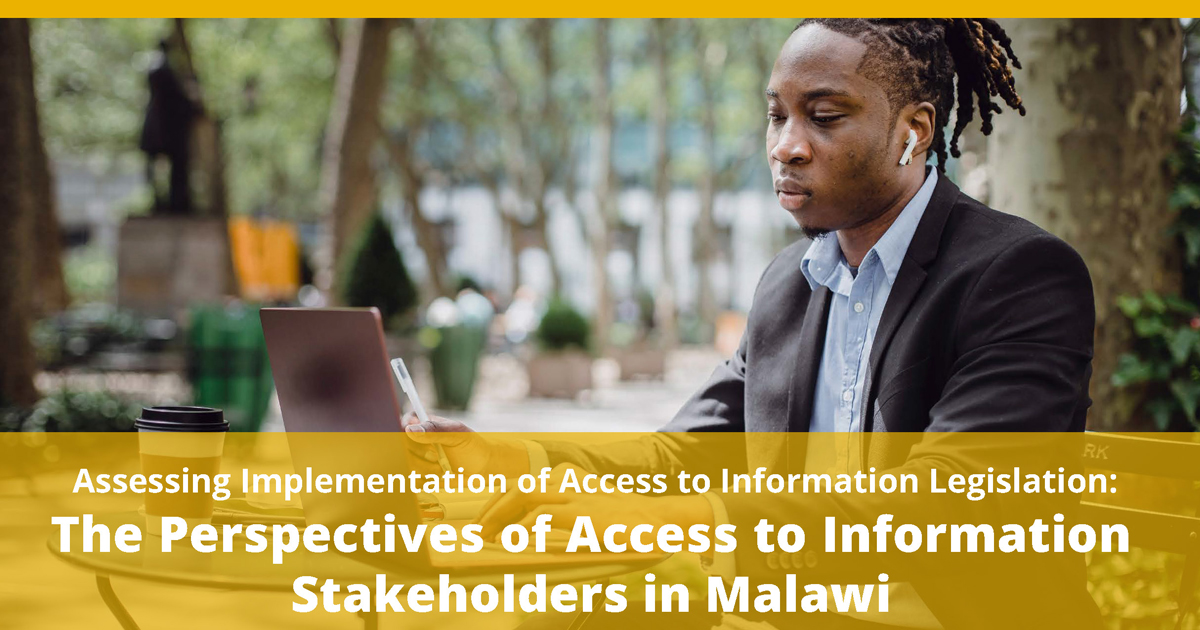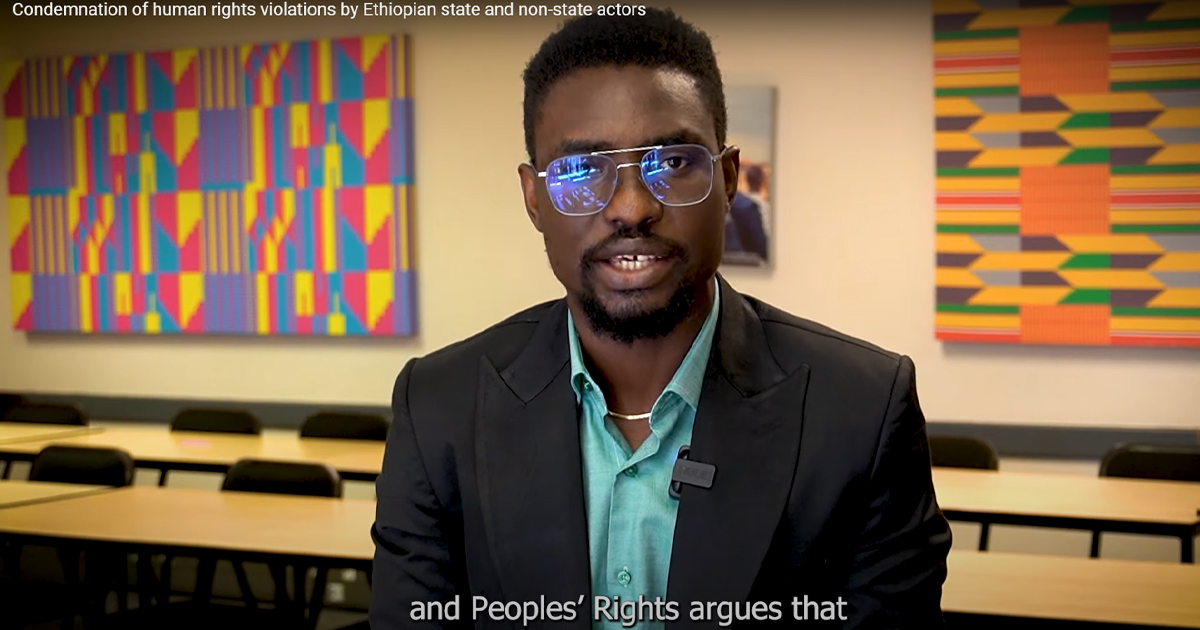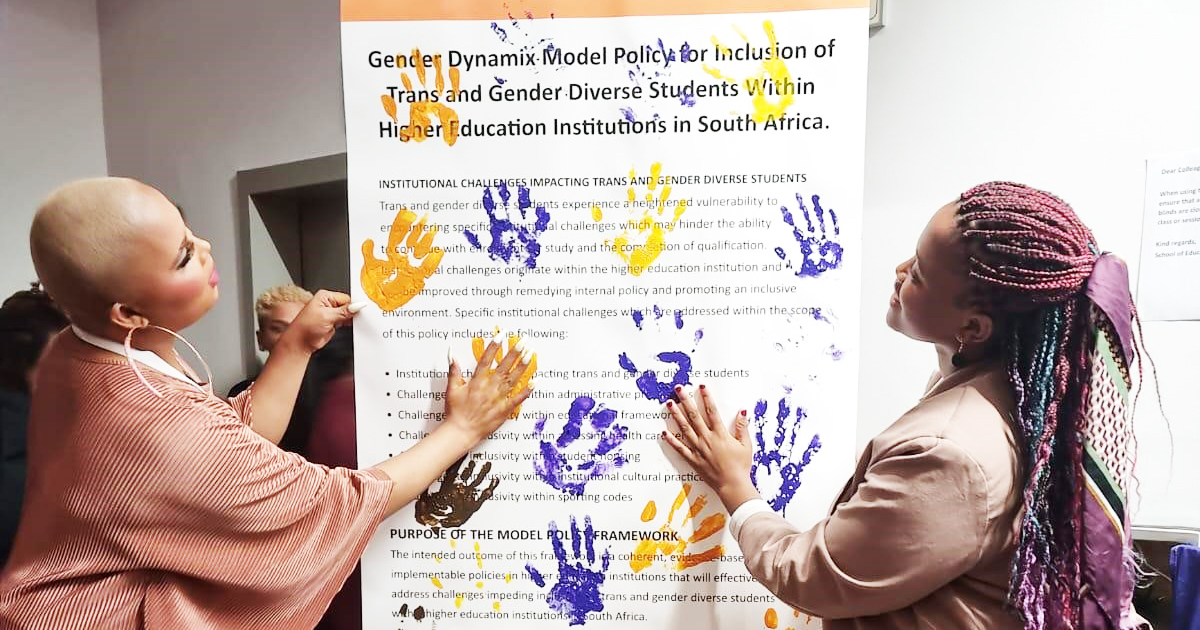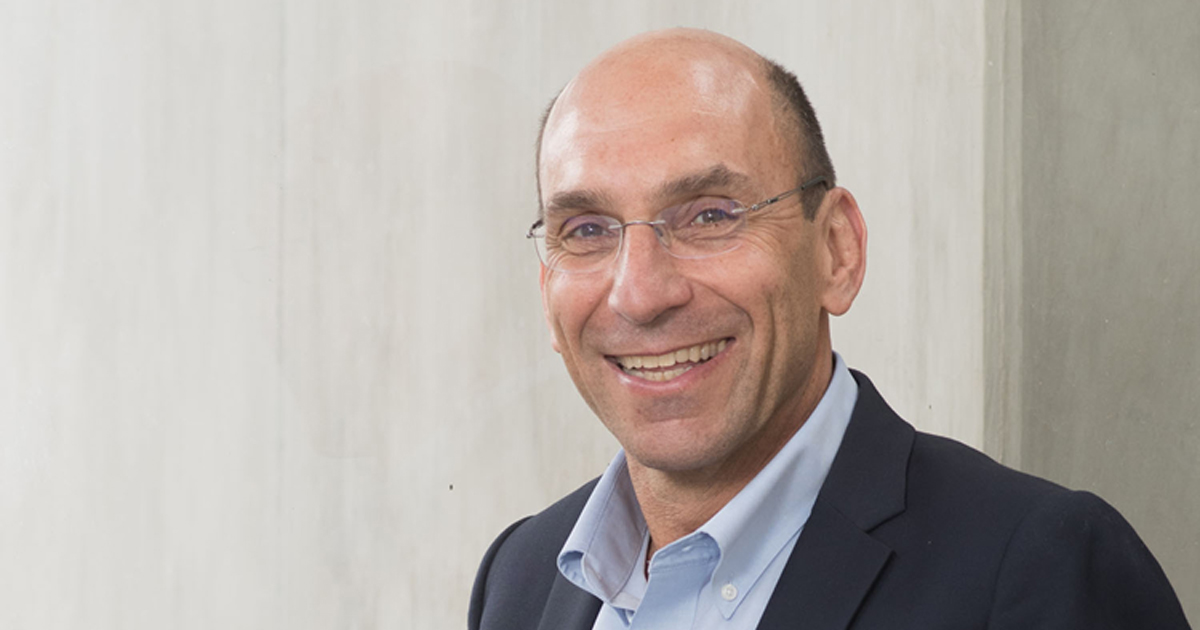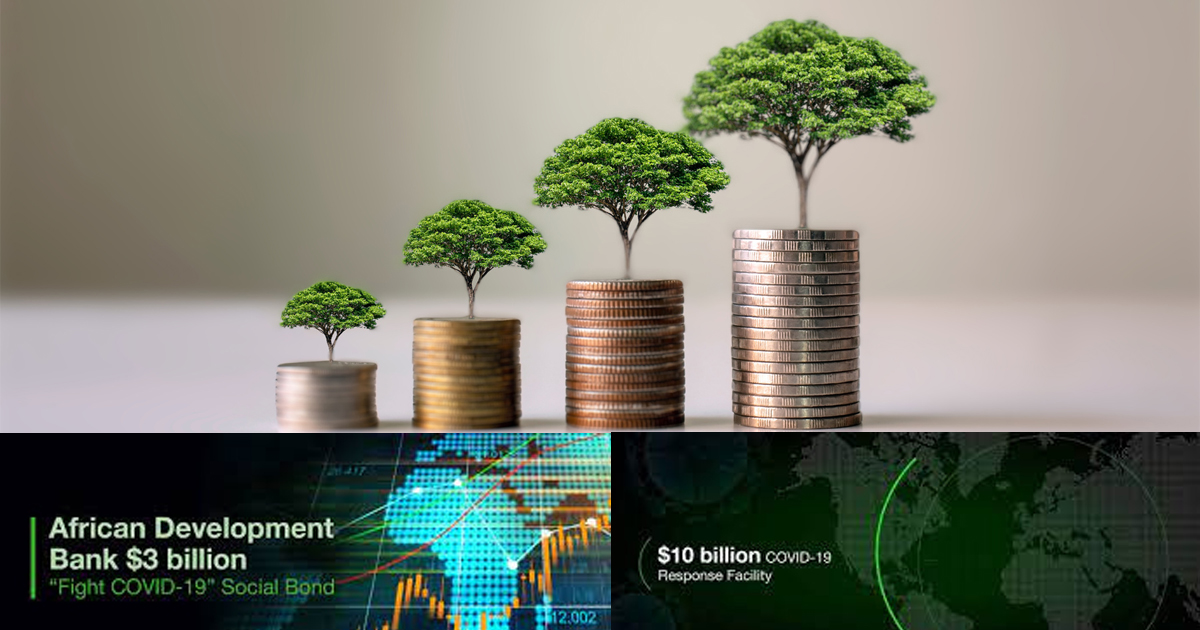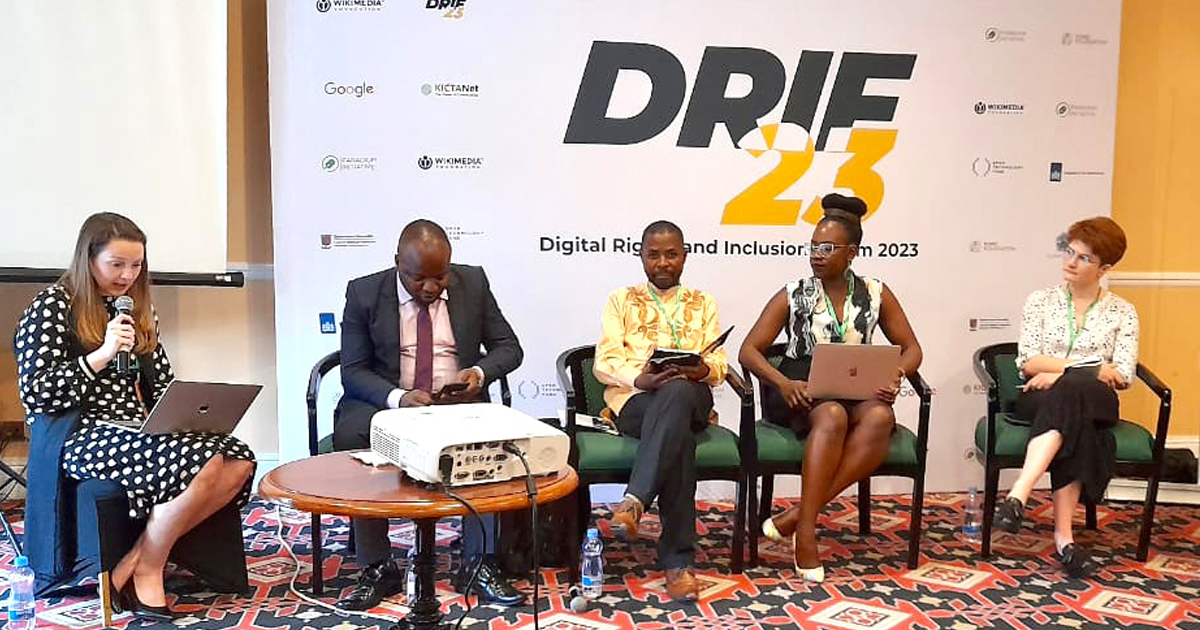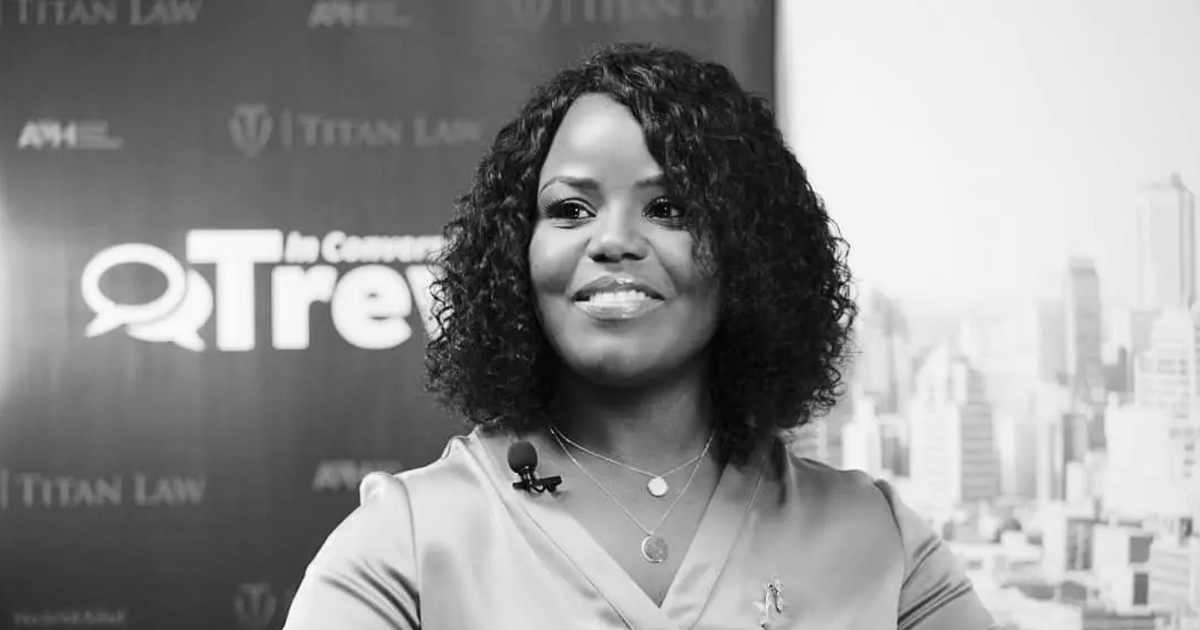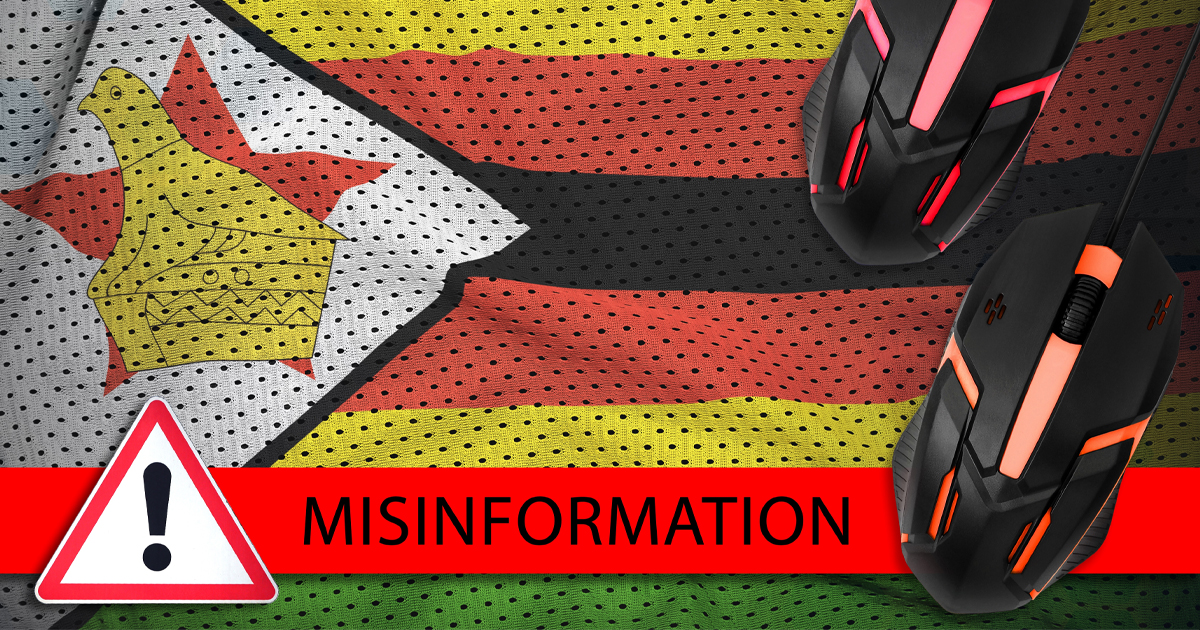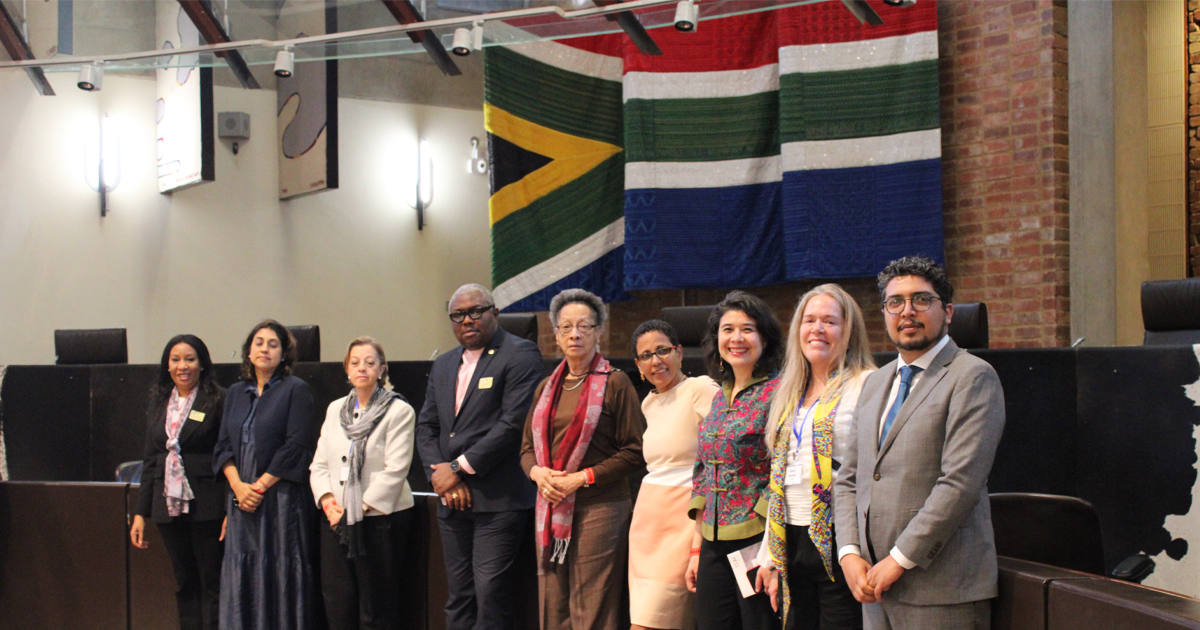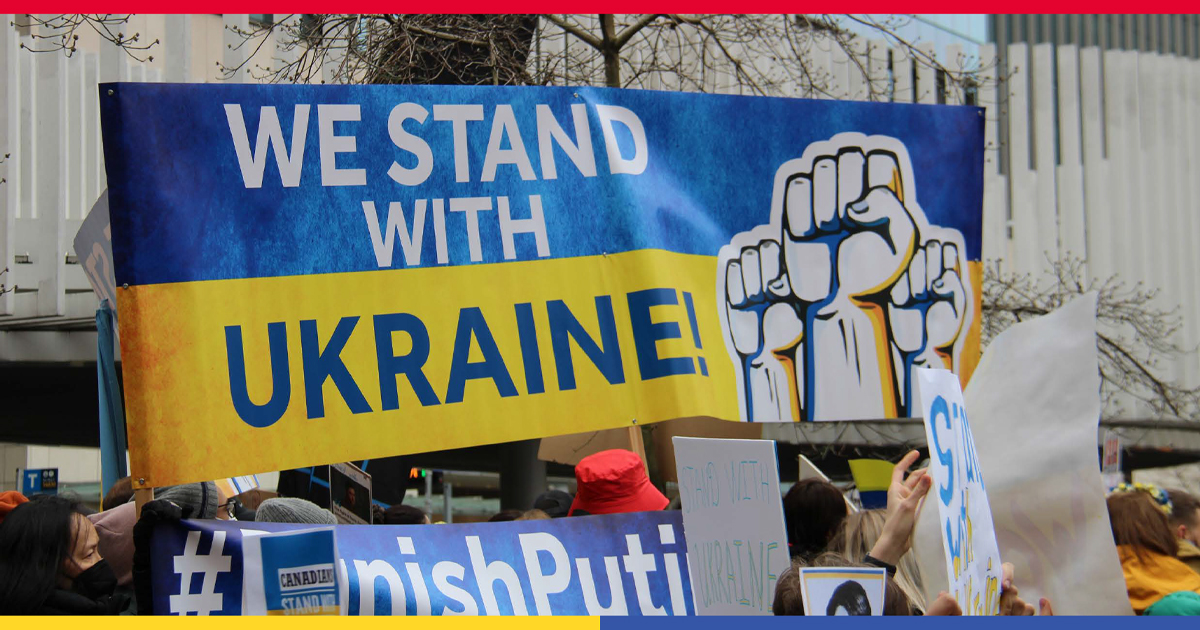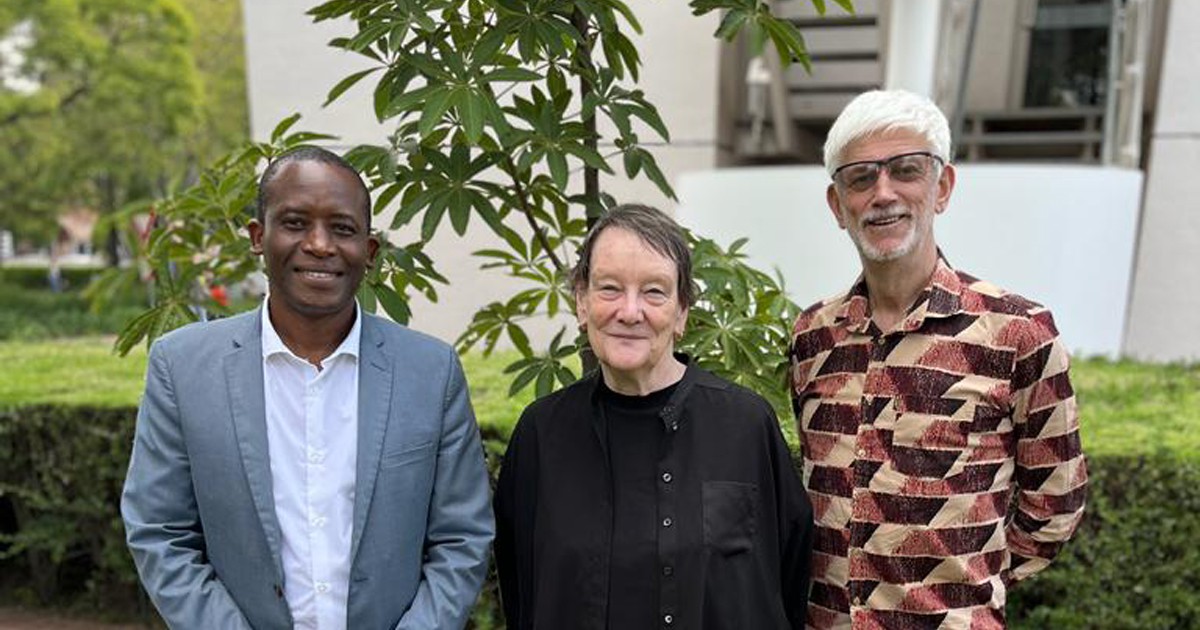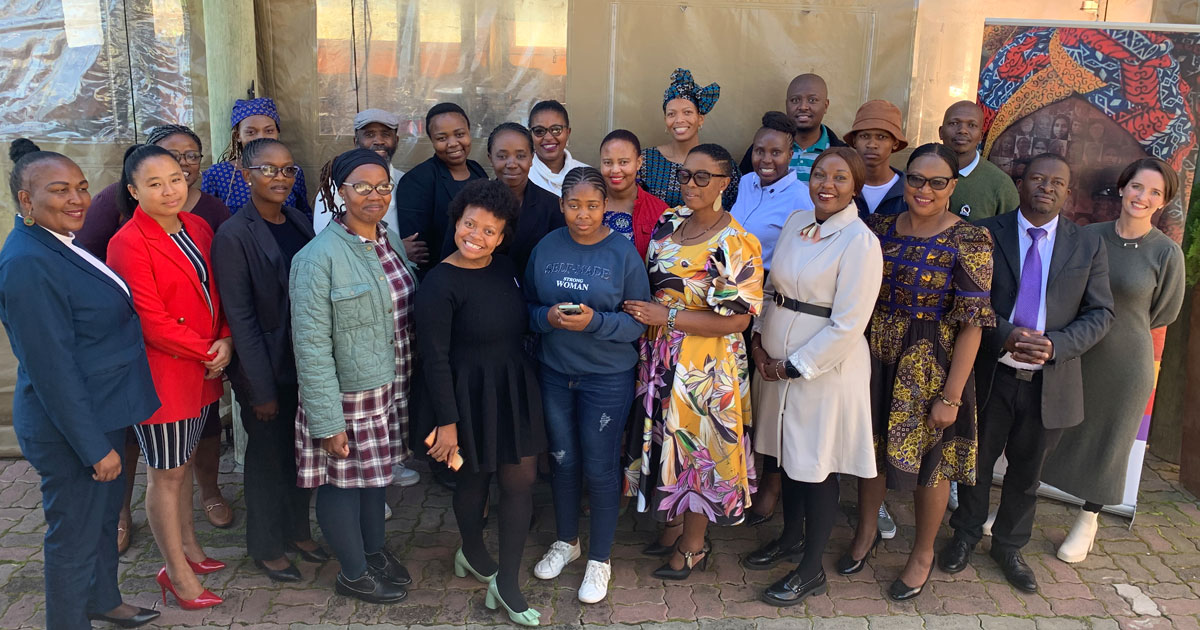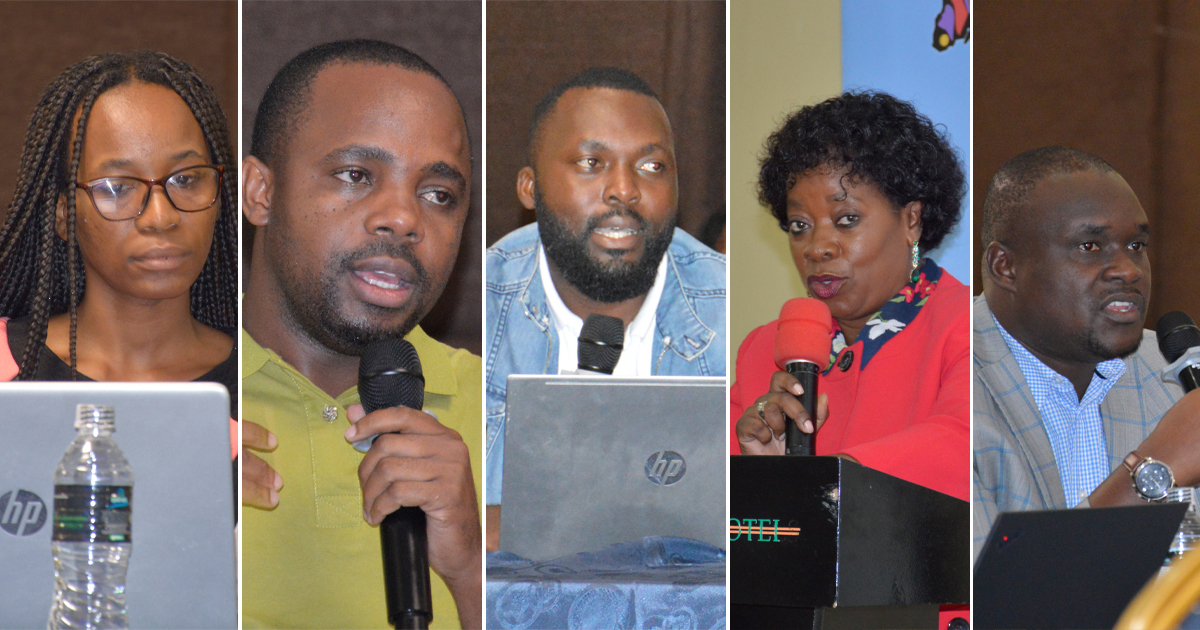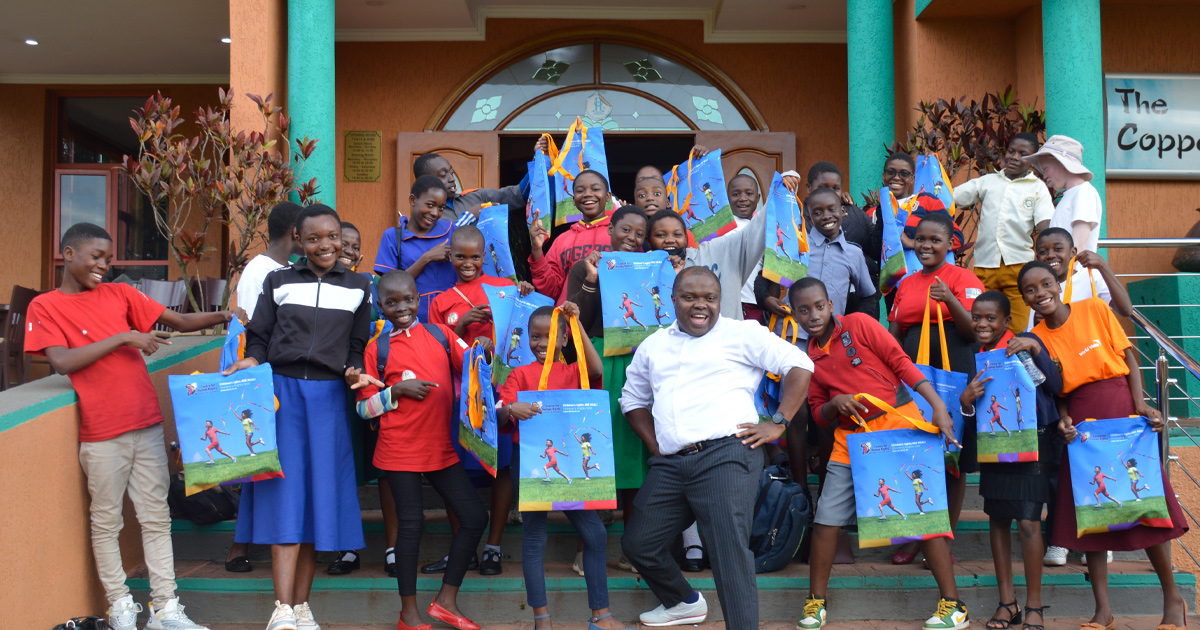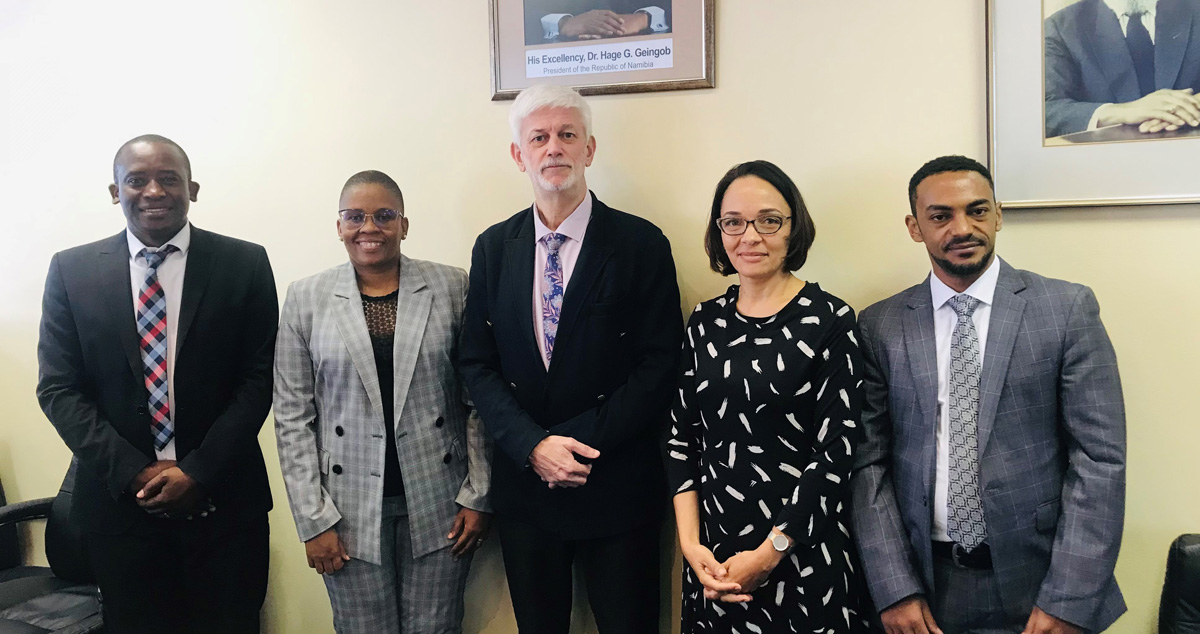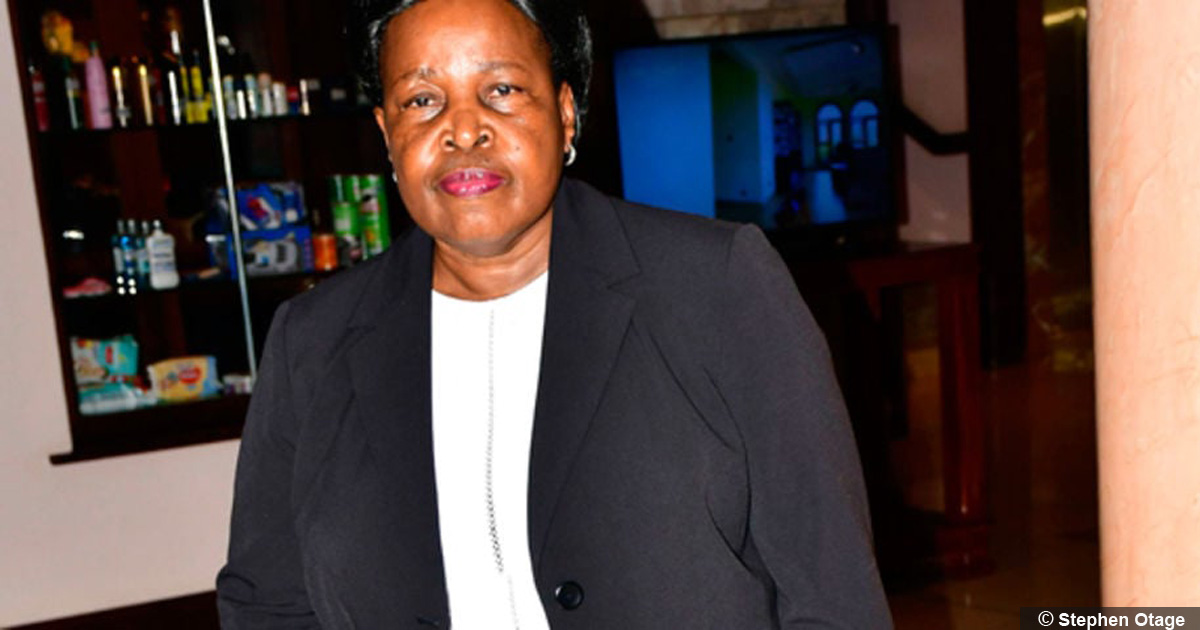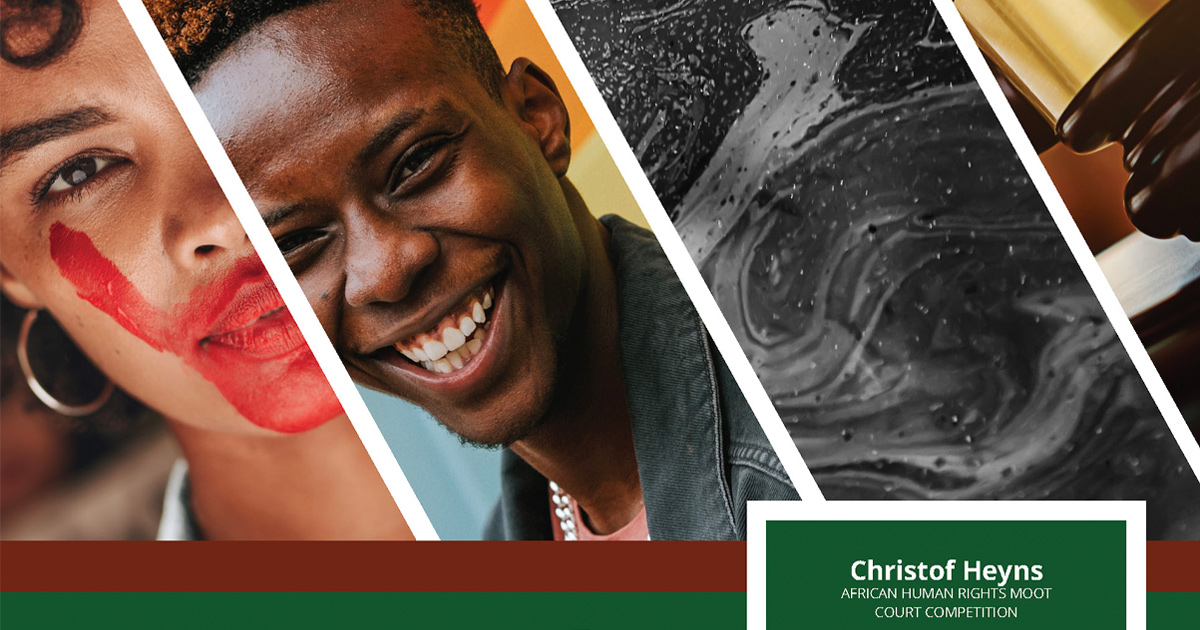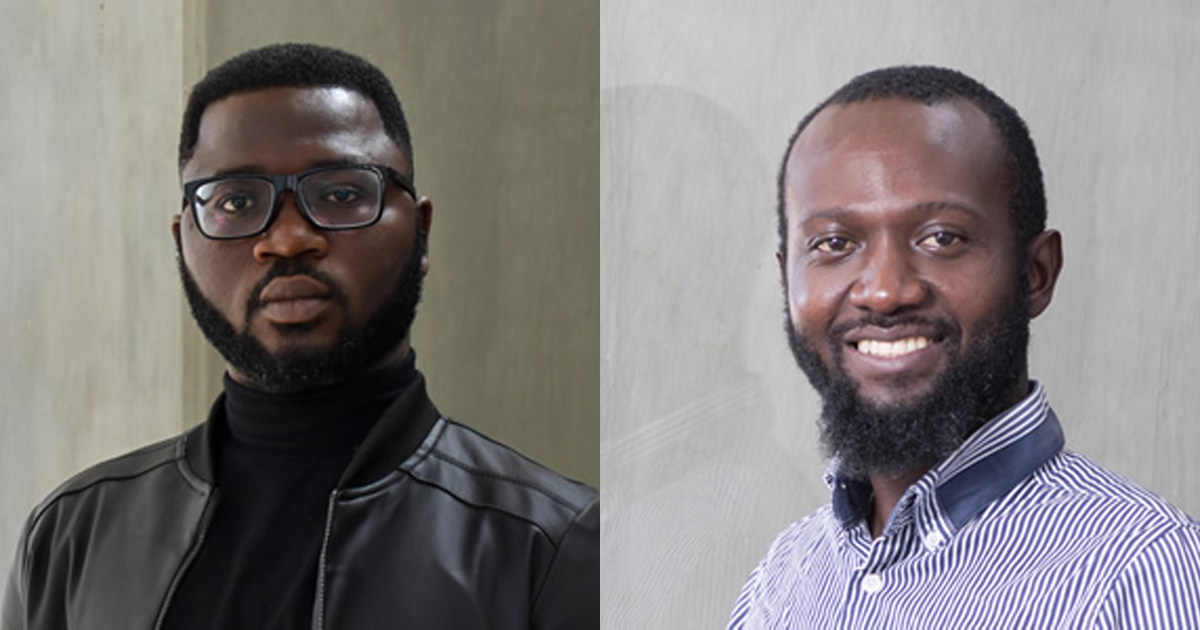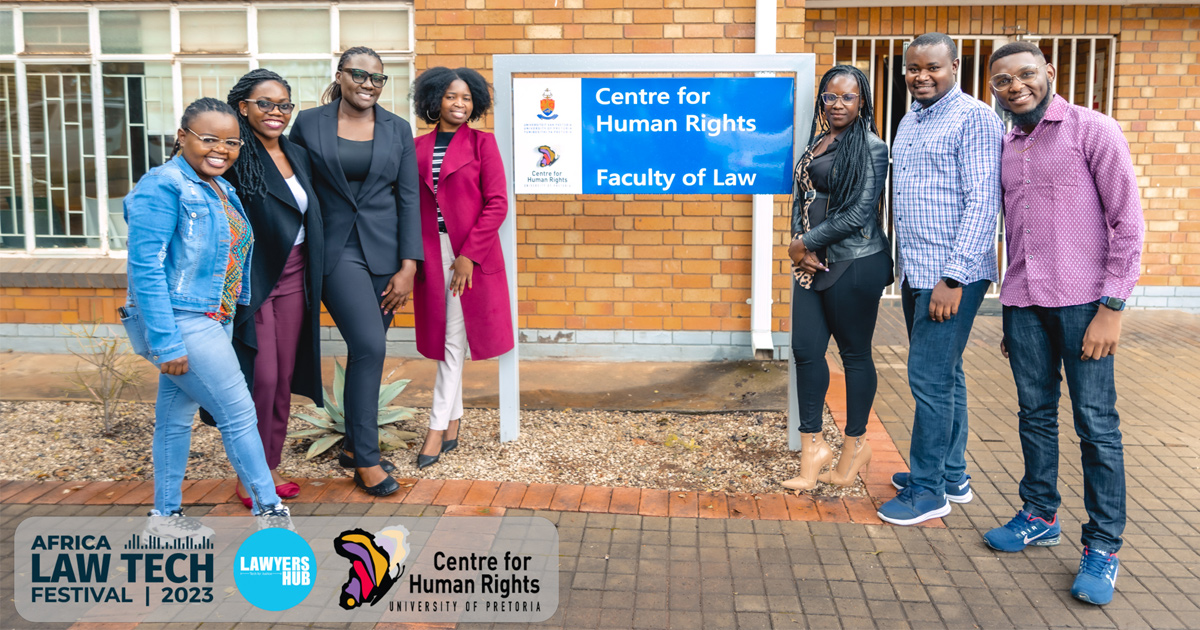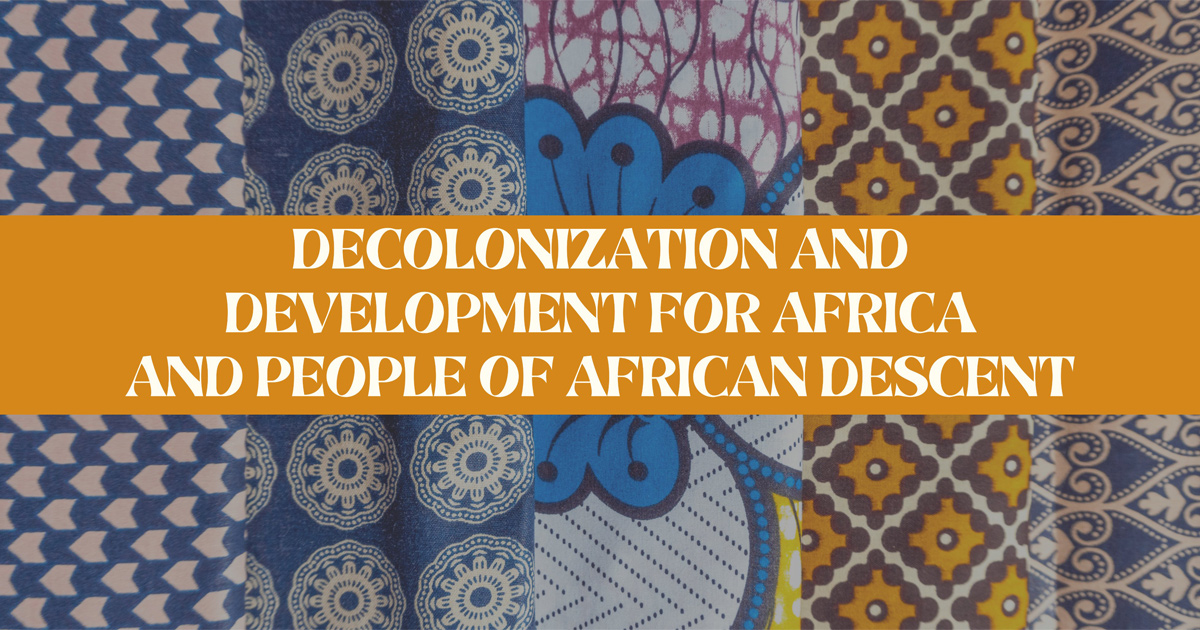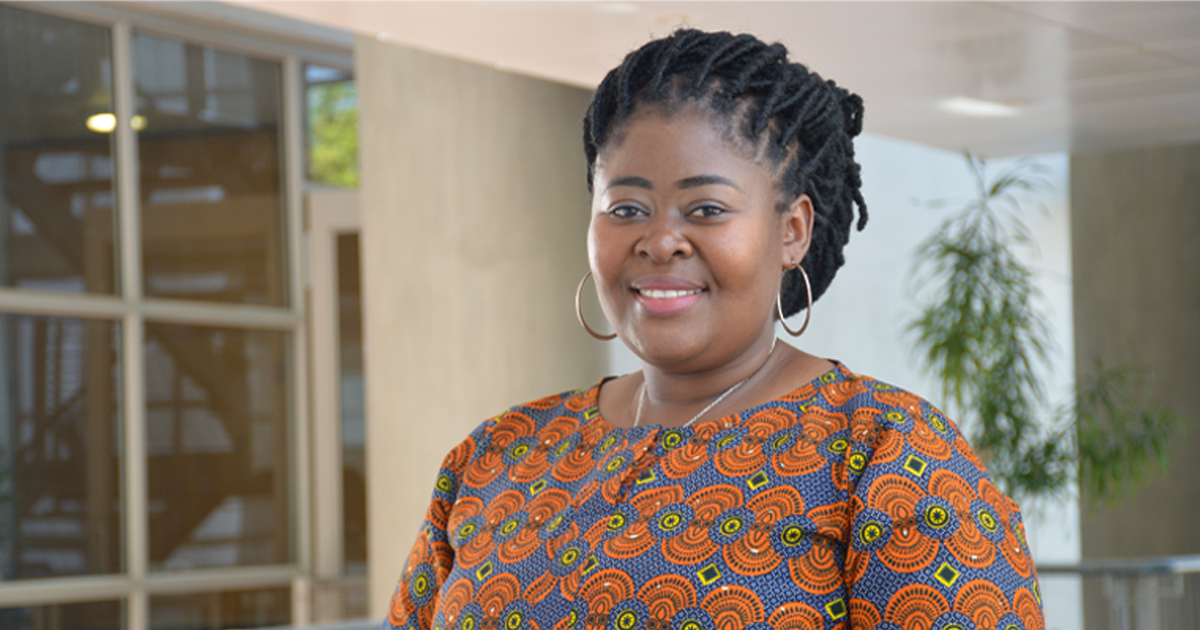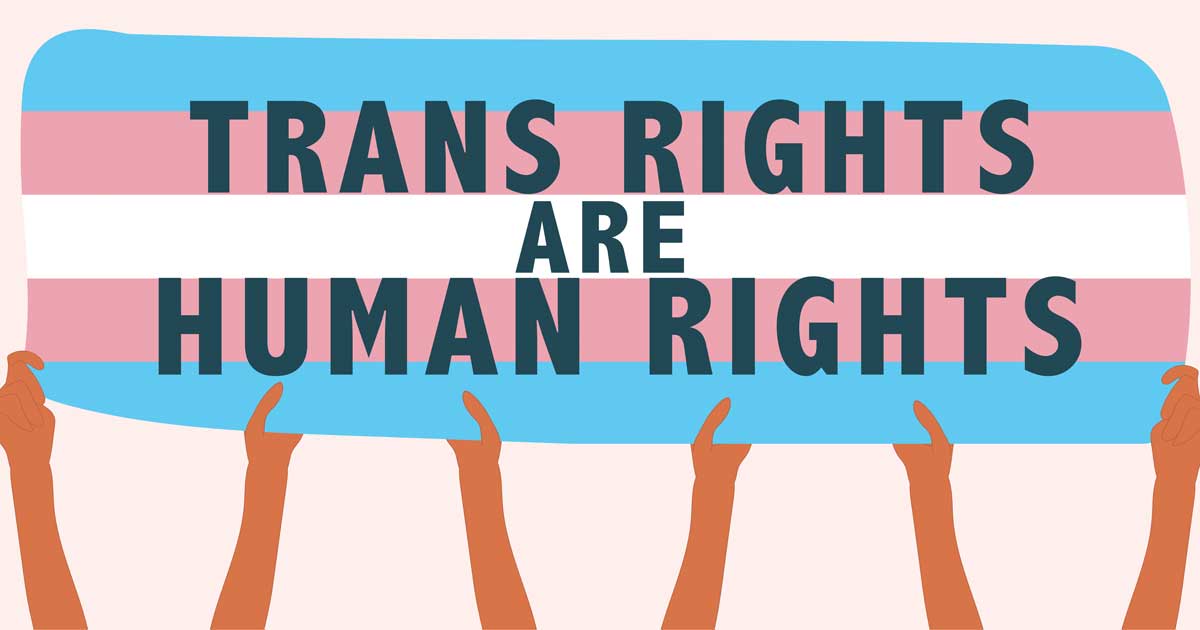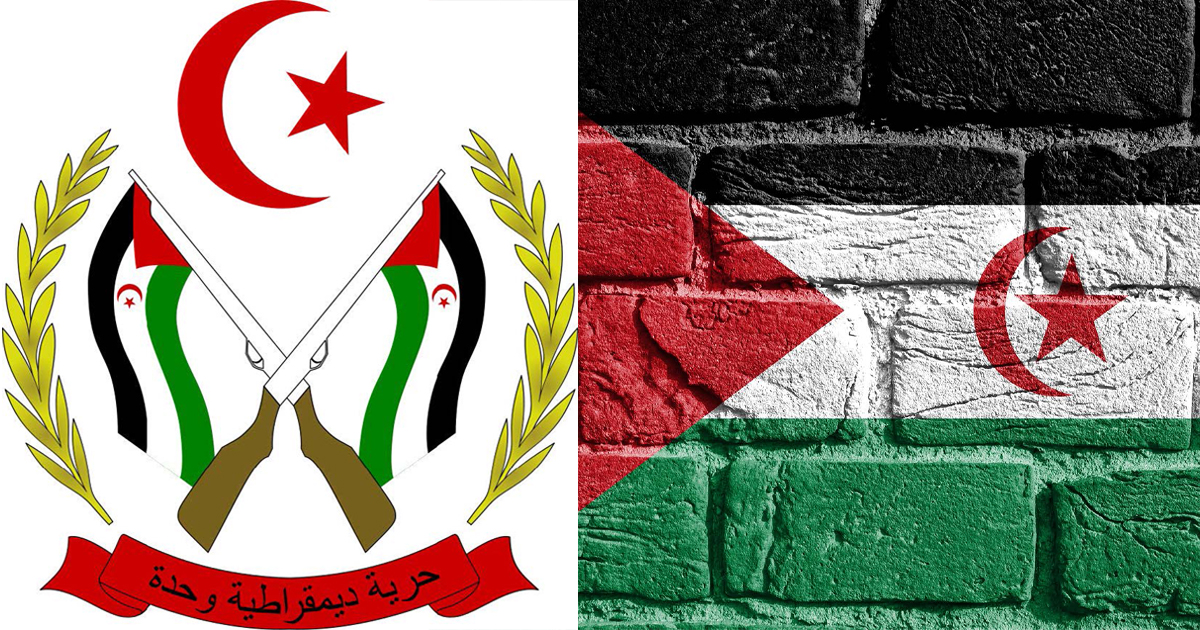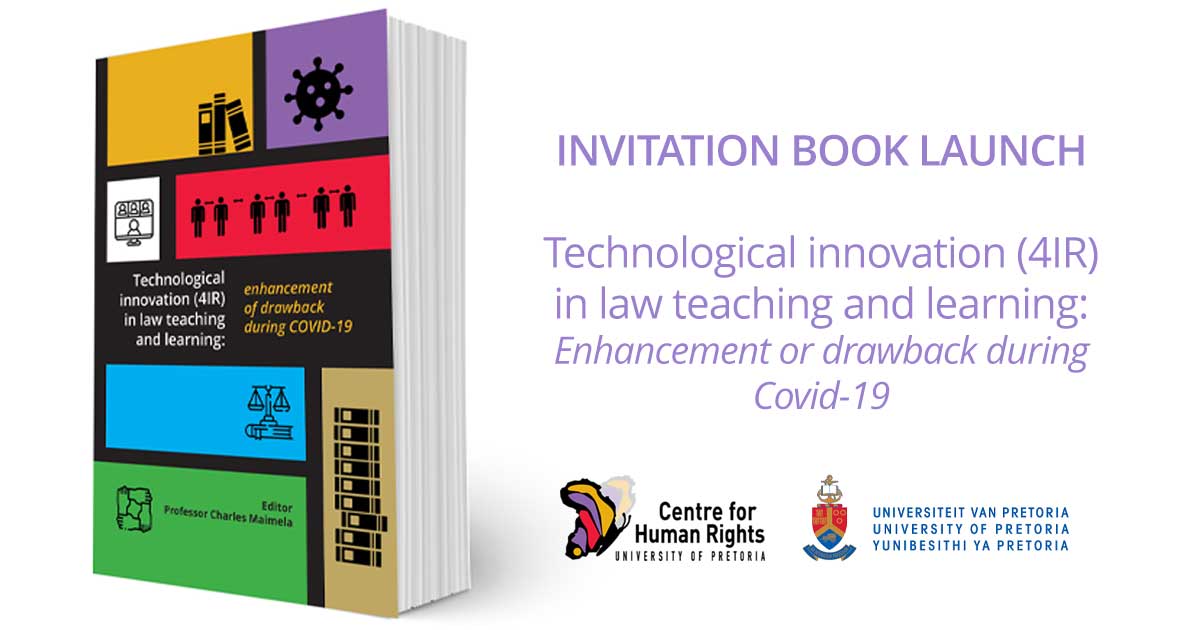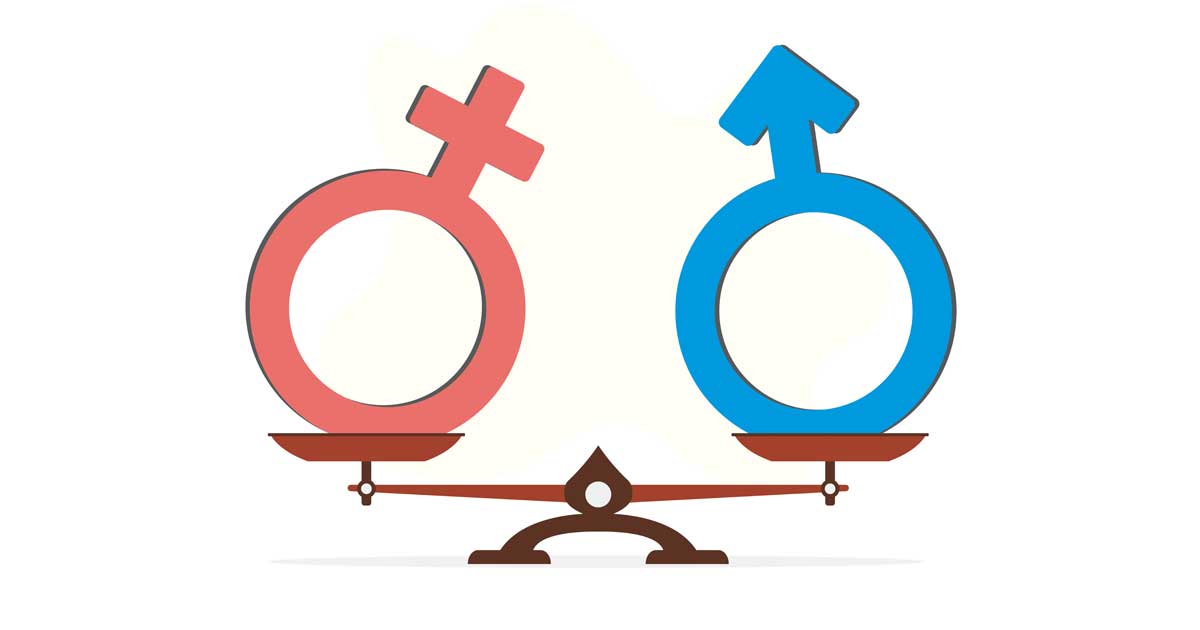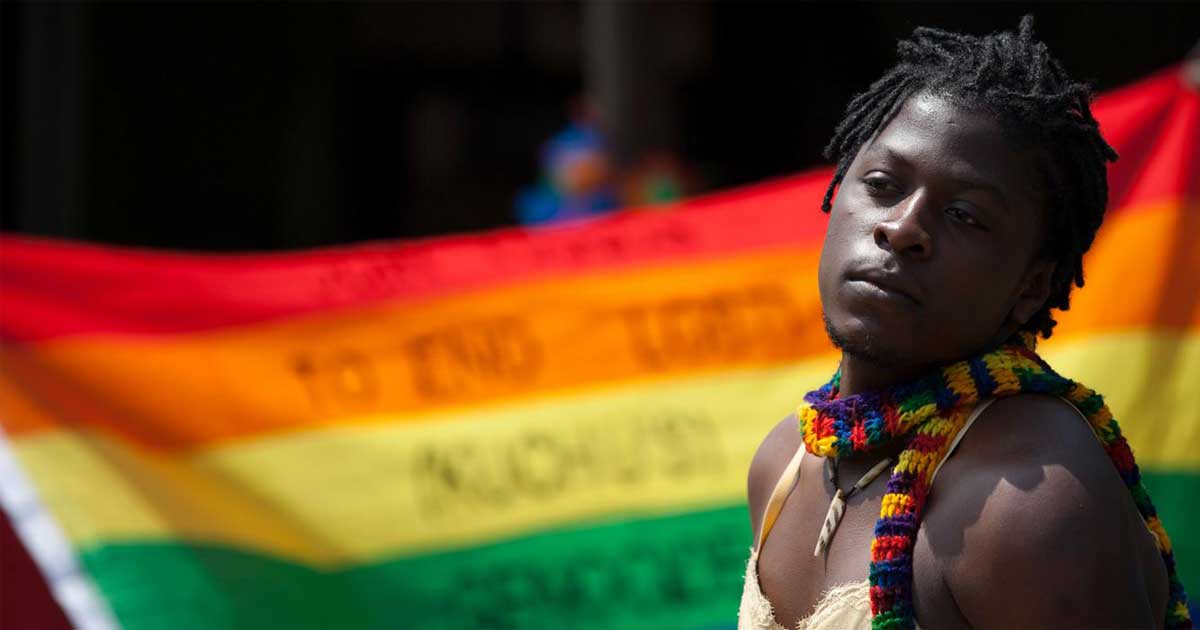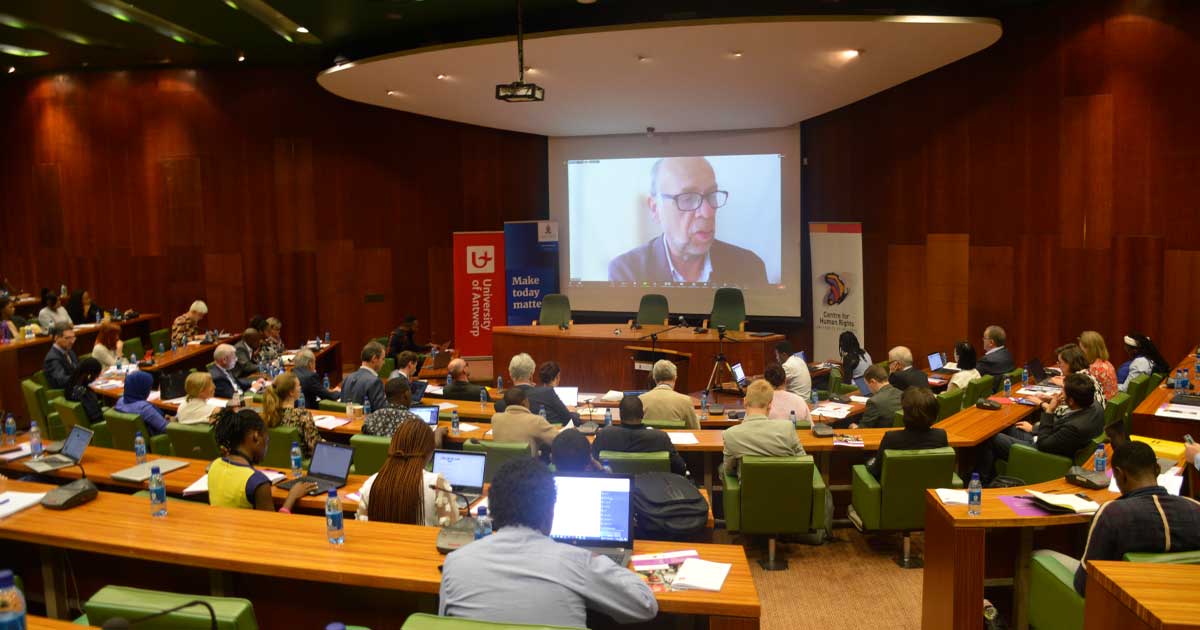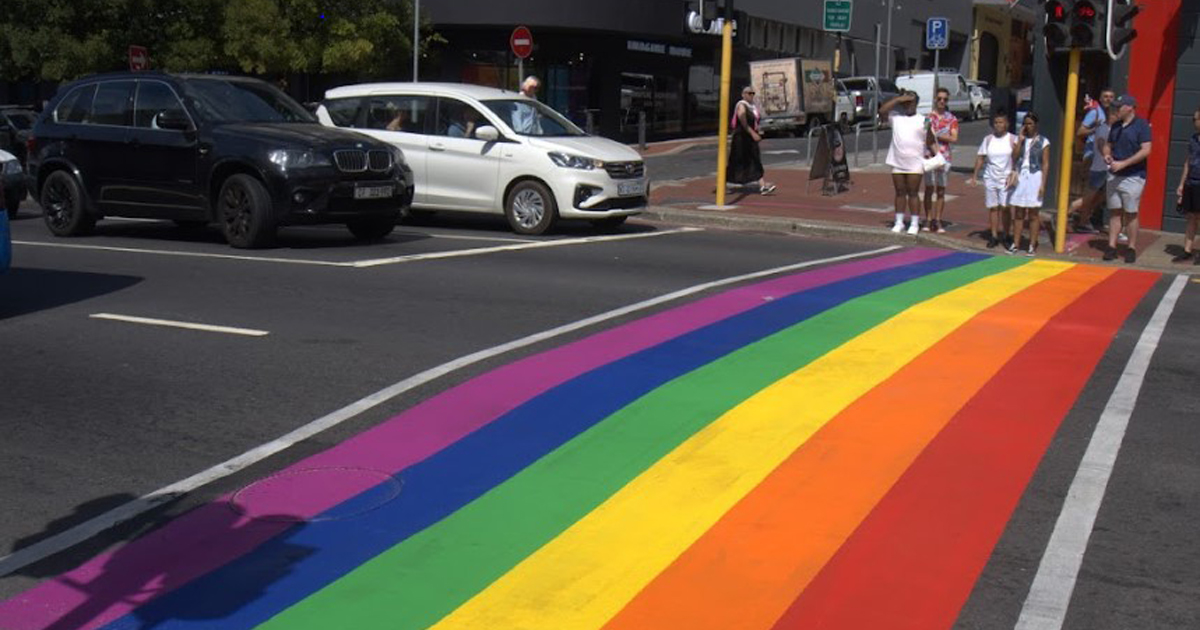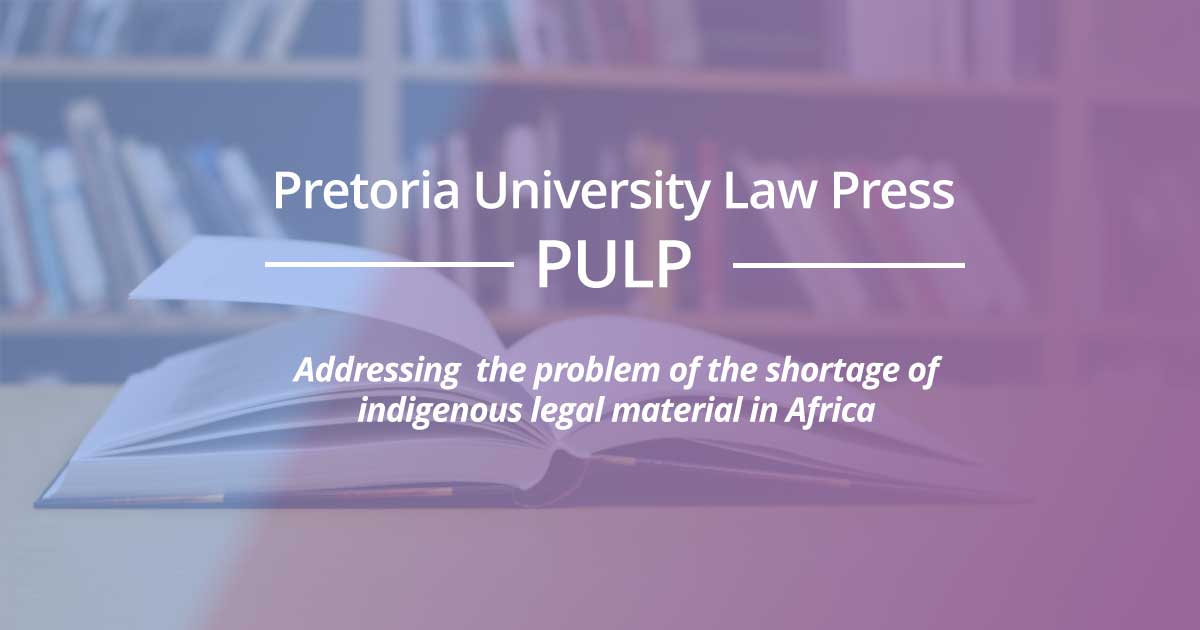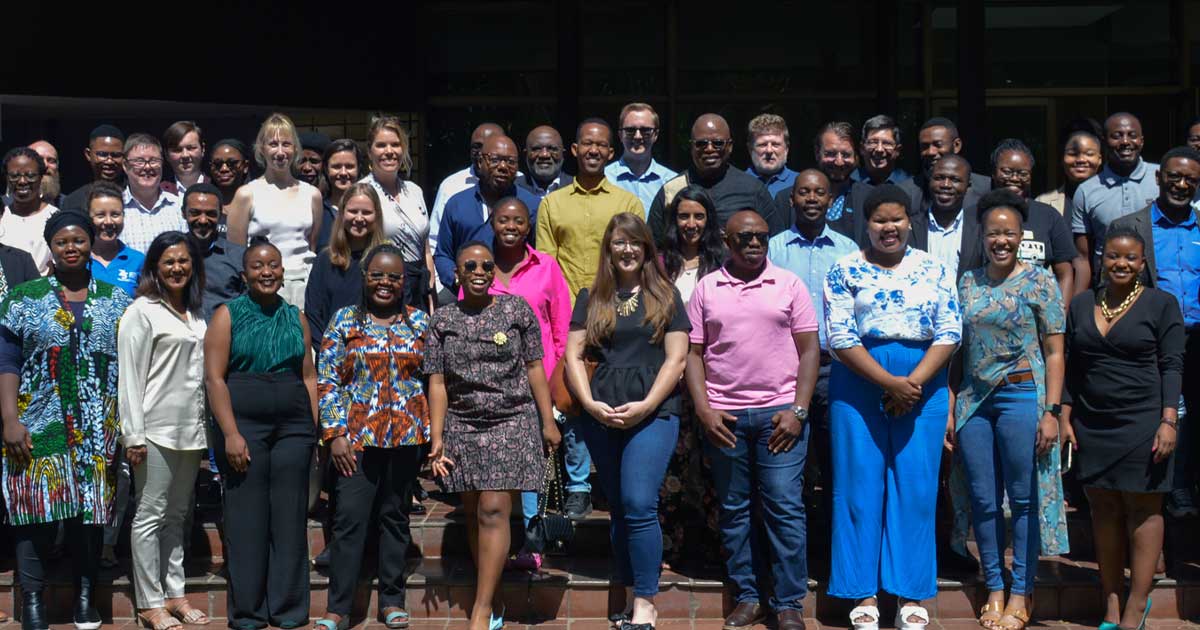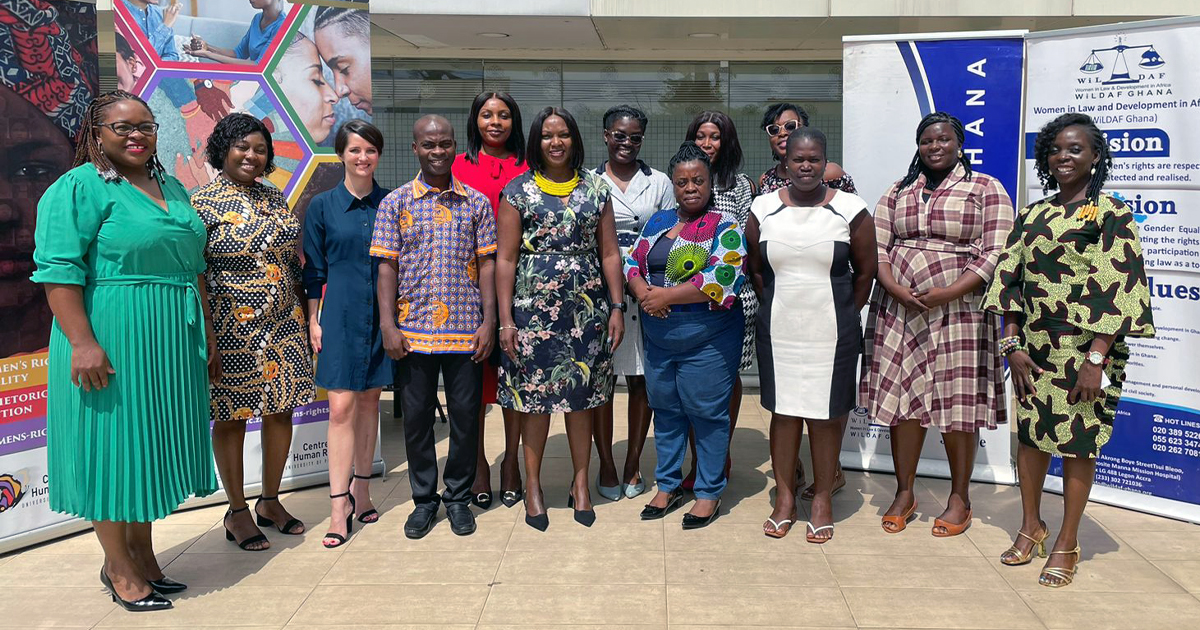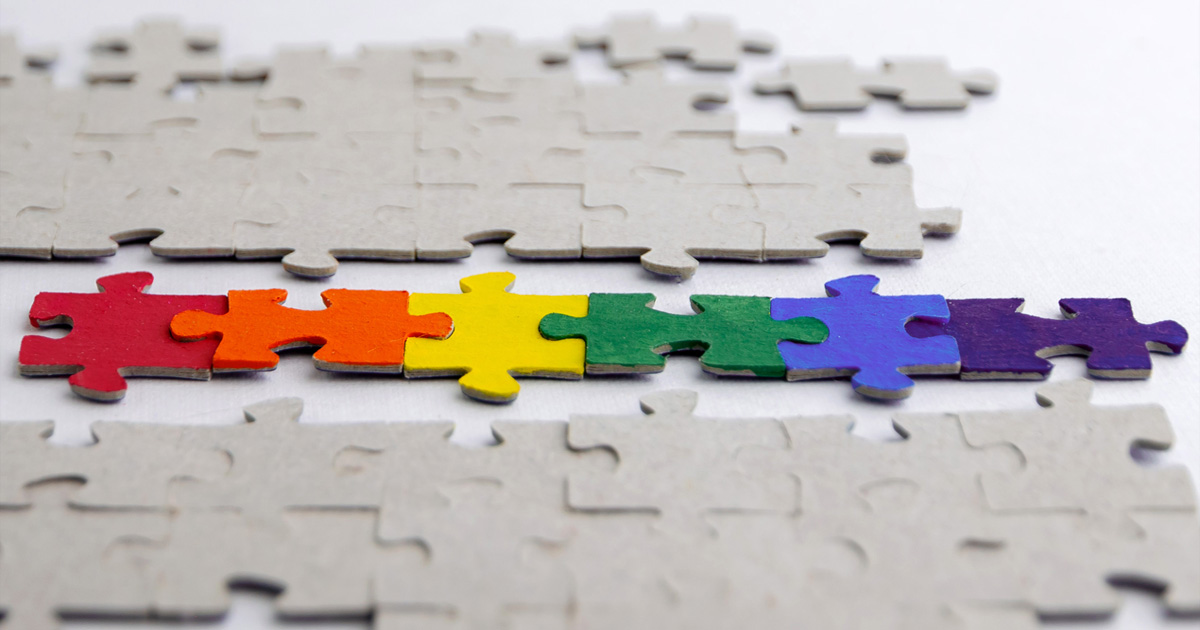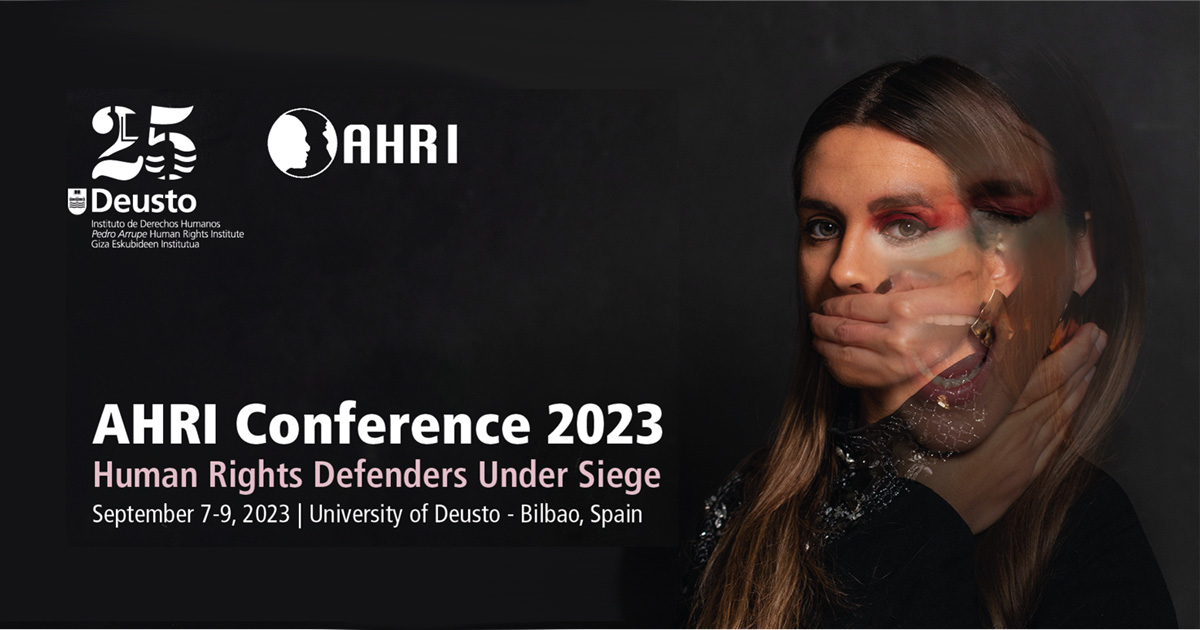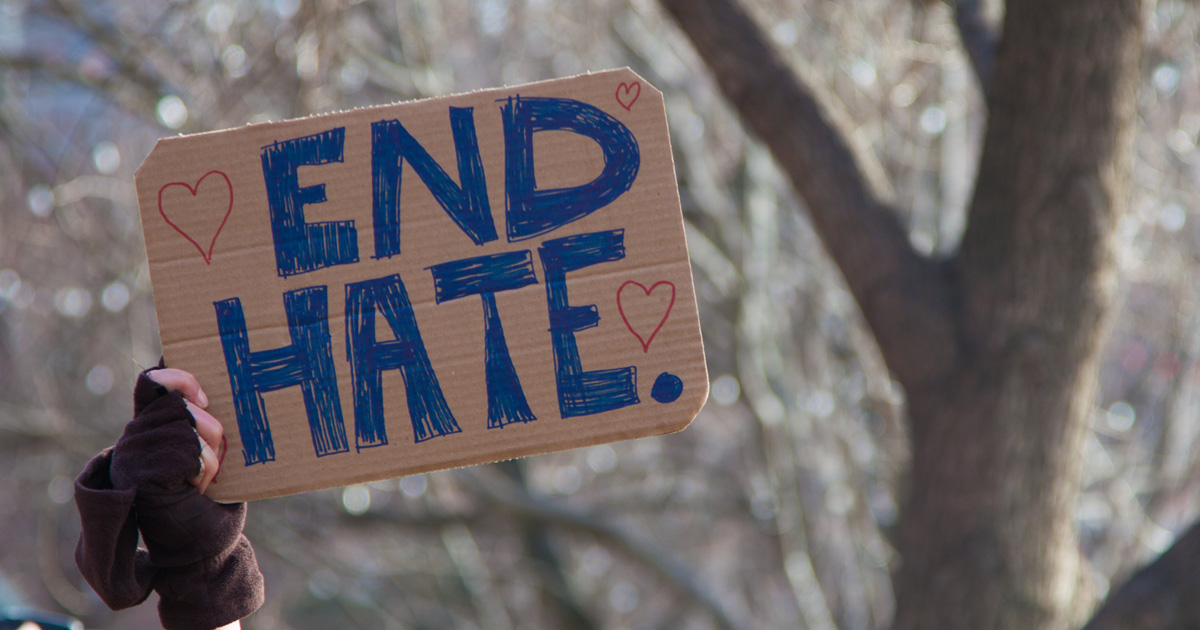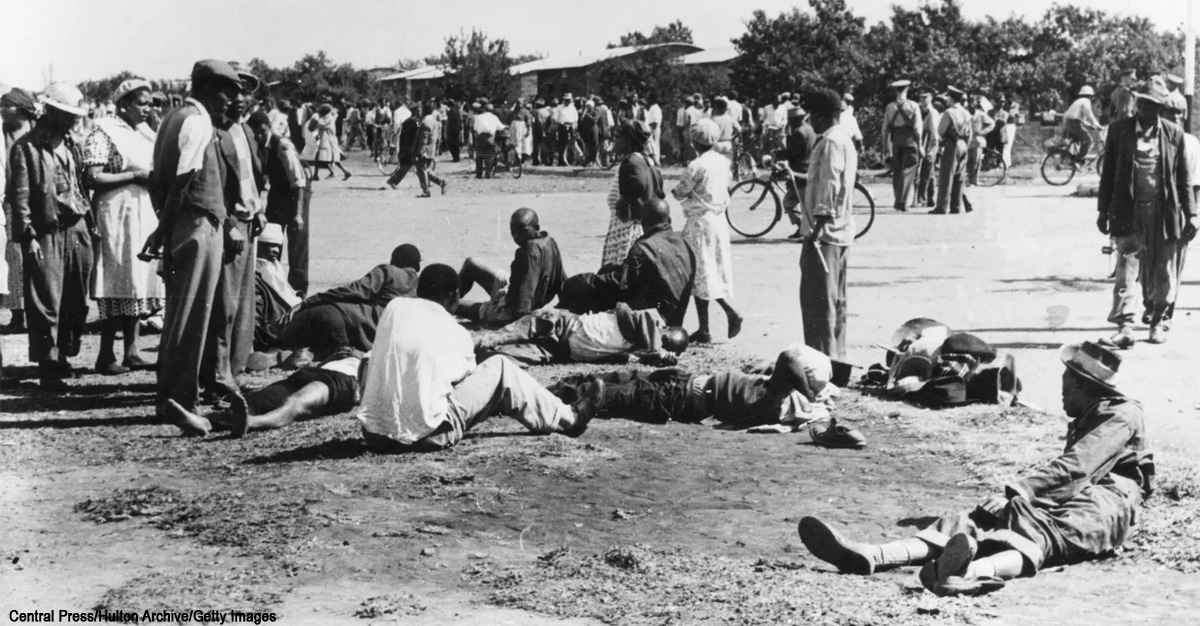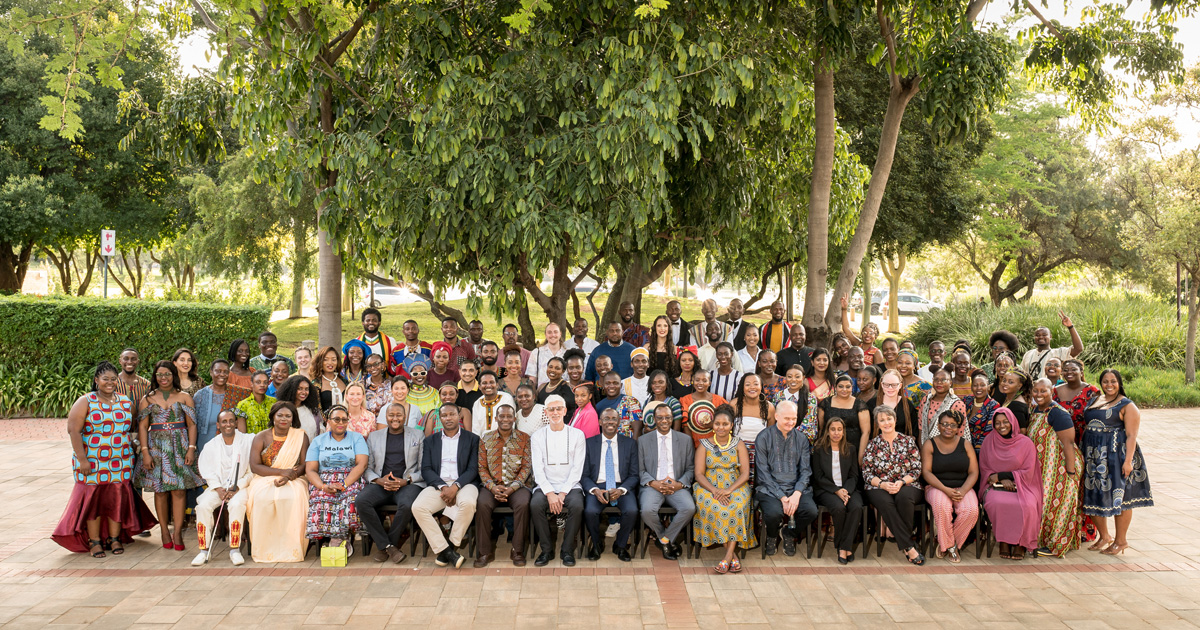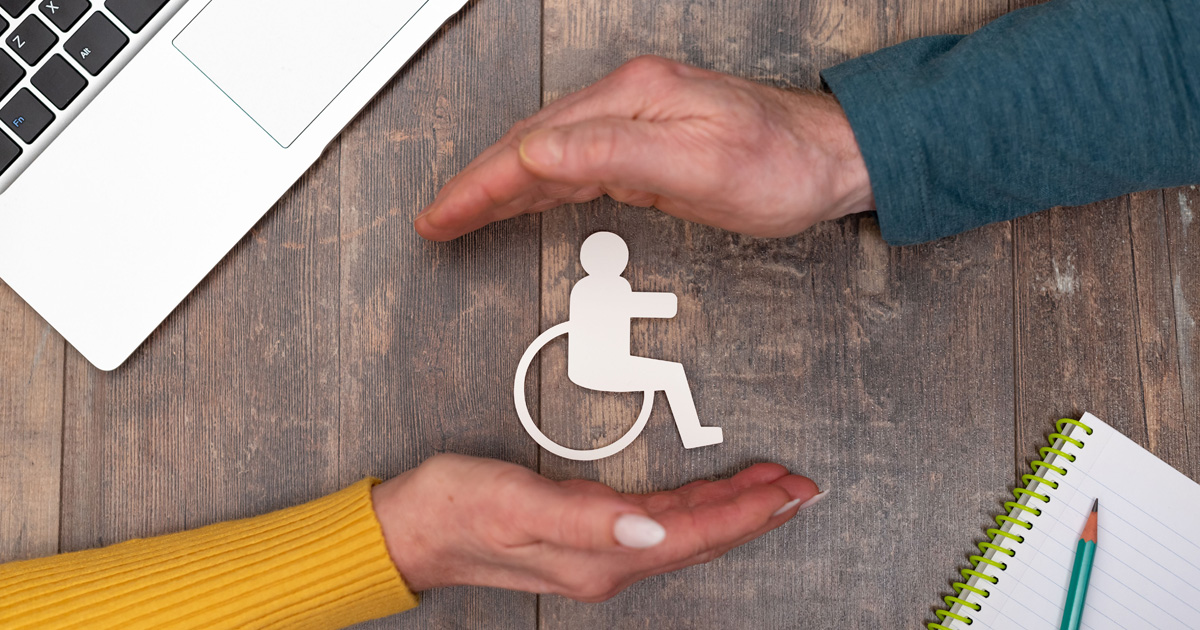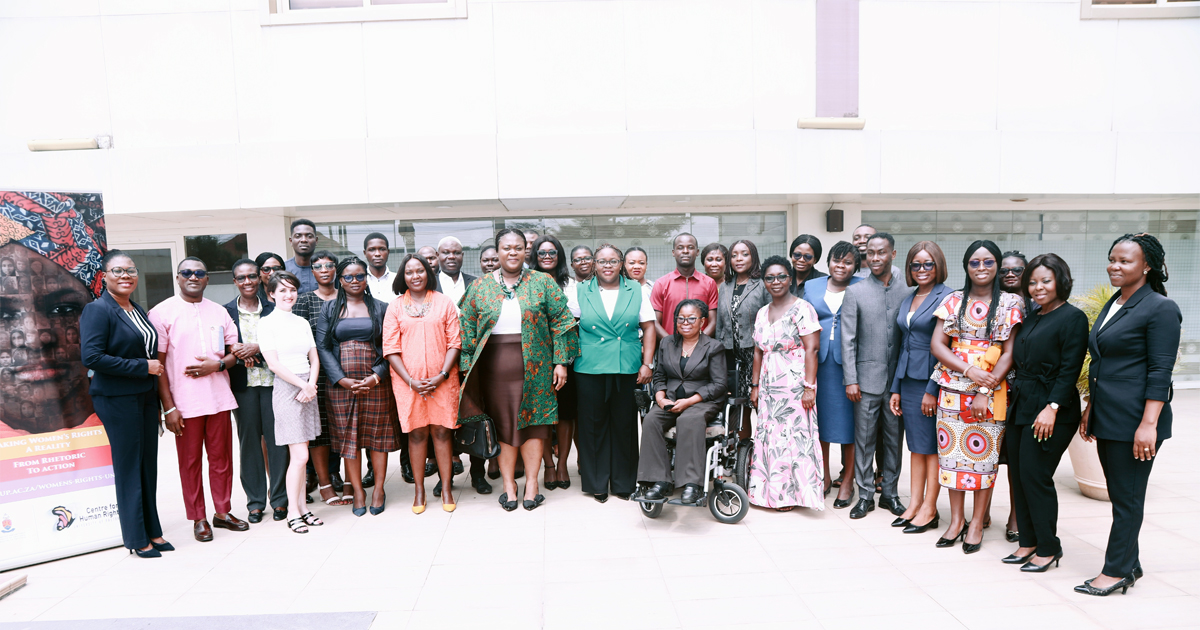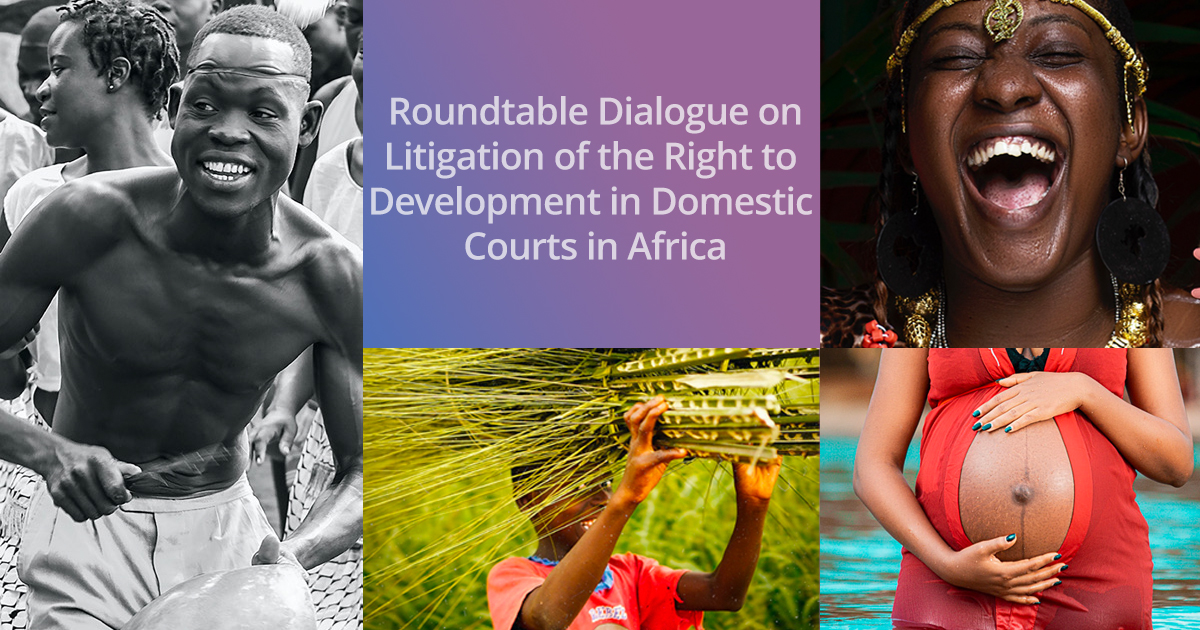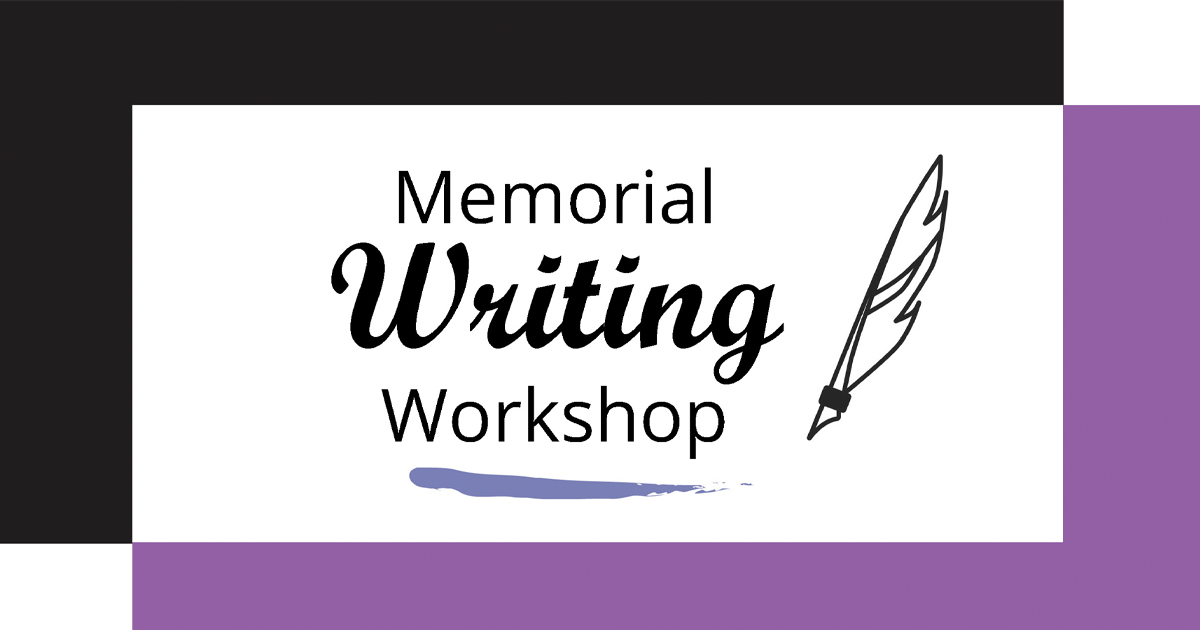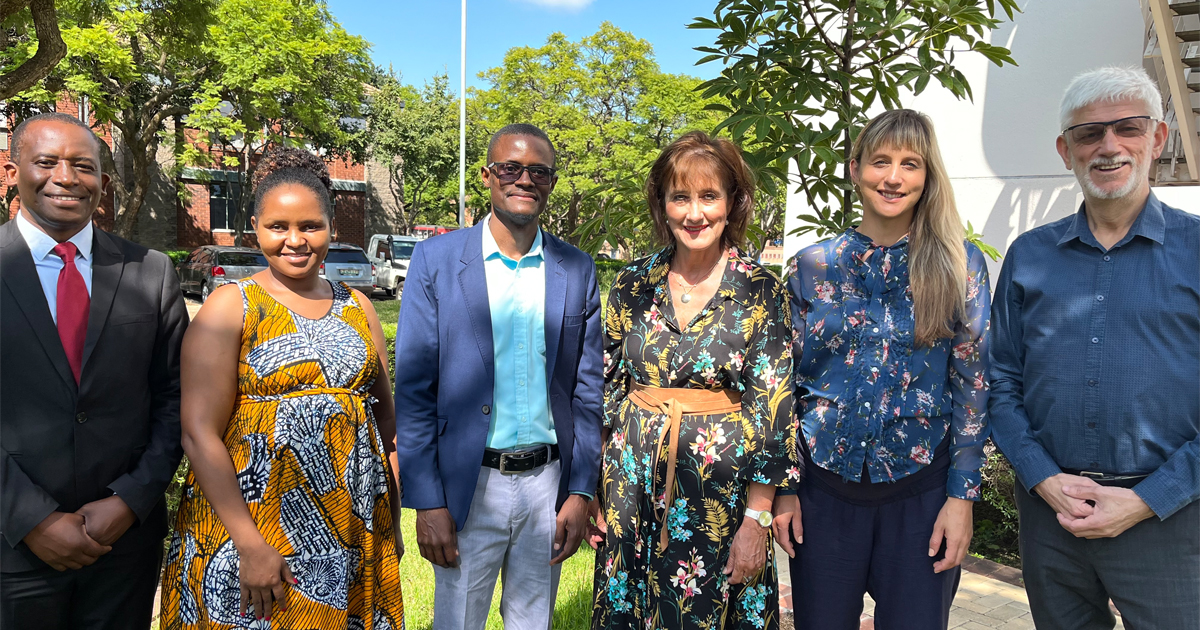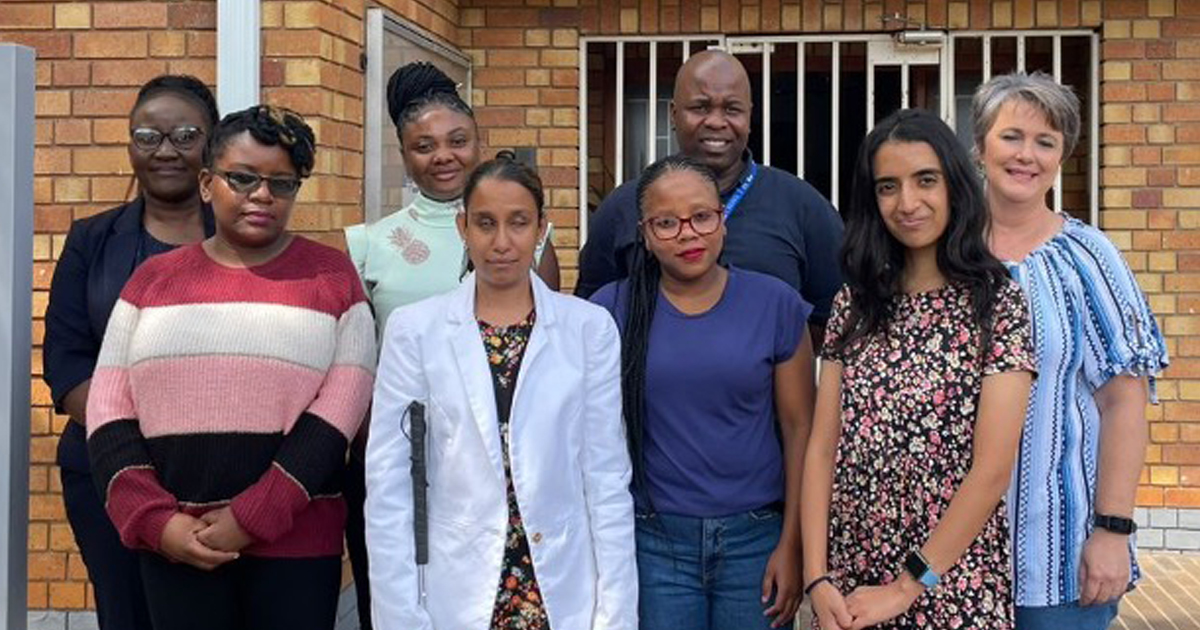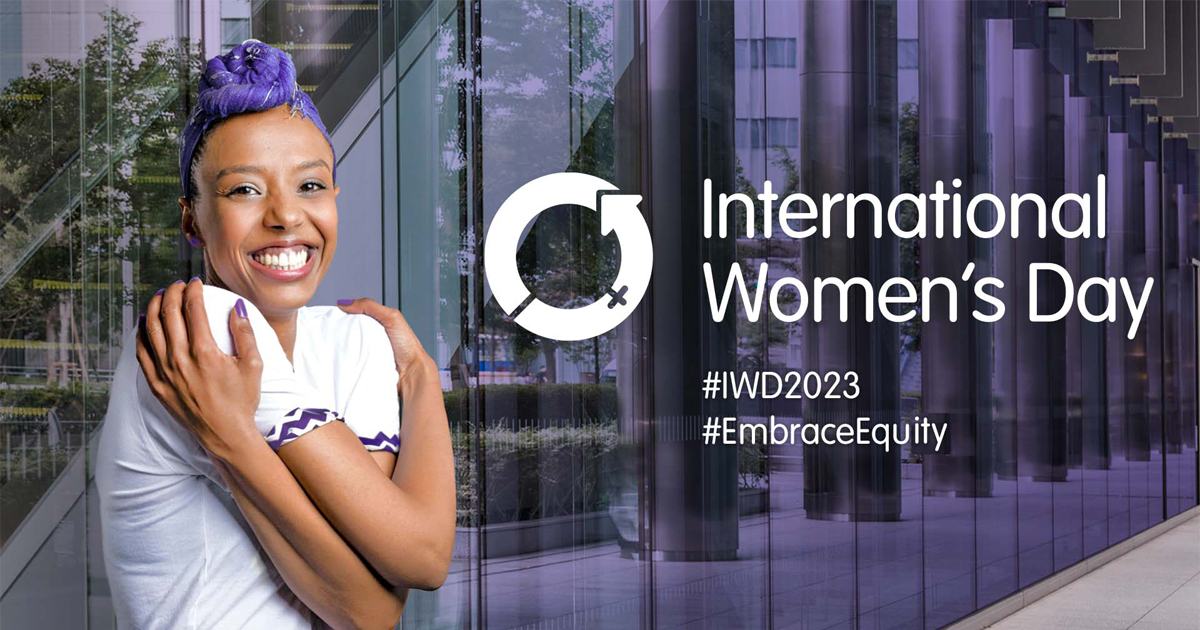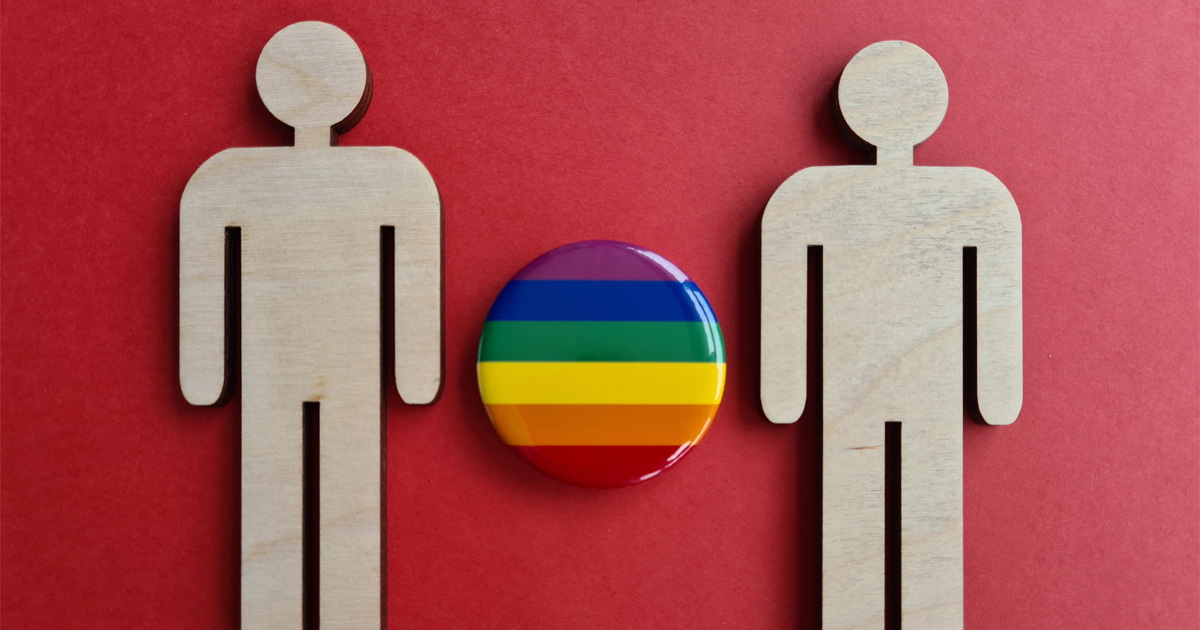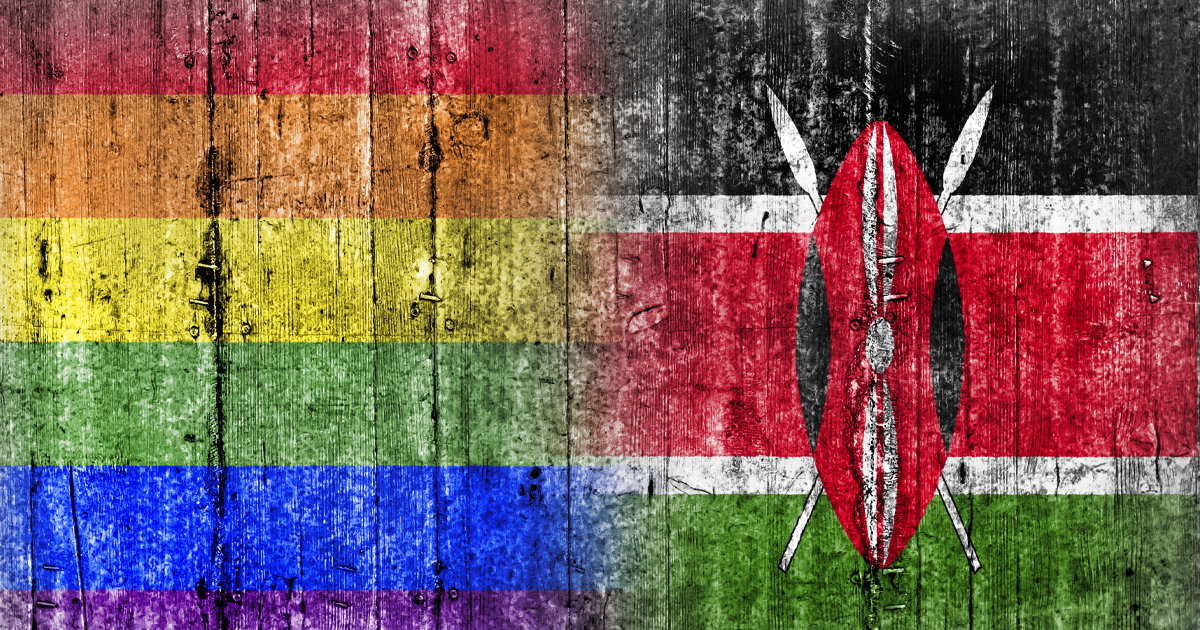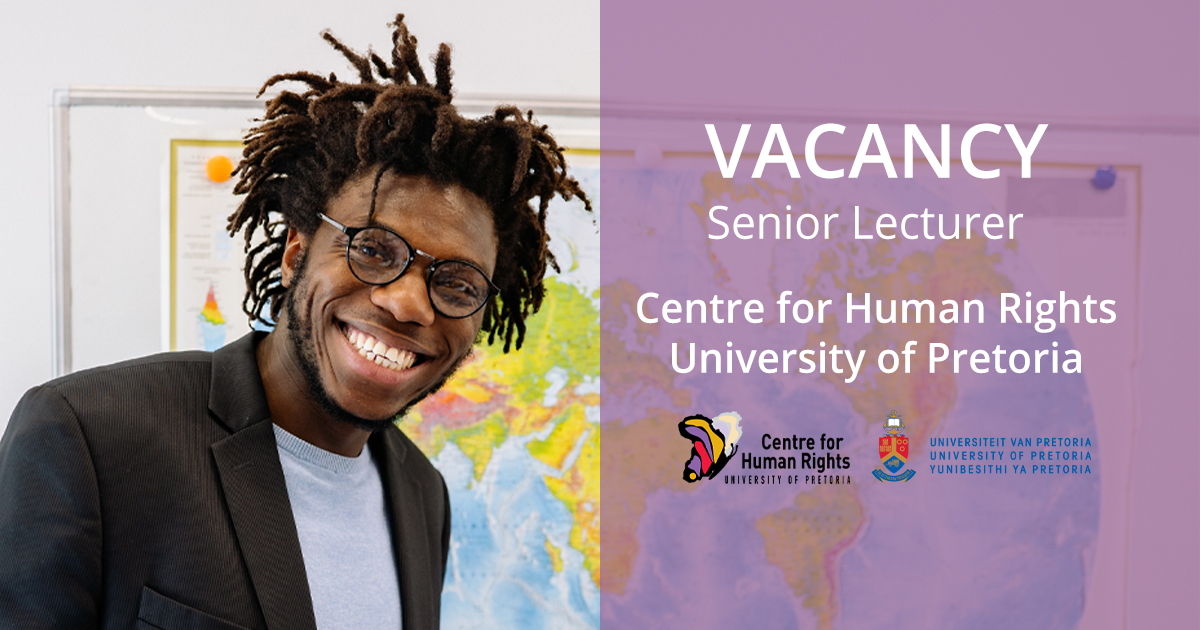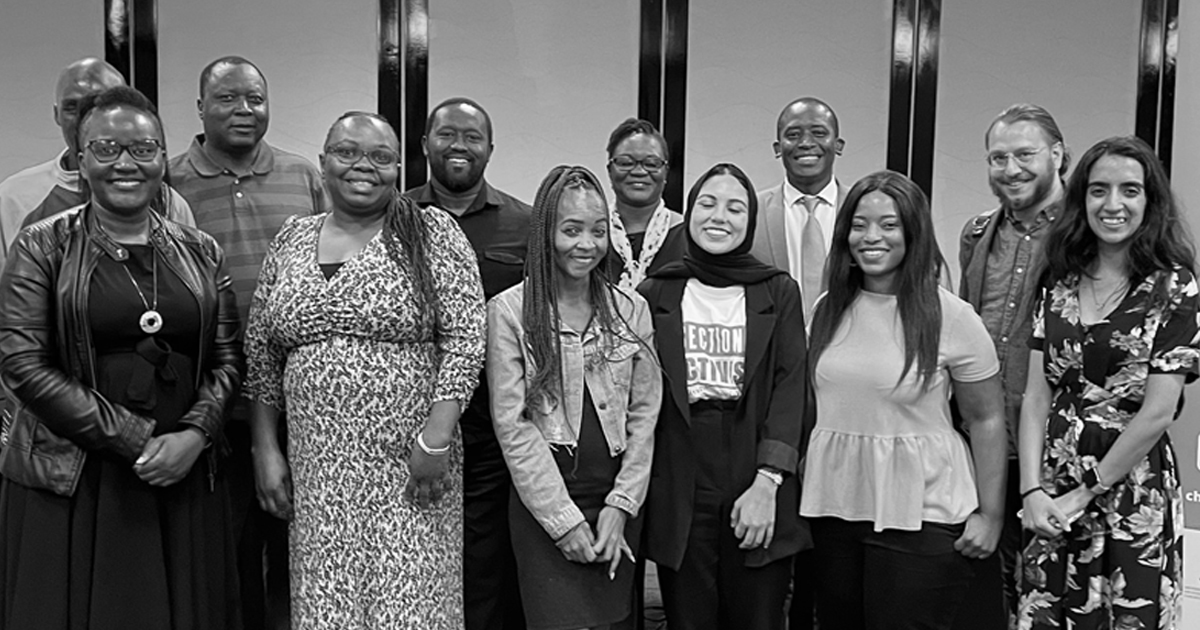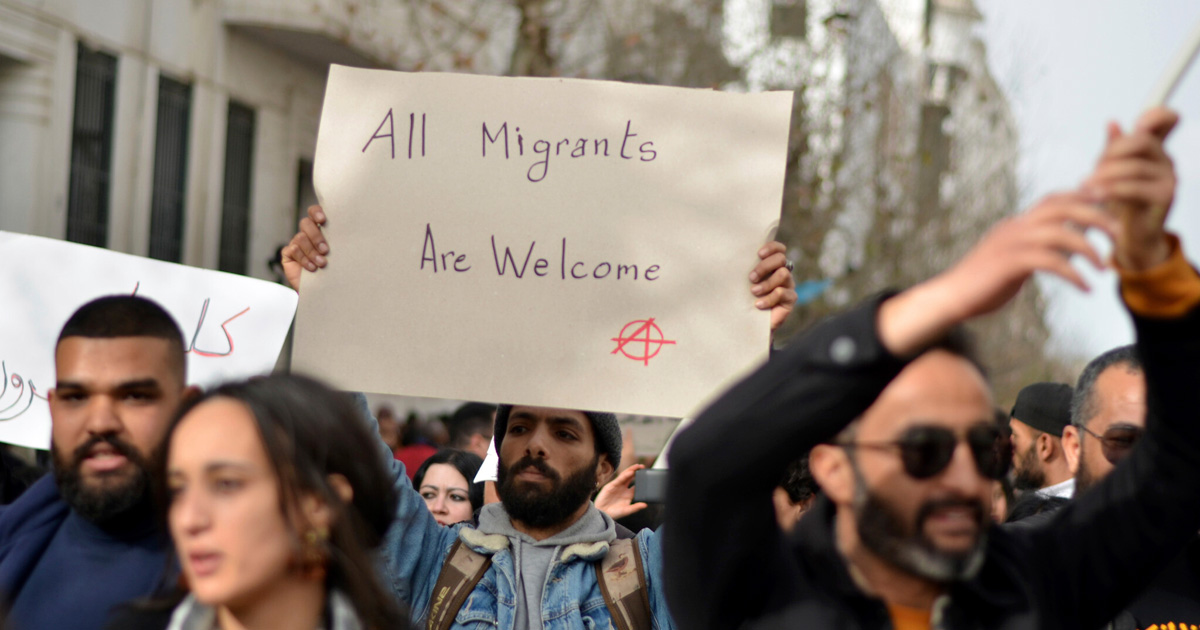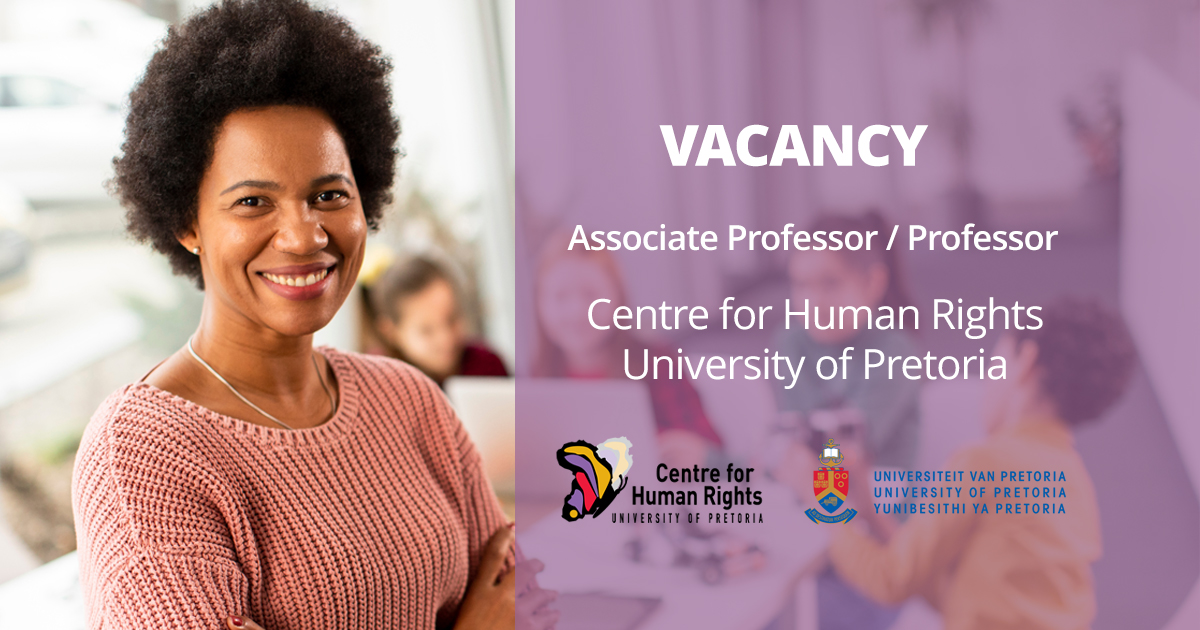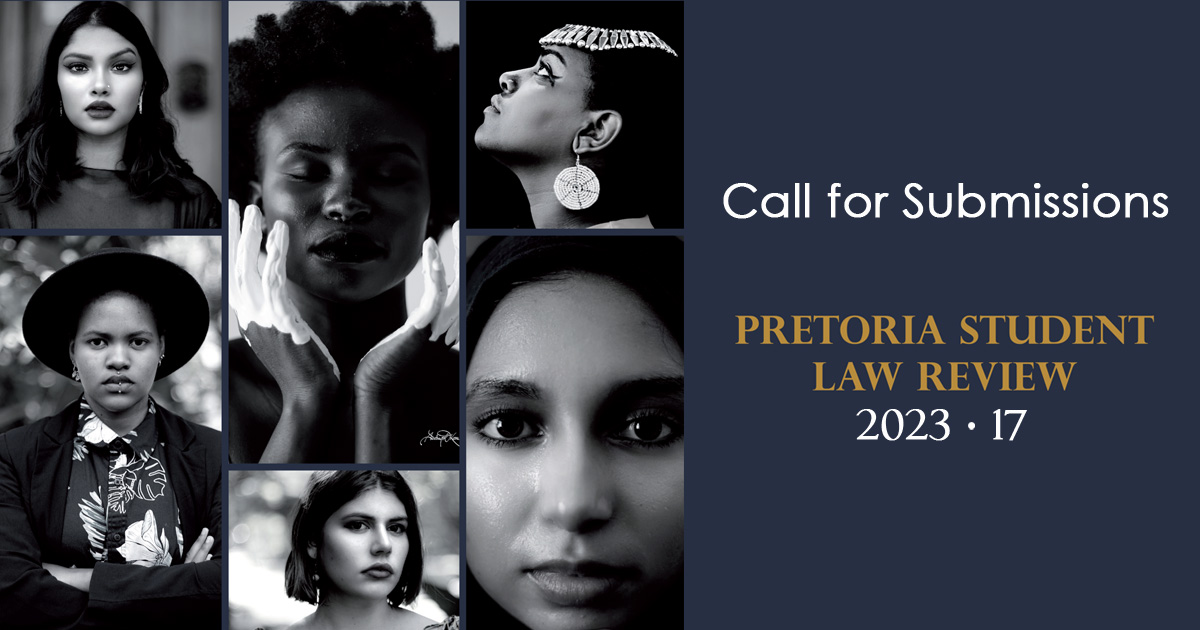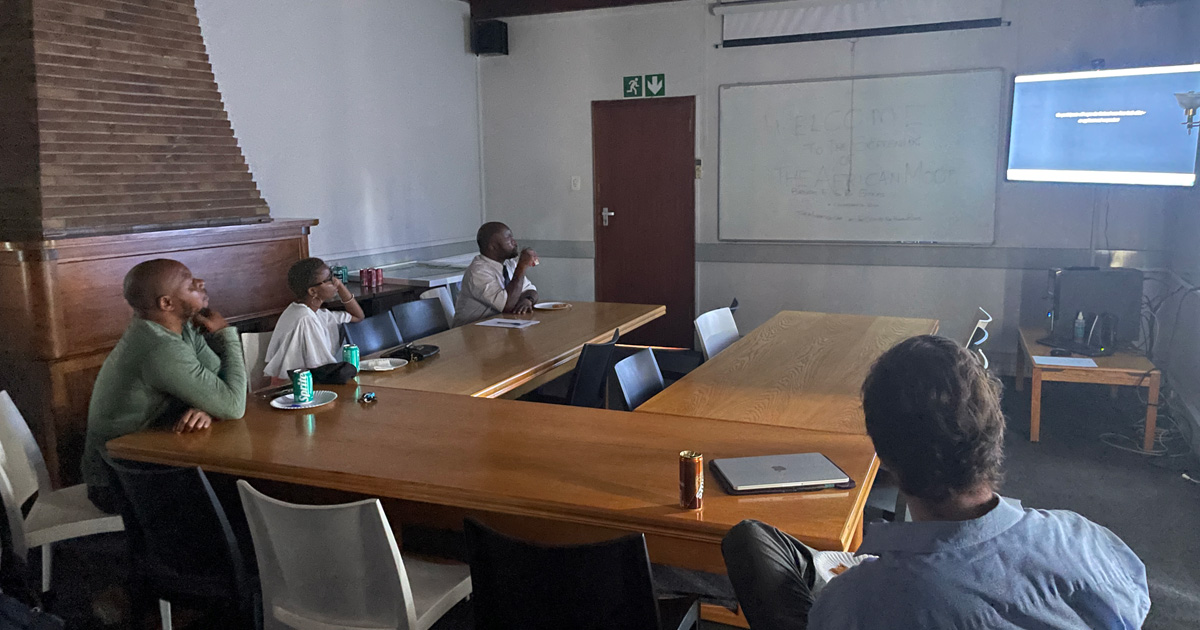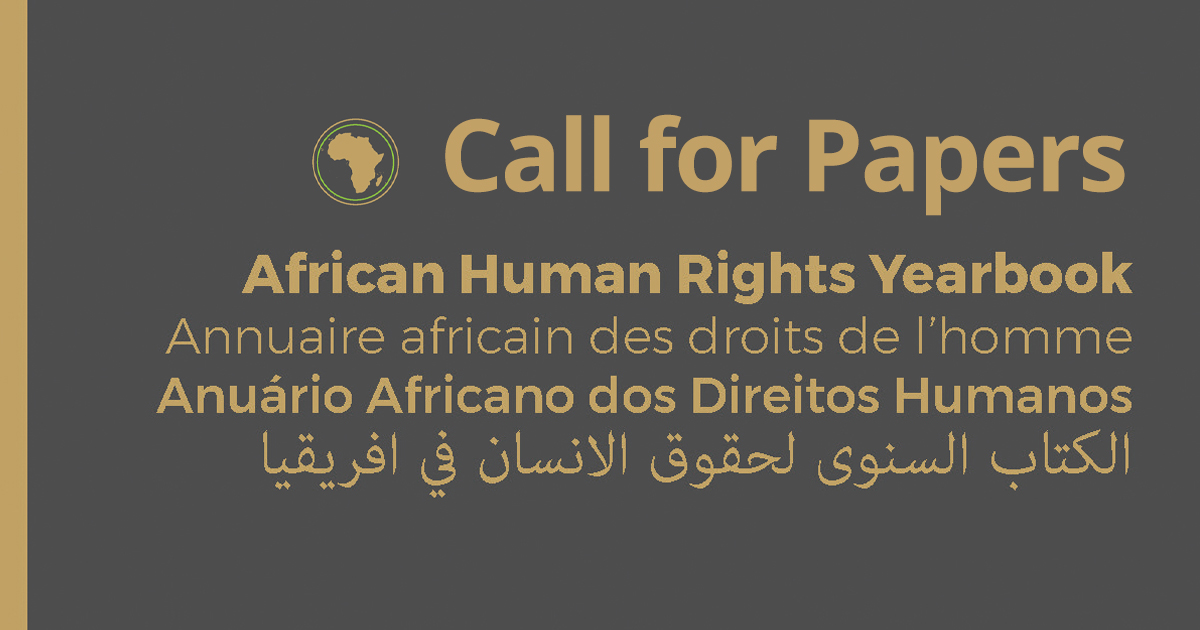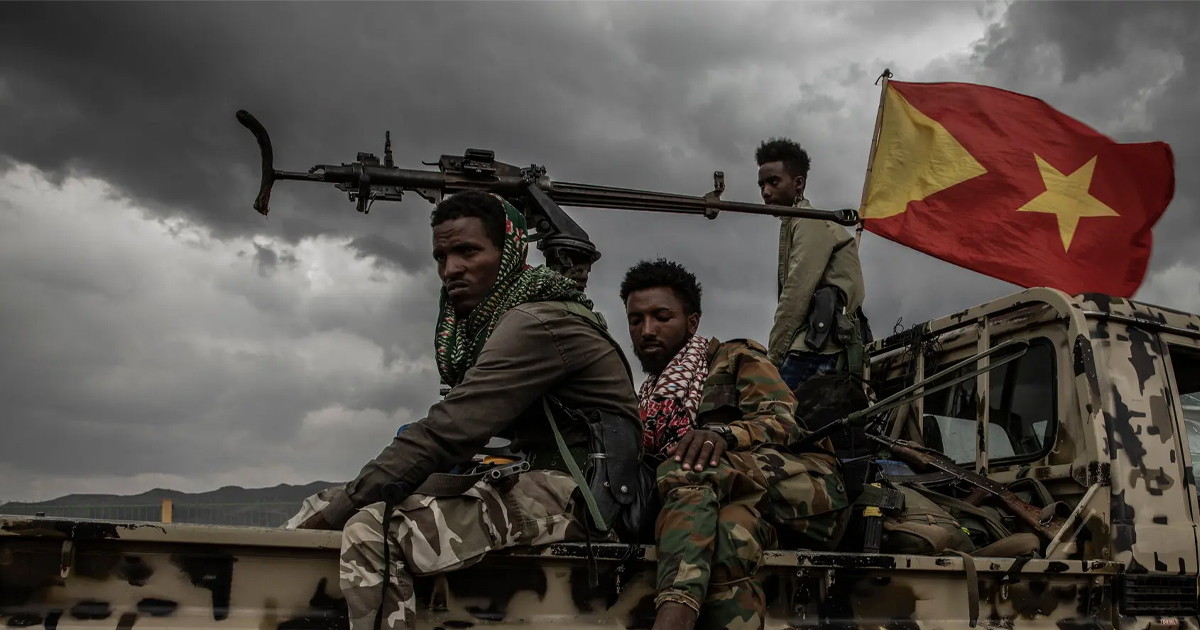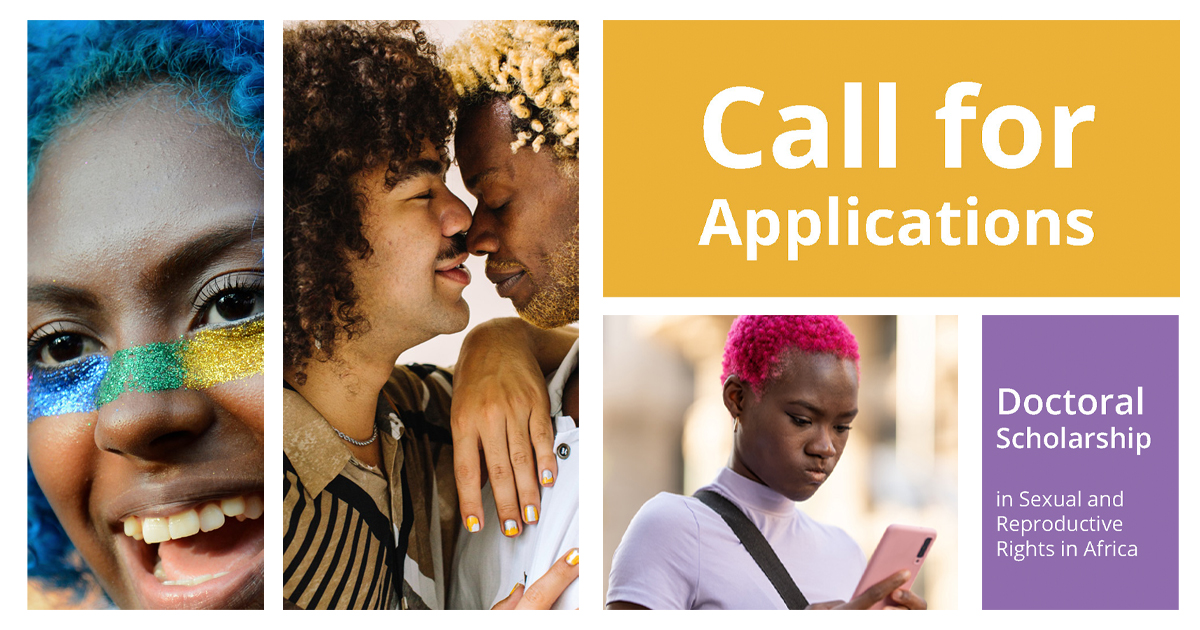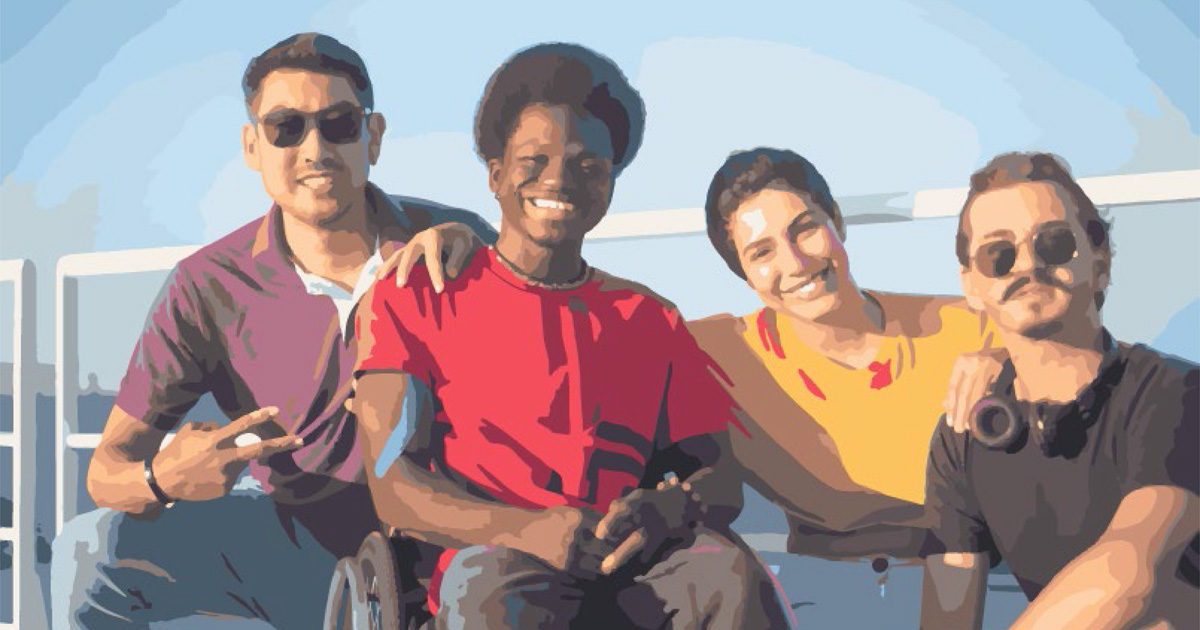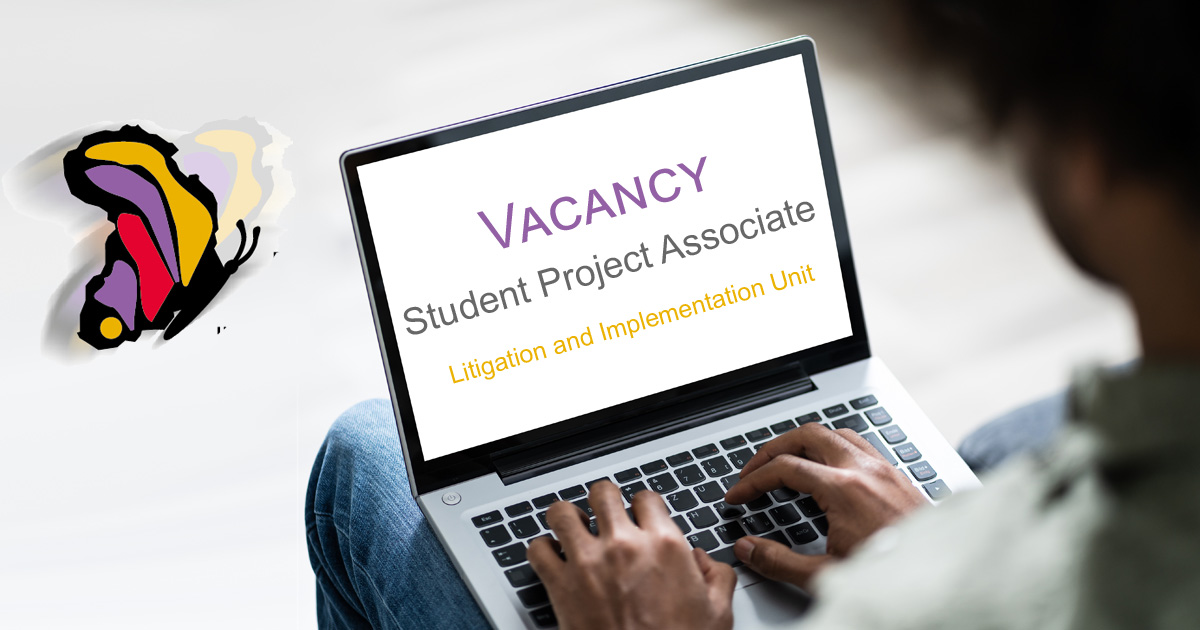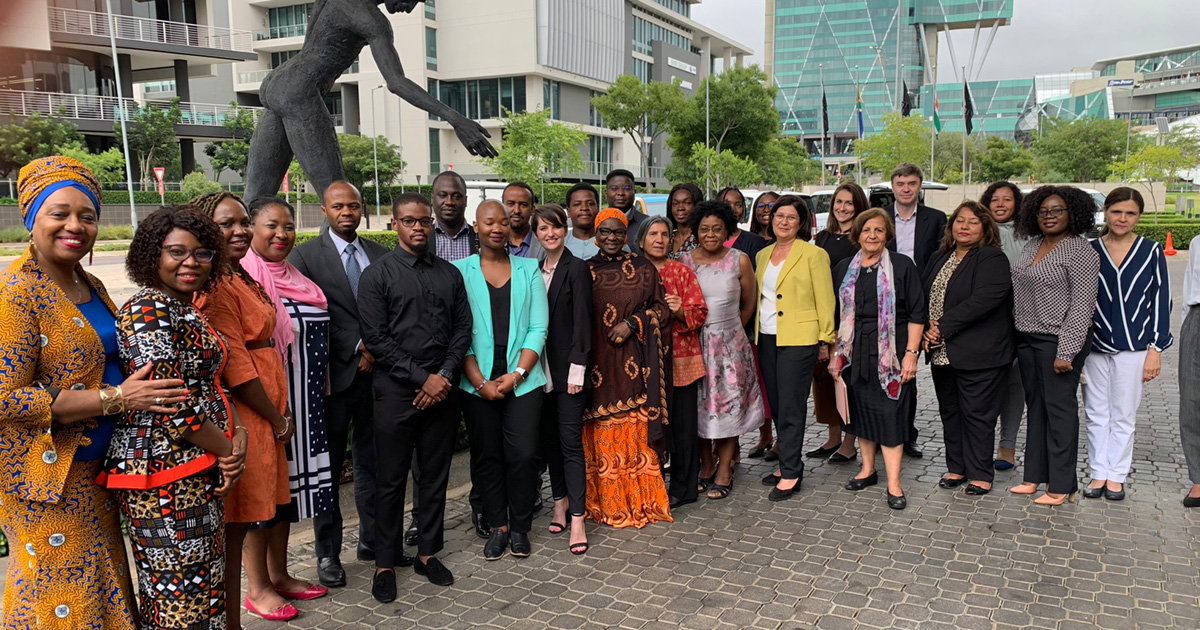- Details
The Pretoria-Marburg Queer Conversations team hosted Dr Bev Ditsie in an online webinar titled 'Where is the joy? Portrayals and depictions of LGBTIQ+ persons'. The event took place on Freedom Day, 27 April wich falls during International Lesbian Week of Visibility, and was attended by colleagues and networks working with the affiliated Centres at the University of Pretoria and Phillips-Marburg. Bev Ditsie is a renowned lesbian activist, artist, and filmmaker.
- Details
The Centre for Human Rights, Faculty of Law, University of Pretoria is concerned with the gross and systemic human rights violations targeted at human rights defenders, political activists, and civil society actors; because of calls for greater reforms in Eswatini’s political governance system.
- Details
On 15 – 19 May 2023, the Centre for Human Rights, Faculty of Law, University of Pretoria (the Centre) hosted an Advanced Human Rights Course on Women's Rights in Africa.
- Details
Director Position - Closing date for application extended to 31 May 2023.
After some 15 years at the helm of the Centre for Human Rights, the current Director (Professor Frans Viljoen) will stand down from the position (while staying on with the Centre as professor of international human rights law). The closing date for applications is 31 May 2023; interested persons should please apply through the UP website
- Details
South Africa, like the rest of Africa – and the world – celebrates ‘Africa Day’ today. This day, 25 May, is the date on which, 60 years ago, the Organisation of African Unity (OAU) was founded. The OAU was in 2002 transformed into the African Union (AU), with its inaugural session being held in Durban, South Africa, on 9 July 2002. Because the roots of ‘formalised pan-Africanism’ are traced back to 1963, the date of the OAU’s founding still marks ‘Africa Day’.
- Details
At an historic meeting on 19 May 2023 at the Pan African Parliament (PAP), in Midrand, a group of civil society organisations, under the umbrella of the PAP Civil Society Organisations (CSO) Forum, for the first time formally met with Members of the PAP (MPAPs) in a Parliamentary Dialogue as part of the PAP’s May 2023 ongoing session. The meeting signalled the recognition by the PAP of the importance of civil society, and the ambition of the PAP to be a genuine peoples’ parliament. The PAP CSO Forum PAP presented recommendations to the MPAPs pertaining to the relationship between the PAP and civil society, human rights, peace and security, the Free Movement of Peoples Protocol and the Malabo PAP Protocol. MPAP Pemmy Majodina, Chief Whip of the ANC, chairing the Parliamentary Dialogue, undertook that the recommendations would be further discussed by the relevant PAP Committees, and that part of the PAP’s next session would be devoted to discussing them.
- Details
On 17 May 2023, the Centre for Human Rights, Faculty of Law, University of Pretoria (Centre) commemorated the International Day Against Homophobia, Biphobia and Transphobia (IDAHOBIT). The Centre commemorated the day by hosting two events centred around this year’s theme of ‘together always: united in Diversity’, in collaboration with its networking partners Alliance Française, the South African Institute for Advanced Constitutional, Public, Human Rights and International Law (SAIFAC), at the University of Johannesburg, with the support of the Embassy of the Kingdom of Netherlands.
- Details
The Centre for Human Rights is an internationally recognised university-based institution combining academic excellence and effective activism to advance human rights, particularly in Africa. It aims to contribute to advancing human rights, through education, research and advocacy.
- Details
The Centre for Human Rights, Faculty of Law, University of Pretoria (Centre) is the regional headquarters of Global Campus Africa and presents the masters in Human Rights and Democratisation in Africa (HRDA) together with 12 partner universities from across Africa. The Centre is one of seven (soon to be eight) regional hubs of the Global Campus of Human Rights, which each presents a masters programme in partnerships with universities in different regions of the world.
- Details
The Centre for Human Rights, Faculty of Law, University of Pretoria, in collaboration with the African Commission on Human and Peoples’ Rights (African Commission), will host a 3 day conference on the implementation and domestic impact of the decisions of the African Commission. The Conference will be held from 13-15 September 2023 at the Southern Sun Hotel, in Pretoria, South Africa. (‘Decisions’ refer to findings and recommendations in individual communications; recommendations in Concluding Observations on state reports; as well as thematic and country specific recommendations in various reports, resolutions and other soft law instruments adopted by the African Commission.)
- Details
One of the members of the Communications team of the Centre for Human Rights, Faculty of Law, University of Pretoria, David Ikpo, at the UP Graduation Ceremony on 15 May 2023 added a doctoral degree qualification to the honours degree in ‘motion pictures’ he had obtained earlier this year.
- Details
On 10 May 2023, the Centre for Human Rights,Faculty of Law, University of Pretoria hosted a Panel Discussion on the Anglophone Crisis, moderated by Smith Naseri Edumebong. Ntokozo Sibanyoni welcomed all the participants in physical attendance and virtually, with over 80 participants joining the discussion and others following the event Live on the Centre’s YouTube Channel accessible here.
- Details
On 8 May 2023, the Centre for Human Rights, Faculty of Law, University of Pretoria, submitted a complaint on behalf of two South African citizens, Mr Sello Tsolo and Mr Tjoko Kambule, to the United Nations Working Group on Arbitrary Detention (UNWGAD) against the United Arab Emirates (UAE).
- Details
The Centre for Hunan Rights, Faculty of Law, University of Pretoria is deeply concerned about the ongoing Anglophone crisis in Cameroon, characterised by non-state armed groups in the North-West participating in violent conflict with the government of Cameroon over perceived discrimination on the basis of language.
- Details
On 4-5 May, the Centre for Human Rights, Faculty of Law, University of Pretoria hosted a civil society engagement with the Pan-African Parliament (PAP) SADC Chapter in partnership with the Mozambique Human Rights Defenders Network and The Southern Africa Human Rights Defenders for this two day workshop.
- Details
The South African Institute for Advanced Constitutional, Public, Human Rights and International Law and the Centre for Human Rights, University of Pretoria invite you to an online seminar titled ‘The Uganda Anti-Homosexuality Bill – does it Constitute an International Crime?’
- Details
The Centre for Human Rights, Faculty of Law, University of Pretoria, delivered its statement on the human rights situation in Africa at the ongoing 75th session of the African Commission on Human and Peoples’ Rights (Commission), on 4 May 2023.
- Details
Statement by the Centre for Human Rights, Faculty of Law, University of Pretoria, observer status no 116 to African Commission on Human and Peoples’ Rights, at its 75th Ordinary Session, banjul, the gambia, may 2023, on the situation of human rights in Africa.
- Details
The Centre for Human Rights, University of Pretoria and Ghent University, Belgium, hosted their annual advanced human rights course on the African human rights system in comparative perspective, with 40 in person participants and 30 online participants. Participants were drawn from a variety of sectors including legal practitioners, human rights advocates, civil servants and academics and included students on the Centre’s master’s programme in human rights and democratisation in Africa. Participants came from 19 African and two European countries.
- Details
The Centre for Human Rights, Faculty of Law, University of Pretoria, in partnership with the European Union Delegation in South Africa, seek to implement a structured training to strengthen the role of journalists and emerging media outlets and practitioners on accurate, human-rights based, and sensitive reporting on issues relating to migrants and refugees to counter xenophobia and other forms of intolerance towards foreigners.
- Details
On 2 May 2023, the Centre for Human Rights, Faculty of Law, University of Pretoria, hosted a hybrid side event on Resolution 552 on the Protection and Promotion of the Rights of Intersex persons in Africa. The side event was hosted at the 75th Session of the African Commission on Human and Peoples’ Rights (ACHPR/the African Commission), as part of the Centre’s continued regional engagement on the rights of LGBTQI+ people in Africa. The side event was organised by the SOGIESC (Sexual Orientation, Gender Identity and Expression, and Sexual Characteristics) Unit in collaboration with the Africa Civil Society Engagement (ACSE). It was attended by numerous civil society organisations, human rights scholars, and activists from within and outside Africa.
- Details
The Centre for Human Rights,Faculty of Law, University of Pretoria, invites you to a panel discussion addressing the armed conflict and human rights violations in Anglophone Cameroon. The Anglophone conflict has intensified progressively, characterised by mass human displacement, a breakdown in law and order, social catastrophe, extreme violence against civilians and multiple serious human rights violations.
- Details
Justice Johann van der Westhuizen, retired judge of the South African Constitutional Court, delivering a public lecture at the Centre for Human Rights, Faculty of Law, University of Pretoria, underlined the importance of progressively realising the socio-economic rights guaranteed under the South African Constitution. He made a specific plea for the government to report annually to the South African Human Rights Commission (SAHRC) on the extent to which it is realising socio-economic rights.
- Details
The Disability Rights Unit at the Centre for Human Rights held a two-day regional convening on access to justice for persons with psychosocial and intellectual disabilities from 2 to 3 May 2023 at Capital Hotel Menlyn Maine in Pretoria, South Africa. Titled Court accommodations for persons with intellectual and psychosocial disabilities in southern Africa, the convening was a follow-up to the first convening held in May 2022.
- Details
The Centre for Human Rights of the University of Pretoria, invites you to a panel discussion addressing the conflict situation and human rights violations in Cameroon.
- Details
The 2023 World Press Freedom Day (WPFD) day is commemorated under the theme: ‘Shaping a Future of Rights: Freedom of Expression as a Driver for all Other Human Rights.’ On this occasion, the Centre for Human Rights, University of Pretoria (the Centre) recalls the 2019 Declaration of Principles on Freedom of Expression and Access to Information in Africa (the Declaration) which frames freedom of expression as a cross-cutting fundamental human right that is a cornerstone of democracy and a means of ensuring respect for other human rights (civil and political rights and socio-economic rights). As a basic and enabling right, freedom of expression can also potentially contribute to the much-needed socio-economic development and democratic transformation in Africa.
- Details
On 27 April 2023, the Centre for Human Rights’ Expression, Information and Digital Rights Unit (EIDR) in collaboration with Youth and Society (YAS) of Malawi, hosted a webinar on the status of implementation of the Malawi Access to Information Act. The webinar was moderated by Chrispin Bosire, Smith Naseri Edumebong and Idirashe Amanda Chikomba, from the EIDR clinic. The speakers were drawn from stakeholders in Malawi that are contributing to the implementation of the Act. These are Mandy Pondani (Media Institute of Southern Africa-MISA Malawi), Mwandida Theu (Youth and Society), Chance Kalolokeska (Malawi Human Rights Commission) and Authur Chipenda (Malawi Ministry of Information and Digitisation). The webinar is part of the Centre for Human Rights’ commemoration of 10 Years of the Model Law on Access to Information for Africa that was adopted by the African Commission on Human and Peoples’ Rights in 2013, to provide legislative guidance to member states of the African Charter on Human and Peoples’ on the implementation of article 9 of the African Charter which provides for the right of access to information.
- Details
The Centre for Human Rights (CHR) attended the 22nd meeting of the CSO Forum for the African Charter on the Rights and Welfare of the Child, held from 26 - 27 April 2023, in Maseru, Kingdom of Lesotho. The meeting was organised ahead of the 41st Session of the African Committee of Experts on the Rights and Welfare of the Child meeting from 28th April to 6 May 2023, in Maseru, Kingdom of Lesotho.
- Details
On 26th April 2023, the Centre for Human Rights organized a Webinar to present its report findings on the African Development Bank's (AfDB) response to the COVID-19 pandemic in Africa. The objective of the webinar was to present the study and evaluate the AfDB's response to the public health and socio-economic challenges posed by the pandemic. The webinar also aimed to identify measures to enhance civil society's capacity to monitor AfDB activities to ensure transparency and accountability for AfDB-funded projects.
- Details
Celebrating Worker’s Day in South Africa on 1 May 2023 has a hollow ring to it. Commemorating the achievements of the labour movement, including many important improvements to working conditions, and celebrating the crucial role of the working class in our country’s past and present, are overshadowed by the alarmingly high unemployment rate among South Africans. The precarious position of domestic workers demands more visibility about their rights and greater accountability for those who violate their rights. Acknowledging South Africa’s membership of the global community, and conscious of the undercurrent of xenophobia, consideration should be given to placing the rights of migrant workers on a firmer footing by ratifying the United Nations treaty on this theme.
- Details
The Centre for Human Rights, Faculty of Law, University of Pretoria, adds its voice to the regional and international condemnation and rejection of the ongoing conflict in Sudan. The Centre is of the view that the African Union (AU) Peace and Security Council should seriously consider applying the principle of non-indifference, set out in article 4(h) of the AU Constitutive Act. This provision allows the AU to intervene in the situation prevailing in Sudan, in order to protect civilians.
- Details
From 17 to 21 April 2023, the University of Pretoria’s (UP) Centre for Human Rights (Centre) hosted its annual advanced one-week human rights course (AHRC) on the African human rights system in comparative perspective. It did so with support from the government of Flanders, and in collaboration with Ghent University, a leading Flemish university.
- Details
On 27 April 1994, South Africa held its first non-racial, multi-party democratic elections. The apartheid regime was characterised by racial segregation, systemic inequality, political exclusion, unequal socio-economic development and discrimination. In April every year South Africa commemorates the long and hard-won struggle for freedom, equality, dignity, democracy, and universal suffrage of all its people. South Africa’s progressive 1996 Constitution was designed to transform society from apartheid’s authoritarian culture and segregation to a more equal and free society based on respect for human rights, rule of law and democracy. While South Africa has made significant progress towards building a more just and equal society, one cannot ignore the persistent challenges that many South Africans continue to face.
- Details
On Saturday 15 April 2023, the Centre for Huma Rights (CHR) University of Pretoria honoured an invite to the documentary screening of ‘The Unexceptional Parent’ hosted at Bertha House in Cape Town.
- Details
The South African public is invited to an Artist Talk to engage with artists on the exhibition at the Javett Art Centre at University of Pretoria on Freedom Day (27th April) from 14:00 to 16:00 pm. Entrance at the Centre on this day will be free of charge. The exhibition will run at the Javett Art Centre at the University of Pretoria from 27 April to 10 May 2023.
- Details
On 24 April 2023, the Centre for Human Rights, Faculty of Law, University of Pretoria (UP), and the Human Rights Implementation Centre, University of Bristol, in the United Kingdom, held a roundtable dialogue on exploring interdisciplinary approaches to the implementation and impact of human rights decisions.
- Details
On 20 April 2023, the Centre for Human Rights, Faculty of Law, University of Pretoria (CHR), and Public Interest Practice co-hosted a visiting Ukrainian delegation. During the meeting, which took place on the campus of the University of Pretoria, the conversation centred around the Russian invasion into Ukraine and its impact on the population in the country.
- Details
The Centre for Human Rights of the University of Pretoria and Youth and Society (YAS), invites you to a webinar on the state of Access to Information (ATI) in Malawi. The webinar seeks to assess Malawi’s compliance with the international human rights practices on the right of access to information and to provide a platform for stakeholders working in the ATI sector to share insights on the implementation of Malawi’s Access to Information Act.
- Details
The video is part of an advocacy project undertaken by the Centre for Human Rights in collaboration with its partner, the Amhara Association of America, addressing the plight of ethnic Amhara residents living in the Oromia Region of Ethiopia.
- Details
On Friday 14 April 2023, the SOGIESC unit attended and presented at the Gender Dynamix Model Policy Framework (MPF) Launch and Colloquium convened by the Office for Inclusivity and Change (OIC) at the University of Cape Town (UCT), in collaboration with The Gender and Violence Prevention Unit also from the University of Cape Town. The launch follows the celebration of Trans Day of Visibility on 31 March 2023.
- Details
The Centre for Human Rights, Faculty of Law, University of Pretoria (UP), recently formally bid farewell to an outstanding colleague and friend, Professor Danny Bradlow. Prof Bradlow is now based in UP’s Centre for the Advancement of Scholarship. Prof Danny Bradlow has been with us at the Centre for 15 years. He was a SARChI Professor of International Development Law and African Economic Relations and Head of the International Development Law Unit (IDLU).
- Details
The Centre for Human Rights cordially invites you to a webinar on Monitoring the African Development Bank response to the COVID-19 Pandemic in Africa.
- Details
The Expression, Information and Digital Rights (EIDR) Unit of the Centre for Human Rights, University of Pretoria attended the Digital Rights Inclusion Forum (DRIF) held in Nairobi, Kenya from 12 - 14 April 2023. DRIF is a platform where conversations on digital policy in Africa are shaped, policy directions debated, and partnerships forged for action. The 2023 theme was ‘Building a sustainable Internet for all.’ Together with its consortium partners, Global Partners Digital (GPD), Article 19 West Africa, the Collaboration on International ICT Policy for East and Southern Africa (CIPESA), and PROTEGE QV, the Centre hosted a panel discussion titled ‘At what risk to rights and internet freedom? Examining government responses to disinformation’.
- Details
The Centre for Human Rights, Faculty of Law, University of Pretoria (the Centre) denounces the conviction of Citizens Coalition for Change (CCC) party spokesperson Fadzayi Mahere. Mahere, a prominent political activist and lawyer, was found guilty by a Harare Regional Magistrate on charges of publishing falsehoods emanating from a retweet where she shared information that a police officer had beaten to death a child with a baton in Harare. The Court held that she undermined the authority of the police through her tweet and noted that her conduct was reckless and detrimental to the State as it intended to undermine the police force and also erode public confidence in the law enforcement agents. The contentious charges carried an imprisonment term of up to 20 years and a fine. The Court opted to impose a fine of USD 500 on Mahere and not a prison sentence.
- Details
On 4 April 2023, the Expression, Information and Digital Rights Unit, and the Media Institute of Southern Africa (MISA) Zimbabwe, hosted an engagement workshop with political actors in Harare, Zimbabwe. The engagement workshop, which was attended by eight Members of Parliament and thirteen representatives from various government departments, discussed the role of political actors in promoting rights respecting approaches to tackling disinformation in Zimbabwe. The Centre for Human Rights (the Centre) was represented by Marystella Simiyu and Jared Gekombe. The workshop was facilitated by a panel of experts namely: Marystella Simiyu of Centre for Human Rights, Nompilo Simanje of International Press Institute, Rehyana Masters, independent expert, and Helen Sithole of MISA-Zimbabwe.
- Details
From 12 to 14 April 2023, the Centre for Human Rights, Faculty of Law, University of Pretoria (Centre) and the Robert F Kennedy Human Rights (RFK) hosted an Inter-Mechanism Dialogue between the African Commission on Human and Peoples’ Rights (African Commission) and the Inter-American Commission on Human Rights (Inter-American Commission) at the University of Pretoria.
- Details
The Centre for Human Rights, University of Pretoria in collaboration with Public Interest Practice cordially invites you to the delegation briefing on the current situation in Ukraine, discussing the impact of the war on South Africa and exploring opportunities for partnerships between Ukrainian and South African organisations.
- Details
Ms Jane Connors United Nations' first Victims' Rights Advocate, was on a visit to South Africa to explore ways of dealing with alleged sexual abuse by South African soldiers while part of a Umiyed Nation's peacekeeping mission in the Democratic Republic of the Congo (MONUSCO)
- Details
The Centre for Human Rights (the Centre) in partnership with Women in Law in Southern Africa (WLSA), Lesotho hosted a one-day stakeholders’ meeting on compliance with the concluding observations and recommendations under the Protocol to the African Charter on Human and Peoples Rights on the Rights of Women in Africa (Maputo Protocol). The meeting took place in Maseru, Lesotho on 13 April 2023.
- Details
The Centre for Human Rights, Children’s Rights Unit, in collaboration with the Ministry of Gender, Community Development and Social Welfare, and the Global Campus for Human Rights, successfully conducted a two-day workshop in Lilongwe, Malawi. The workshop focused on promoting child participation in development frameworks in Africa and strengthening the African base of the Global Child Leading Team.
- Details
The Centre for Human Rights, Children’s Rights Unit, in collaboration with the Ministry of Gender, Community Development and Social Welfare, and the Global Campus for Human Rights, successfully conducted the first day of a two-day workshop on promoting child participation in development frameworks in Africa and strengthening the African base of the Global Child Leading Team, held in Lilongwe, Malawi.
- Details
On 3 April 2023, the Centre for Human Rights, Faculty of Law, University of Pretoria, held an advocacy meeting with the Minister of Justice of Namibia, Hon Yvonne Dausab, and other senior officials drawn from the Ministry of Justice, Home Affairs, and Disaster Management Directorate of the Office of the Prime Minister of the Government of Namibia. The meeting was aimed at stimulating a national conversation about the ratification by Namibia of three Protocols to the African Charter on Human and Peoples’ Rights (African Charter), and the African Union (AU) Convention on the Protection and Assistance of Internally Displaced Persons (‘Kampala’ Convention).
- Details
The Centre for Human Rights, Faculty of Law, University of Pretoria (the Centre) expresses concern over claims of retaliatory disciplinary proceedings against a senior judicial officer in Uganda, Justice Esther Kisaakye of the Supreme Court. The Centre understands that the country’s Judicial Service Commission commenced inquiry proceedings into the conduct of Justice Kisaakye after her dissenting decision in the 2021 Presidential election petition filed by opposition leader, Robert Kyagulanyi Sentamu (Bobiwine), against President Yoweri Museveni. In that Petition, the Supreme Court of Uganda denied a later application by Sentamu to be allowed more time to change the main application, stating it was late. Justice Kisaakye, however, dissented on the basis that the applicant's illegal house arrest hindered timely submission.
- Details
Dans le cadre du Concours africain de procès simulé des droits de l'homme Christof Heyns, qui se déroulera du 3 au 9 septembre 2023, à la Faculté de droit de l'Université des sciences et technologies Kwame Nkrumah, Kumasi, Ghana, une conférence internationale d'une journée sur les droits de l'homme se tiendra également le 4 septembre 2023 sous le thème « L'Afrique que nous voulons : Combattre la discrimination, le changement climatique et la corruption ».
- Details
The Centre for Human Rights at the end of March 2023, bid farewell to two outstanding alumni of the Master’s programme in Human Rights and Democratisation in Africa (HRDA), who also served the Centre as invaluable staff members. The Centre has been fortunate to be a teacher and a witness of the personal developments of Dr Ayodele Sogunro, who we all know as Ayo, and Johannes Buabeng-Baidoo. The following comes to mind:
‘If you are brave enough to say goodbye, life will reward you with a new hello’ – Paulo Coelho
- Details
On 31 March 2023, the Expression, Information and Digital Rights Unit, Centre for Human Rights welcomed the team from Lawyers Hub Kenya. The delegation was led by the CEO and founder Linda Bonyo.
- Details
The University of Dayton Human Rights Center, in collaboration with the Centre for Human Rights of the Faculty of Law, University of Pretoria, and the Free State Centre for Human Rights of the Faculty of Law, University of the Free State, will host a joint convening, bringing together the 2023 Social Practice of Human Rights Conference and the 6th International Conference on the Right to Development, which will be held for the first time outside of the African continent.
- Details
As part of the Christof Heyns African Human Rights Moot Court Competition, which takes place from 3 - 9 September 2023, at the Faculty of Law, Kwame Nkrumah University of Science and Technology, Kumasi, Ghana, a one-day International Human Rights Conference will also be held on 4 September 2023 under the theme “The Africa We Want: Sexual and Gender minority rghts in Africa, Climate Change and Corruption”.
- Details
Dr Michelle R. Maziwisa is the new Programme Manager for the Human Rights and Democratisation in Africa (HRDA) Masters Programme at the Centre for Human Rights, Faculty of Law, University of Pretoria. Maziwisa previously served as a postdoctoral researcher at the Dullah Omar Institute, at the University of Western Cape, Cape Town. She is a recipient of the prestigious Ronald Watts Young Scholar Award for her essay on External Economic Arrangements and South African Cities as Agents of Local Development. Her work on women’s rights is broad and includes sexual and reproductive rights, representation and participation in democratic processes, and feminist trade justice.
- Details
The Centre for Human Rights, Faculty of Law, University of Pretoria (Centre), is proud to commemorate Trans Day of Visibility, which falls every year and is celebrated internationally on 31 March. This day is an opportunity to recognise and celebrate the contributions of trans gender and gender diverse individuals in our society, and to raise awareness of the challenges and discrimination that they face. Trans Day of Visibility Founder Rachel Crandall-Crocker, a Michigan-based and licensed psychotherapist and transgender advocate, chose the month of March to not to ‘step on the toes’ of other Trans Day of Remembrance on 20 November or American Pride Month in June.
- Details
The Centre for Human Rights, Faculty of Law, University of Pretoria, invites you to webinar series on decisions of African human rights bodies with the goal of increasing awareness and understanding among relevant stakeholders about the jurisprudence of African human rights bodies. The webinar series serves as a platform for analysing the normative aspects of recent human rights decisions made by AHRBs, diagnosing and identifying the challenges to the implementation of these decisions, and devising strategies for their effective implementation.
- Details
The Faculty of Law, University of Pretoria in partnership with Pretoria University Law Press (PULP) invites you to the book launch of Technological innovation (4IR) in law teaching and learning: Enhancement or drawback during Covid-19? edited by Prof Charles Maimela (2022).
- Details
The Pretoria Student Law Review (PSLR) is now accepting original research articles, case notes as well as book reviews for the 2023 (vol 17) publication for the (i) Annual Edition, on any topic in law and its related disciplines, and for the special section on Gender and the Law Contributions should be in line with the PSLR Style and Submission Guidelines.
- Details
The Centre for Human Rights, Faculty of law, University of Pretoria (CHR) and the Centre for Sexualities, AIDS, and Gender, University of Pretoria (CSA&G) condemn the passing of the Anti-Homosexuality Bill by the Parliament of Uganda on 21 March 2023.
- Details
The Centre for Human Rights, Faculty of Law, University of Pretoria, with the support of the Embassy of the Kingdom of the Netherlands, cordially invites you to apply for its Capacity Building Workshop on Strategic Litigation and Advocacy for human rights defenders working on the promotion and protection of the rights of lesbian, gay, bisexual, transgender, intersex, and other non-binary and gender-nonconforming persons in Africa.
- Details
On 23 March 2023, the Centre for Human Rights, University of Pretoria (the Centre) in partnership with the University of Antwerp, Belgium hosted a Roundtable dialogue on litigating the right to development in domestic courts in Africa. The dialogue was held alongside the visit of the King and Queen of Belgium to South Africa. The dialogue was conducted in a hybrid format with both physical and virtual participants including, delegates from the Government of Belgium and Flanders, Academic partners from the Free State Centre for Human Rights, University of Free State, University of Antwerp, University of Ghent, Université Saint-Louis-Bruxelles, Vrije Universiteit Brussel, Belgium, Civil Society actors and human rights practitioners and students from the Centre for Human Rights among others.
- Details
On 4 March 2023, the Centre for Human Rights SOGIESC Unit team was in Cape Town to commemorate the final event on the World Pride calendar. The Pride Festival, hosted by Cape Town Pride and Outreach Africa, was supported by various organisations involved in the realisation of rights and freedoms of the lesbian, gay, bisexual, trans, queer, questioning, intersex, non-binary, asexual, polysexual, genderqueer and gender variant people (LGBTIQ+) community throughout the African region.
- Details
The Sexual Orientation, Gender Identity and Expression, and Sex Characteristics (SOGIESC) Unit, in collaboration with Gender Equality and Anti-Discrimination Office (GEADO) at the Unit for Institutional Change and Social Justice, University of Free State recently hosted a one day training workshop on 18 March 2023 aimed at equipping members and allies of the LGBTI+ community in South Africa with the knowledge and capacity to access the Equality Court through lodging civil claims. The training is part of a larger project to host trainings on accessing Equality Courts throughout South Africa in order to empower LGBTI+ communities to claim their rights.
- Details
The Centre for Human Rights, University of Pretoria, is proud to announce the open-access publication of volume six (2022) of the African Human Rights Yearbook and volume four of the African Court Law Report (covering case decided in 2020) both published under the Pretoria University Law Press (PULP).
- Details
On 22 March 2023, the Centre for Human Rights Democracy and Civic Engagement Unit convened a Civil Society Organisations (CSOs) dialogue in partnership with the European Union that interrogated the state of human rights in South. The event aimed to create a space for an exchange of ideas among members of civil society, to identify the main challenges and possible priority actions for civil society - particularly in respect of migration, socio-economic, LGBTQ+ and persons with disabilities rights.
- Details
‘Badudwan’ is a practice in Ghana where a man is given a cow in recognition of him have borne 10 children. In the process the woman who has been put under pressure to carry all 10 (or more) pregnancies is ignored. Organisations might be allowed into school to discuss sexuality education for adolescents but personal convictions of staff block the distribution of contraceptive products to the youth. These are only some of the issues that have come up in the discussions on sexual and reproductive health rights (SRHR) in Ghana during a training organised by the Women’s Rights Unit, Centre for Human Rights in collaboration with WiLDAF Ghana from 16-17 March 2023. The meeting is part of the project funded by the Swedish International Development Corporation (SIDA). The project is aimed at strengthening SRHR in Africa.
- Details
The Centre for Human Rights, Faculty of Law, University of Pretoria (Centre), commends the African Commission on Human and Peoples’ Rights (African Commission) on taking a meaningful step forward in the pursuit of equality and justice for intersex persons in Africa by for the first time in its history adopting a legal text on the rights of intersex persons in Africa. This text takes the form of a resolution titled ‘Resolution 552 on the Promotion and Protection of the Rights of Intersex Persons in Africa’. In it, the Commission calls on African states to protect the rights of intersex children by ending non-consensual genital normalising practices and to promote intersex person’s rights through education and sensitisation.
- Details
This message is announcing the celebration of an International Conference organized by the Pedro Arrupe Institute of Human Rights of the University of Deusto in the framework of the Association of Human Rights Institutes (AHRI) between 7 and 9 September 2023 at the University of Deusto in Bilbao.
- Details
The Centre for Human Rights, Faculty of Law, University of Pretoria, welcomes the recent court order by the Equality Court holding singer Steve Hofmeyr accountable for discriminatory and queerphobic comments made on his Facebook account in April 2022.
The Gqeberha High Court, sitting as the Equality Court, ordered Hofmeyr to release an unconditional apology on his social media platforms. Hofmeyr did so soon after the case was concluded, observing as follows: ‘I regret the hurt and offence caused as a result of the comments and apologise unconditionally to members of the LGBTQ+ community as well as any other member of public that was offended by my comments.’
- Details
The Centre for Human Rights, University of Pretoria, commends the National Assembly of South Africa for passing the Prevention and Combating of Hate Crimes and Hate Speech Bill (Bill) on 15 March 2023. This legislation marks a significant step towards the protection of all South Africans against hate crimes and hate speech, particularly those based on race, ethnicity, gender, sexual orientation, or any other form of discrimination.
- Details
The Centre for Human Rights, Faculty of Law, University of Pretoria, welcomes the recent court order by the Equality Court holding singer Steve Hofmeyr accountable for discriminatory and queerphobic comments made on his Facebook account in April 2022.
Statement on Human Rights Day: Government should take the promise to ‘leave no one behind’ seriously
- Details
21 March 2023
The theme of 2023 Human Rights Day is ‘Leave no one behind’. This phrase is a pillar of the 2030 Agenda for Sustainable Development and its Sustainable Development Goals (SDGs). It highlights that discrimination has a legal dimension, but emphasises that exclusion and maginalisation is also material. It is in the first place people who live in conditions of poverty who are ‘left behind’ in South Africa. Unemployment is sky high, especially among the youth. Almost 40 percent of South Africans experience some form of food insecurity.
- Details
On Friday 10 March 2023, the Centre for Human Rights (Centre) hosted its annual official Academic Opening Ceremony to welcome and introduce the new Master’s students from five of the academic programmes offered by the Centre, as well as newly registered doctoral candidates. This is an annual event which celebrates future African leaders in the area of human rights, democracy and related fields. This year, the Centre celebrated 20 years of one of these Master’s programmes, the Trade an Investment Law in Africa (TILA) programme.
- Details
The Advanced Human Rights Courses (AHRC), in collaboration with the Disability Rights Unit of the Centre for Human Rights, University of Pretoria (UP), recently hosted the annual short course on Disability Rights in an African Context, from 6 – 10 March 2023. The short course was held in a hybrid format; on zoom and at the SRC chambers based at the University of Pretoria.
- Details
On 14 - 15 March 2023 in Accra, Ghana the Women’s Rights Unit met with Ghanaian government representatives and civil society organisations to facilitate a workshop on strengthening compliance with Ghana’s state reporting obligations under the African Charter on Human and Peoples’ Rights (African Charter) and the Protocol to the African Charter on Human and Peoples’ Rights on the Rights of Women in Africa (Maputo Protocol).
- Details
The Centre for Human Rights, University of Pretoria in partnership with the University of Antwerp with support of the Flemish government cordially invite you to Roundtable Dialogue on Litigation of the Right to Development in Domestic Courts in Africa
- Details
The Nelson Mandela World Human Rights Moot Court Competition together with the Christof Heyns African Human Rights Moot Court Competition invite mooters from across the world to join in an a workshop for memorial writing skills. The panel of memorial markers will share their excerpt advise and tips on acing the memorial round of any moot competition.
- Details
Centre for Human Rights, doctoral candidate Brian Kibirango is the latest recipient of the Christof Heyns memorial scholarship. The Christof Heyns Human Rights Scholarship was instituted in memory of renowned human rights scholar, Christof Heyns, who was a professor of human rights law at the University of Pretoria until his untimely death in March 2021.
- Details
The Centre for Human Rights, University of Pretoria welcomed the third cohort of master’s students on the LLM/MPhil Disability Rights in Africa (DRIA) programme during an orientation week (Week Zero) which was held from 3 to 4 March 2023.
- Details
To celebrate International Women's Day (IWD) this year, the Centre for Human Rights, University of Pretoria, seeks to accredit the potential for women to benefit socially and economically from the digital revolution. Yet, there is also a chance that it will reinforce current patterns of gender inequity. Despite numerous substantial initiatives, there is still a sizable gender gap in the digital world, which prevents high-, low-, and middle-income countries from equally reaping the rewards of digital transformation.
- Details
The Advanced Human Rights Courses (AHRC) and the Sexual Orientation, Gender Identity and Expression, and Sex Characteristics (SOGIESC) Unit at the Centre for Human Rights (the ‘Centre’), University of Pretoria (UP) recently hosted the 2023 edition of the annual short course on Sexual Minority Rights in Africa. The course was presented through both virtual and physical sessions from 20 to 24 February 2023 and was attended by 70 participants with 15 presenters from both across and outside Africa. Participants included LLM/MPhil students in both the Human Rights and Democratisation in Africa (HRDA) and the Sexual and Reproductive Rights in Africa (SRRA) Masters programmes in the Faculty of Law, UP. Other participants included researchers, academics, judicial officers, government workers, officials of selected National Human Rights Institutions, and members of civil society.
- Details
The Centre for Human Rights, Faculty of Law, University of Pretoria commends the Supreme Court of Kenya on its decision upholding the National Gay and Lesbian Human Rights Commission’s right to register as a non-governmental organisation with the words ‘gay’ and ‘lesbian’ in its title.
- Details
In pursuit of the ideals of excellence and diversity, the University of Pretoria wishes to invite applications for the Senior Lecture vacancy. The University of Pretoria's commitment to quality makes us one of the top research Universities in the country and gives us a competitive advantage in international science and technology development.
- Details
On 27 February 2023, the Disability Rights Unit at the Centre for Human Rights hosted a dialogue on the newly adopted Guidelines_on_Deinstitutionalization.pdf, including in Emergencies (‘the Guidelines’). The adoption of the Guidelines was announced by the Committee on the Rights of Persons with Disabilities on 9 September 2022. The primary objective of the Guidelines is to provide guidance to States Parties on how to ensure that persons with disabilities realise the right to live independently and to be included in the community as stipulated in article 19 of the Convention on the Rights of Persons with Disabilities, with a focus on the deinstitutionalisation process. The dialogue sought to introduce stakeholders to the substantive content of the Guidelines and to examine their use in African advocacy initiatives to promote the right to live independently and be included in the community.
- Details
The Centre for Human Rights, Faculty of Law, University of Pretoria (Centre) condemns the racist remarks made by the President of Tunisia and the arbitrary arrest, detention and forced eviction of African migrants in Tunisia.
- Details
In pursuit of the ideals of excellence and diversity, the University of Pretoria wishes to invite applications for the Associate Professor/Professor vacancy. The University of Pretoria's commitment to quality makes us one of the top research Universities in the country and gives us a competitive advantage in international science and technology development.
- Details
The Pretoria Student Law Review (PSLR) is now accepting original research articles, and the traditional reviews published in the past, for the 2023 (Volume 17) edition on any topic in law and its related disciplines.
- Details
The African Moot and the Migration Unit of the Centre for Human Rights held a movie screening titled ‘African Moot’ on 15 February 2023 for CSOs in South Africa dealing with refugees and migrants.
- Details
INVITATION FOR CONTRIBUTIONS
We invite abstracts for articles and case discussions proposing to make ground-breaking academic-style contributions to the human rights discourse in Africa. Although the contributions are expected to take a continental (African) approach to the issues they cover, country-specific or sub-regional level case studies that relate to the African regional human rights system will also be considered. In so far as methodology is concerned, contributions adopting multidisciplinary and empirical approaches are highly encouraged.
- Details
On February 6, 2023, Amhara Association of America (AAA) and Centre for Human Rights, Pretoria University (CHR) submitted a complaint to the African Commission on Human and Peoples’ Rights against the Ethiopian Government. The complaint is made on behalf of ethnic Amhara residents in West Wollega, East Wollega, Horo Guduru Wollega, Qelem Wollega and West Shewa Zones of the Oromia Region who faced mass atrocities at the hand of state and non-state armed forces and militias. The complaint argues that the Ethiopian state bears responsibility for human rights violations committed by its agents, including the Oromia Special Forces (OSF), such as extrajudicial killings, arbitrary arrests, property destruction, communication blackouts, violent dispersal of peaceful protests, and displacement. It is also submitted that the lack of adequate efforts on the part of the state to halt the atrocities and human rights violations committed by the Oromo Liberation Army (OLA) or punish those responsible for violating the obligation of states to ensure the rights and freedoms of all individuals within its jurisdictions is not respected, thereby depriving the Amhara residents of several substantive rights in the African Charter.
- Details
The Centre for Human Rights, Faculty of Law, University of Pretoria, calls for applications for full-time doctoral scholarships in the field of sexual and/ or reproductive rights in the African region.
- Details
The Centre for Human Rights Disability Rights Unit invites you to a dialogue on the newly adopted guidelines on deinstitutionalisation.
The dialogue seeks to:
- Introduce stakeholders to the substantive content of the guidelines
- Interrogate the practical application of the guidelines in African countries
- Examine the use of the guidelines in advocacy initiatives to promote the right to live independently and be included in the community
- Details
The Litigation and Implementation Unit of the Centre for Human Rights, Faculty of Law, is recruiting for a part-time position of Student Project Associate under an eight month contract beginning on 1 April 2023 and ending on 30 November 2023, renewable based on satisfactory performance and continued funding.
- Details
On 1 and 2 February 2023, the Office of the President of the Republic of South Africa (the Presidency) in partnership with the Women’s Rights Unit, Centre for Human Rights held a workshop to review commissioned reports from 25 African countries on discriminatory laws related to violence against women on the African continent (VAW).
- Centre for Human Rights signs capacity building project with Swedish International Development Corporation
- Invitation: Thulani Maseko Memorial Service
- Press Statement: African Commission’s Rejection of Observer Status Applications by three Human Rights Organizations Threatens its Ability to Discharge its Mandate to Promote and Protect Human Rights for All
- Press Statement: Centre for Human Rights expresses shock and sadness at the death of human rights defender and graduate Thulani Maseko

